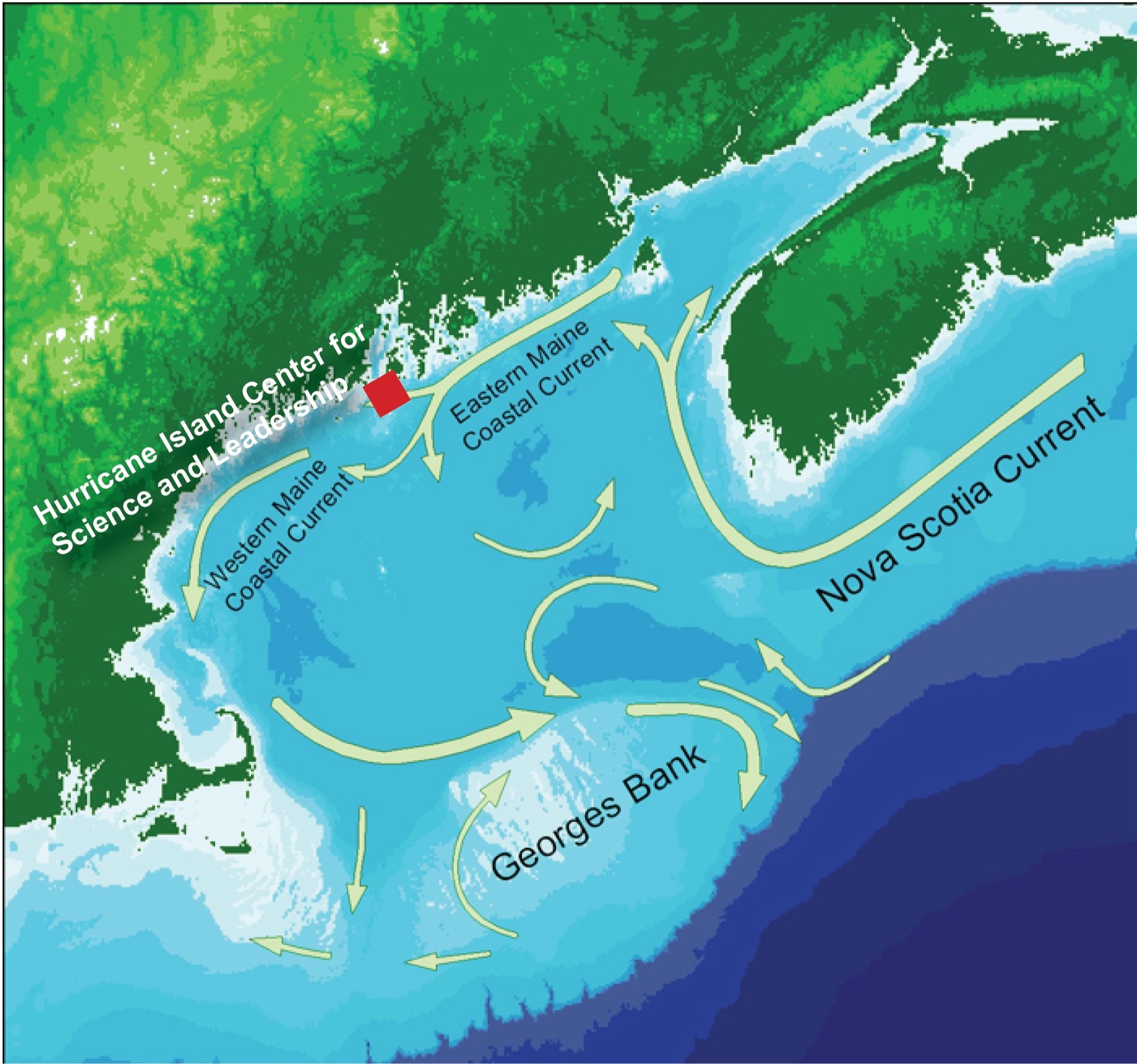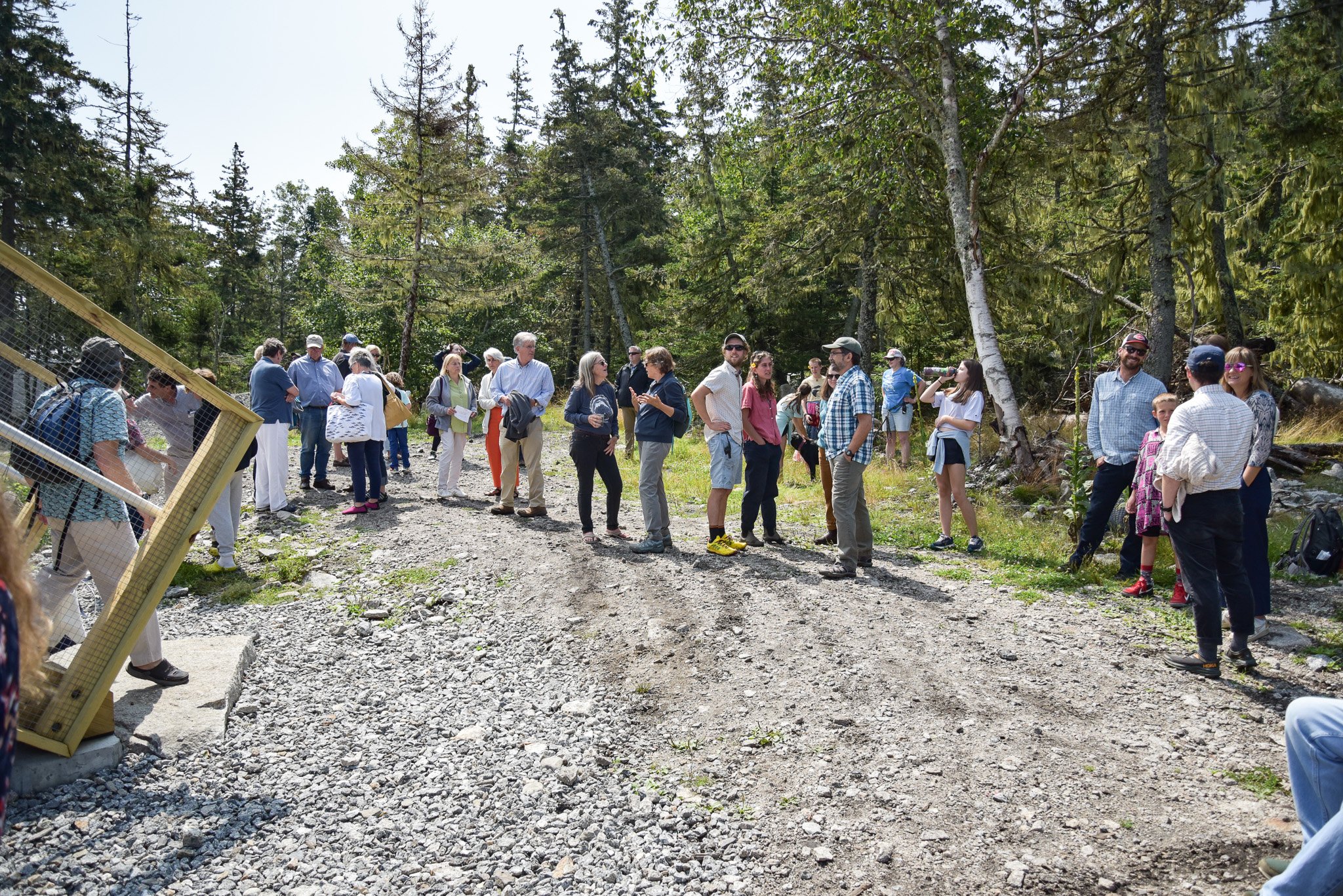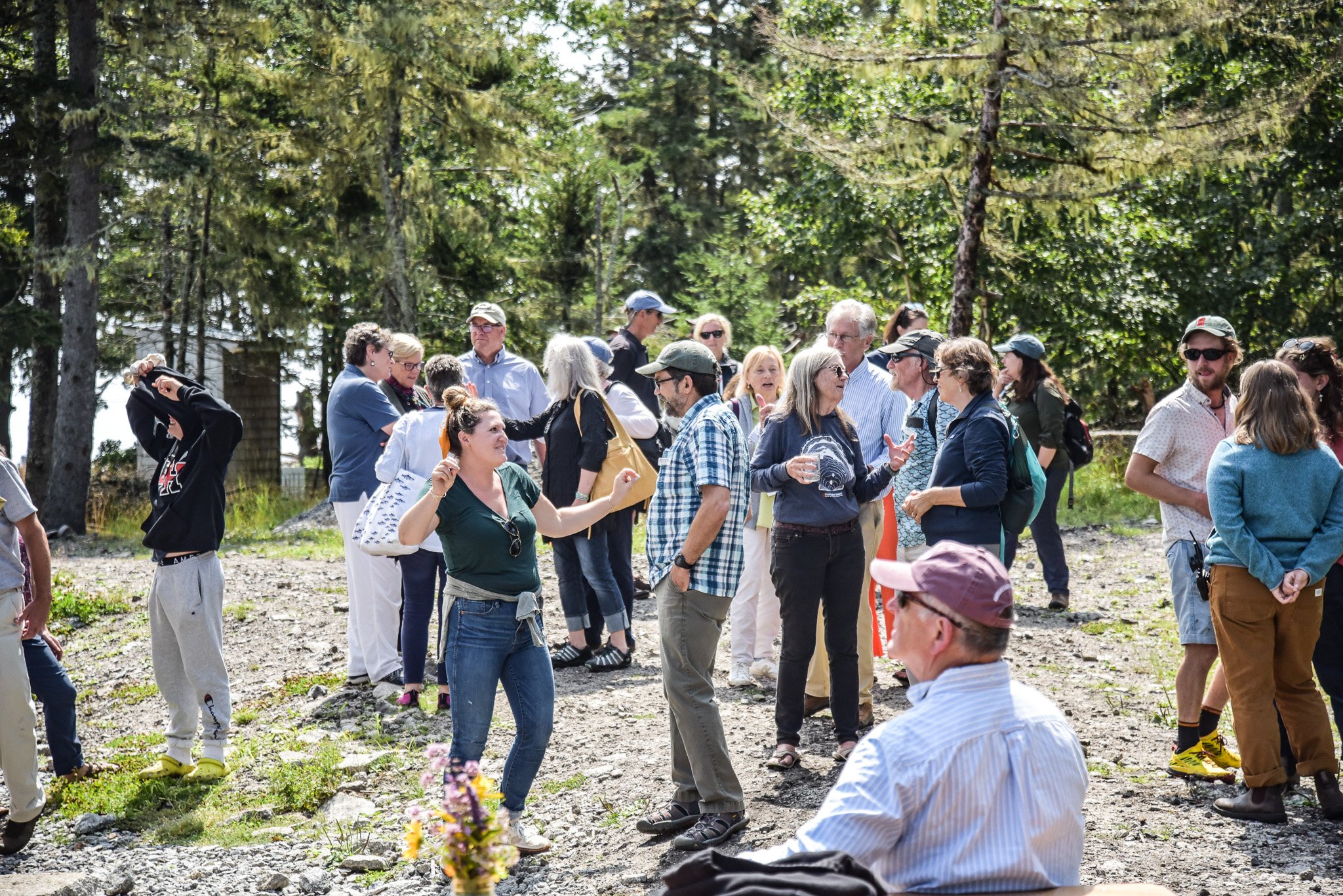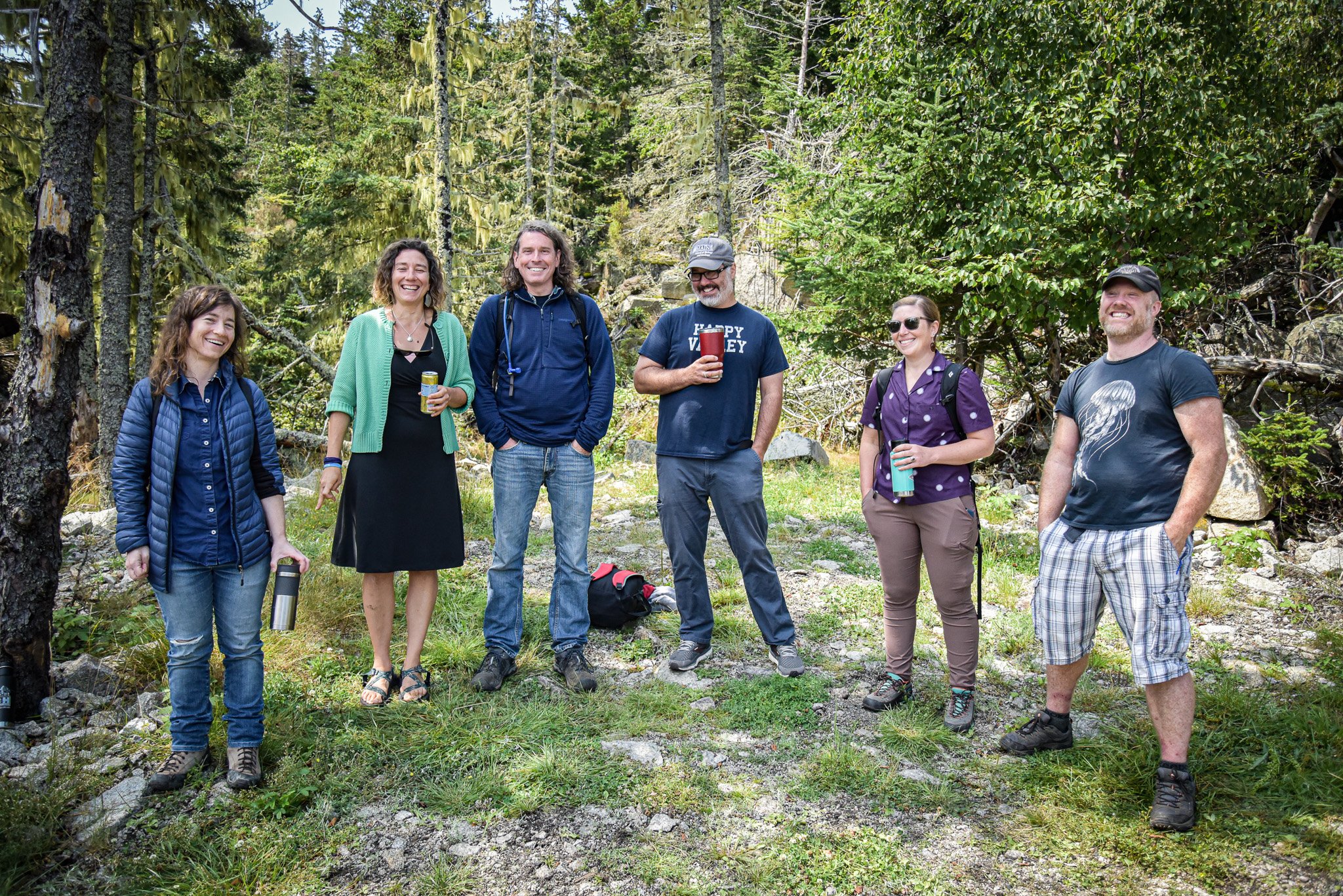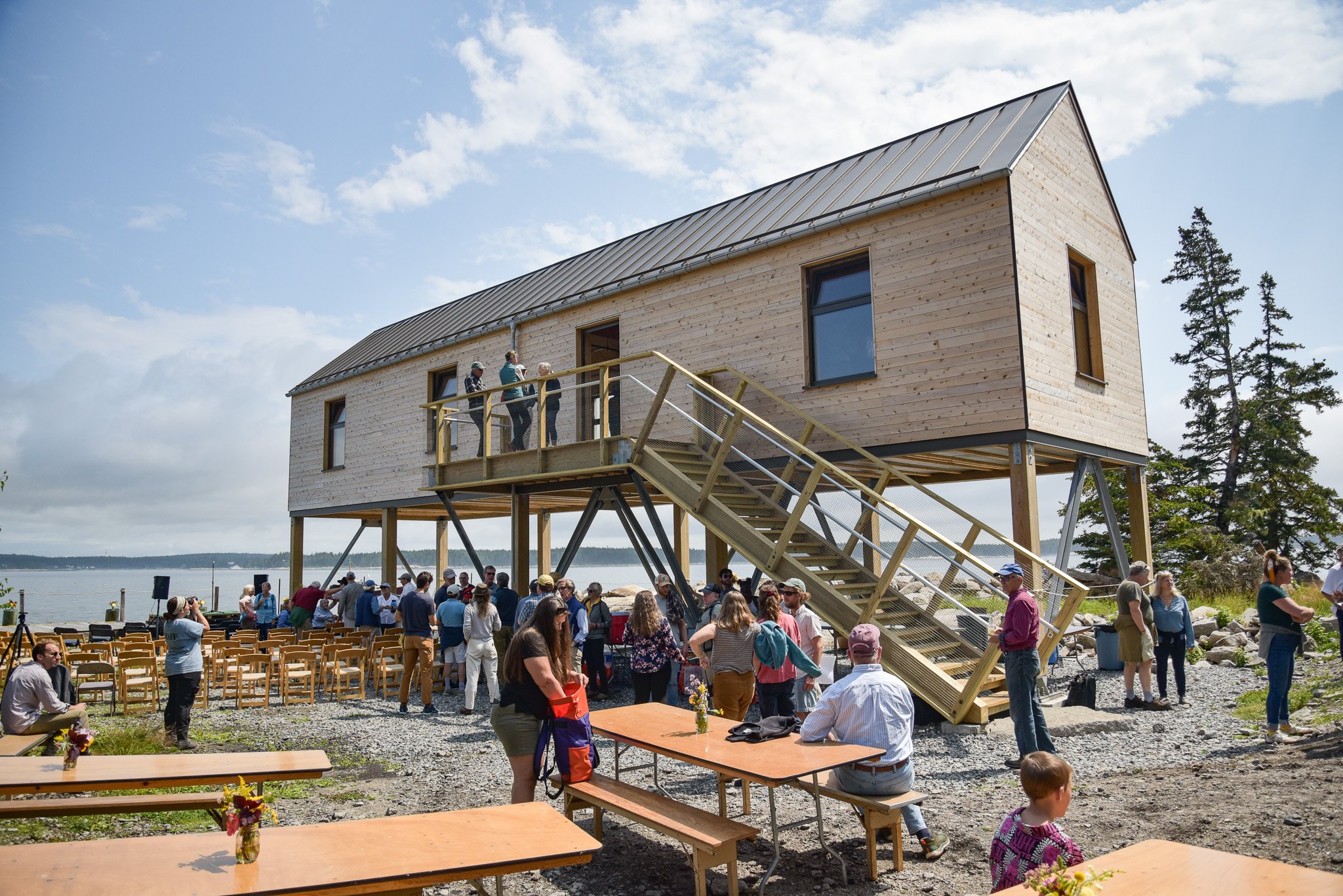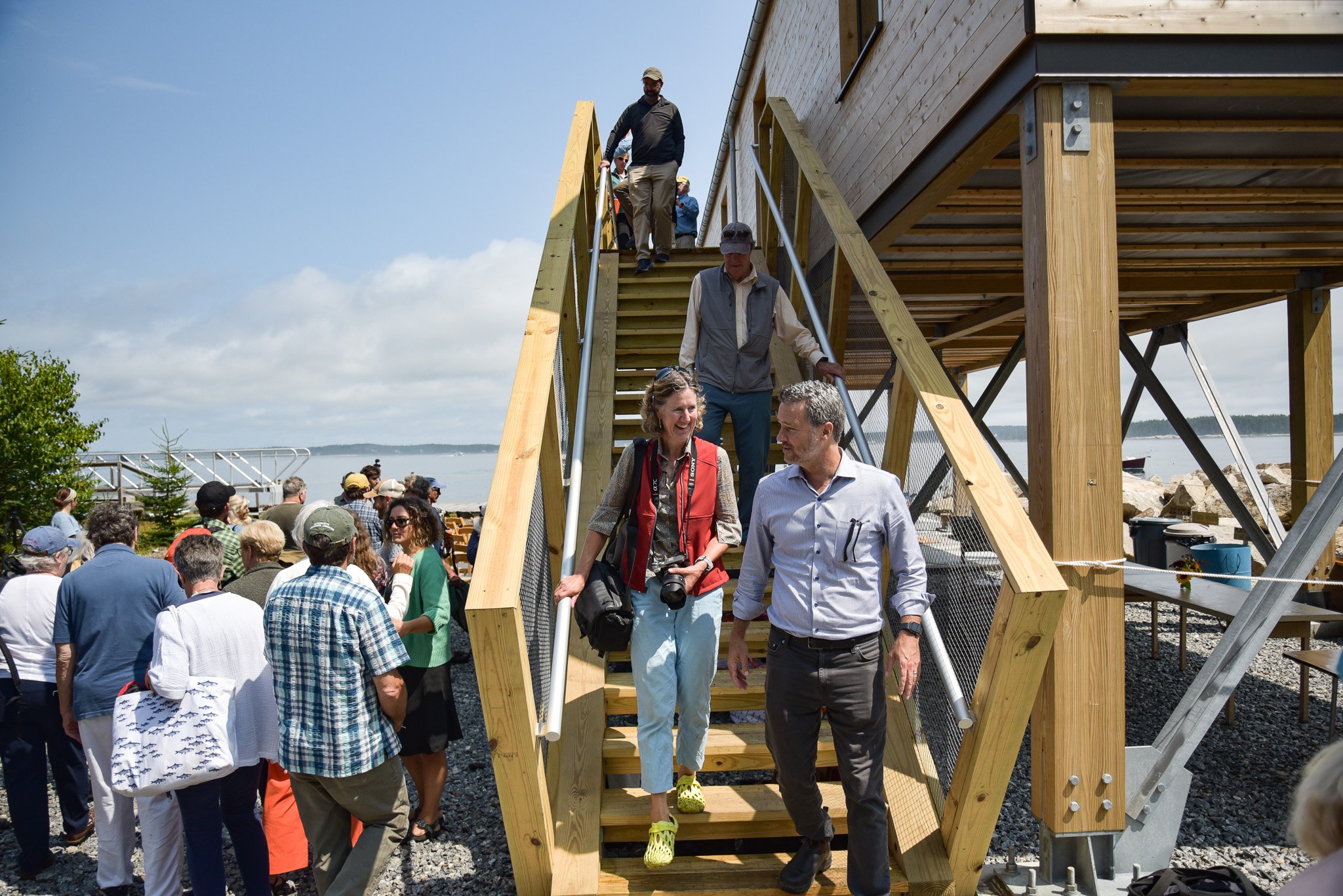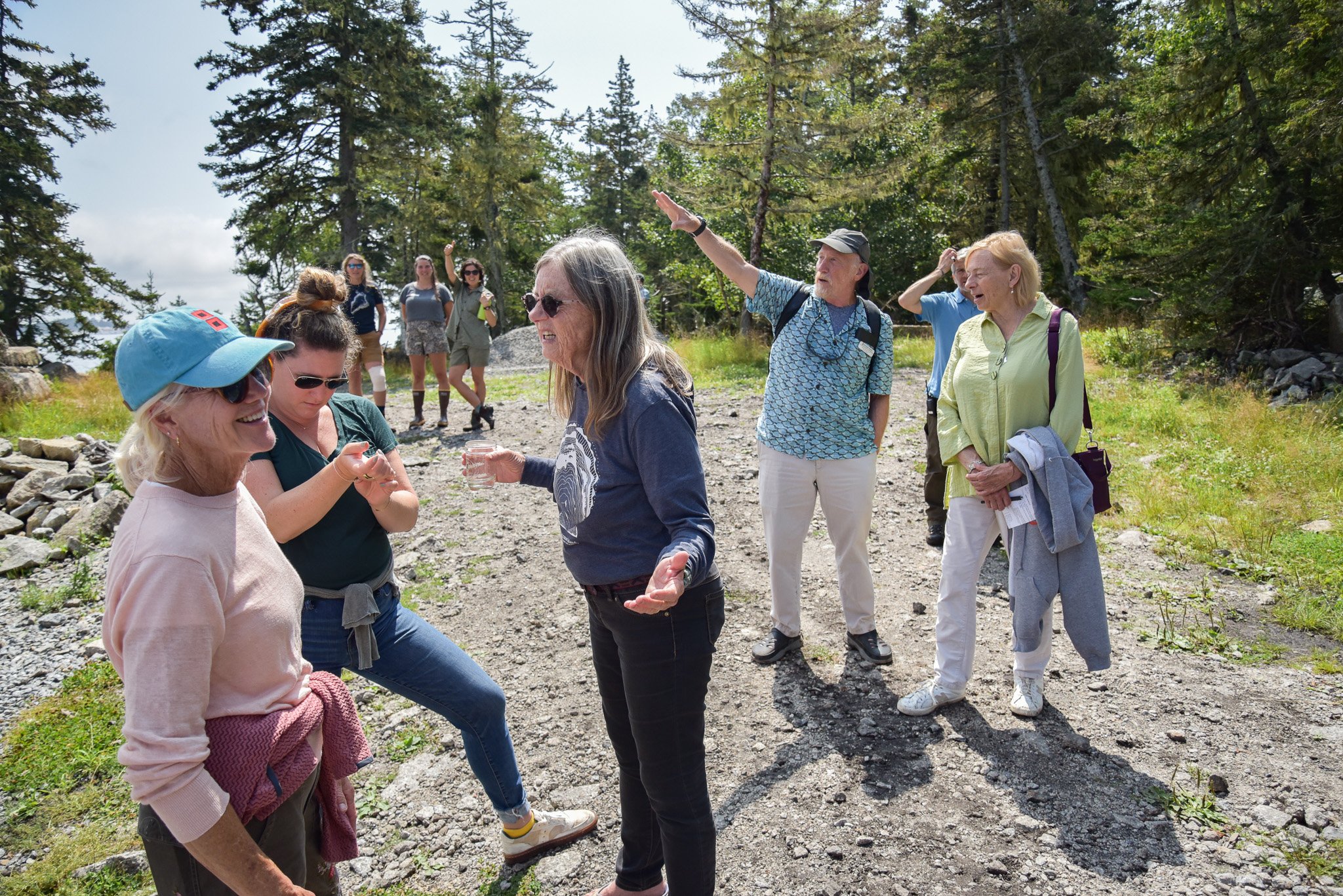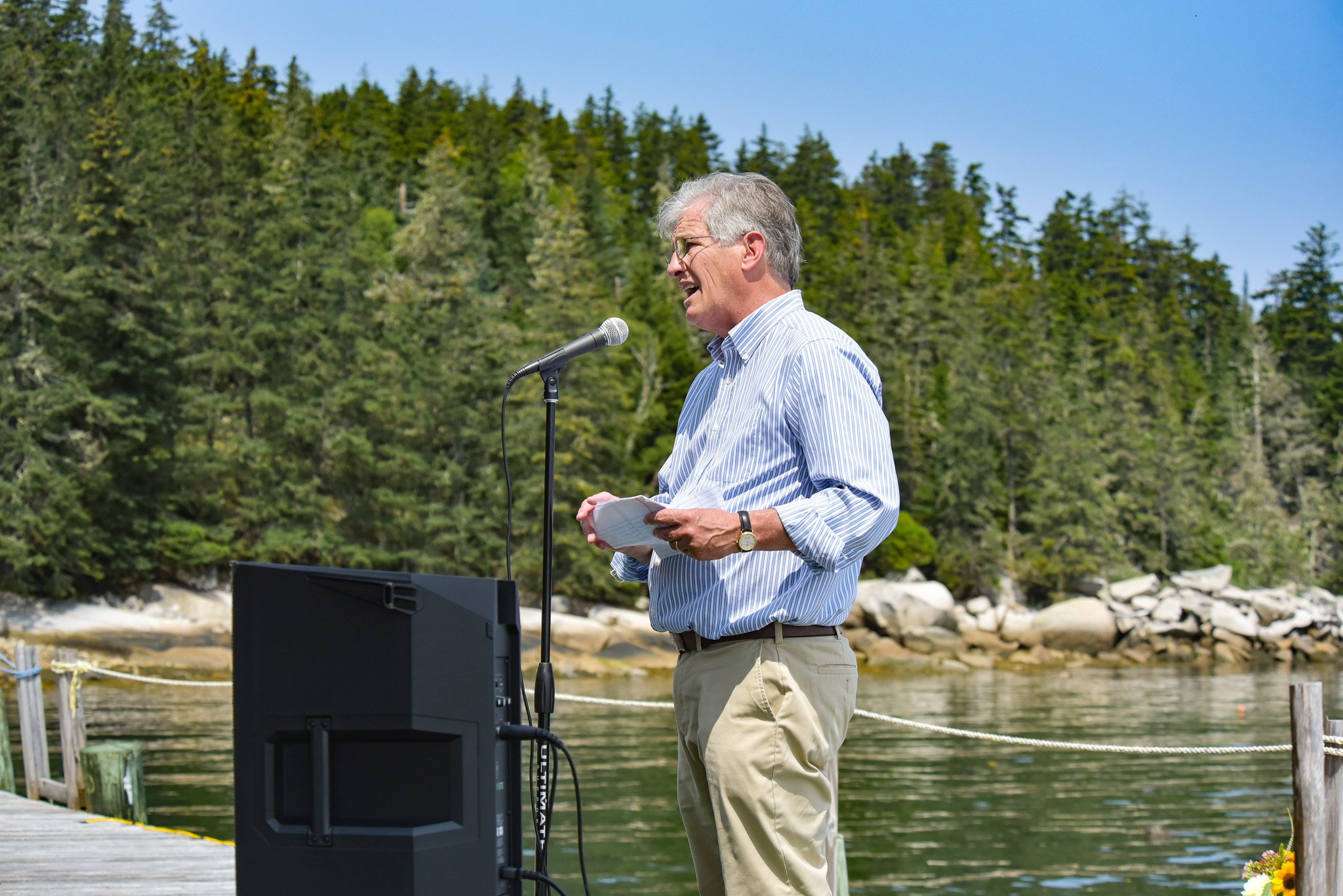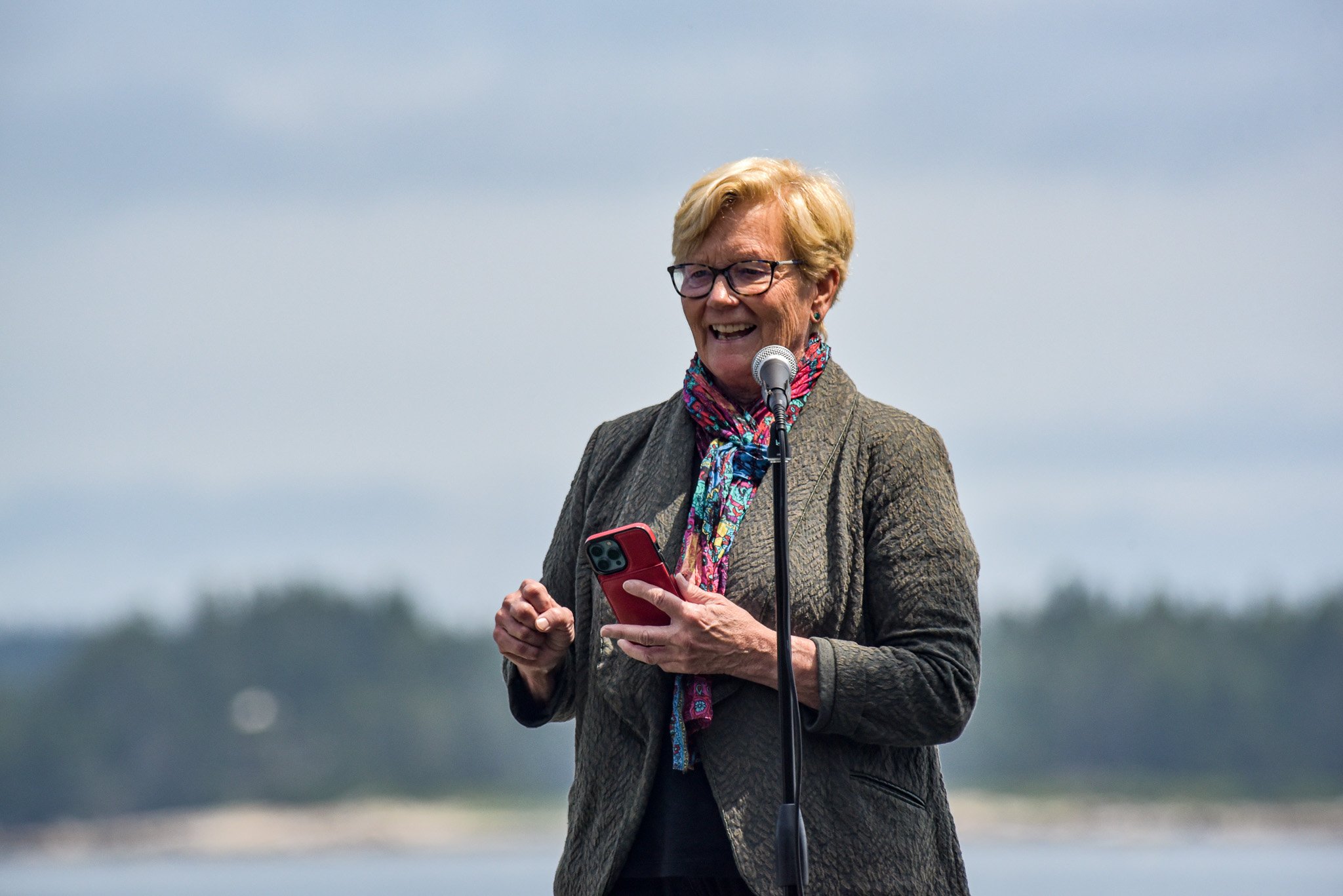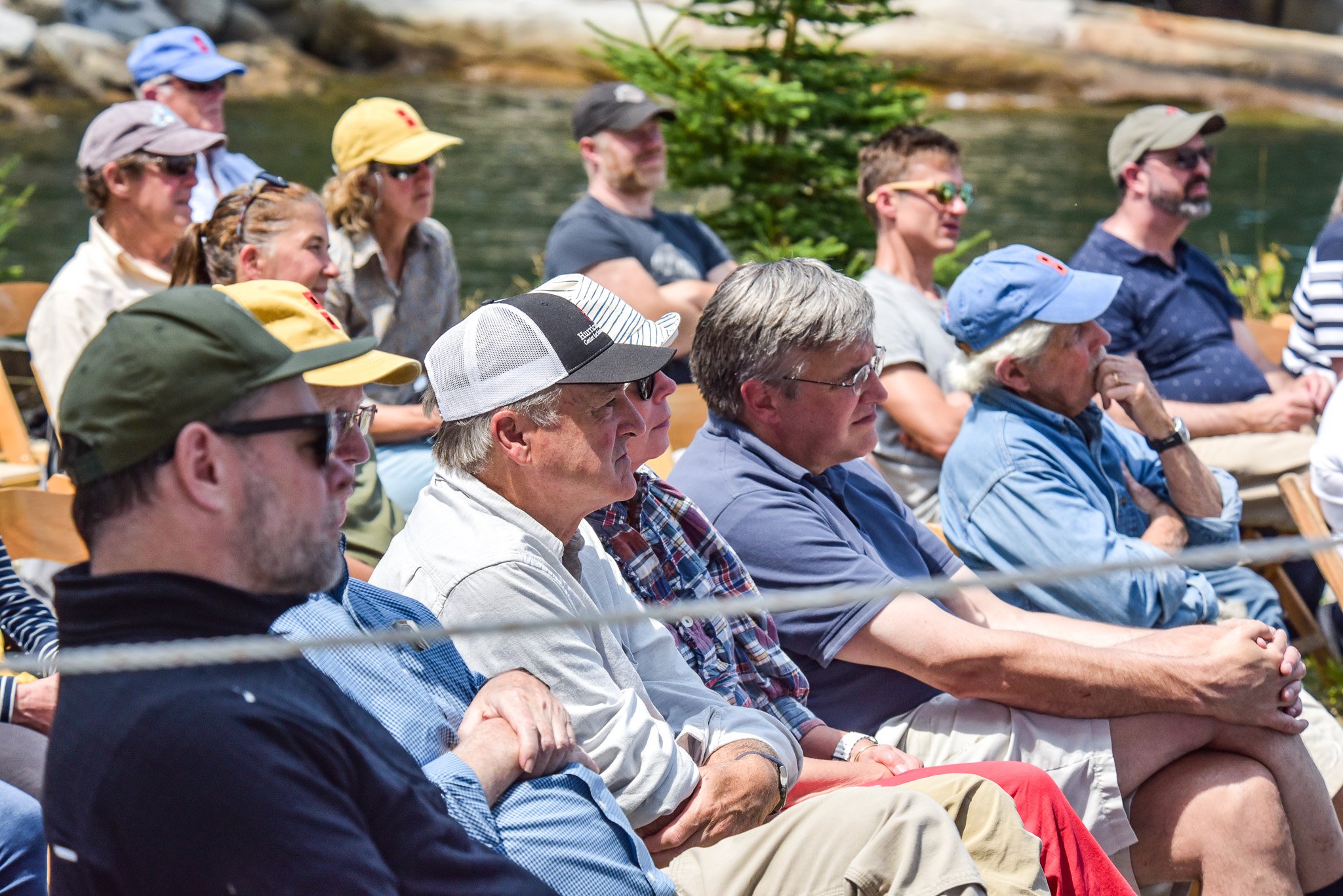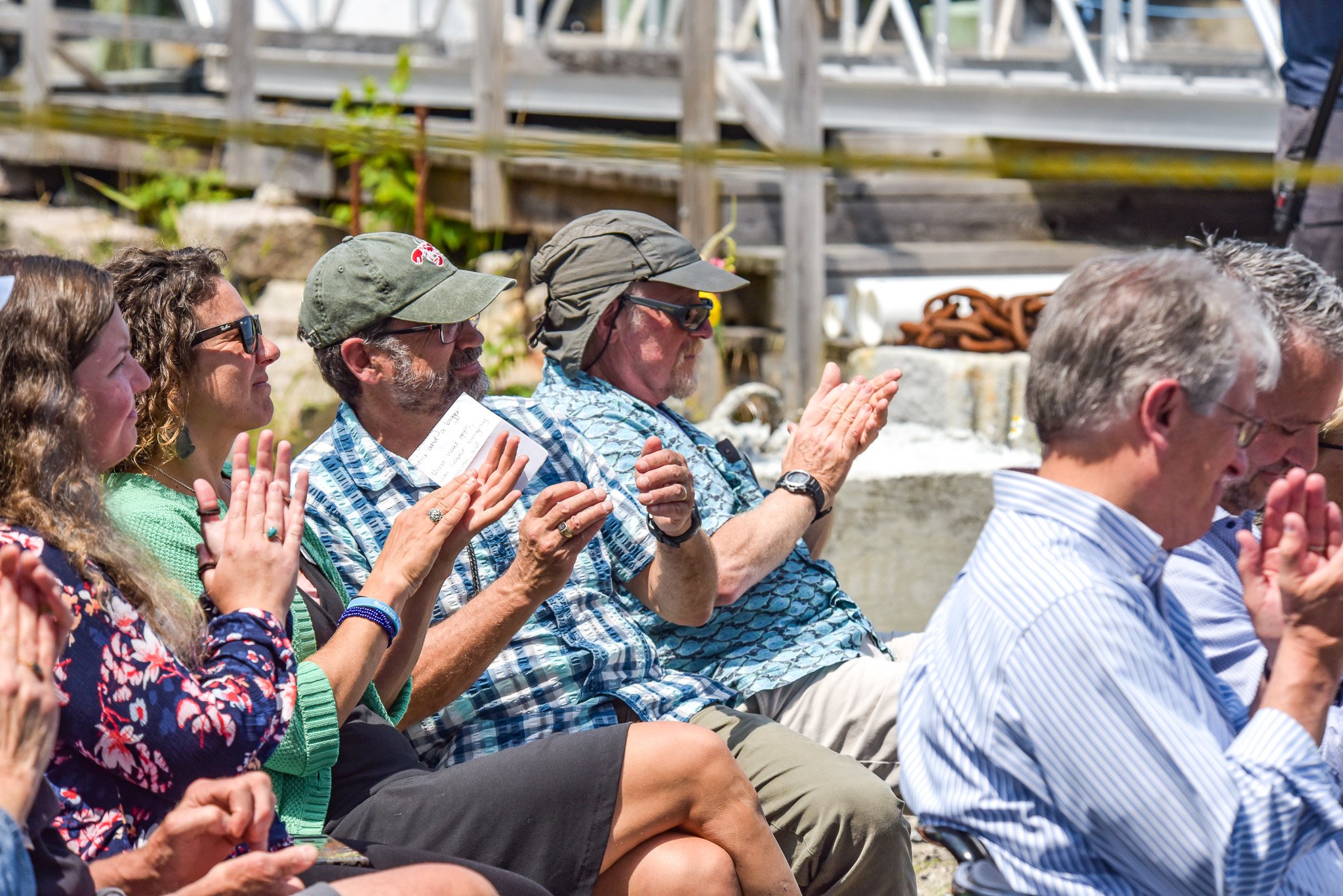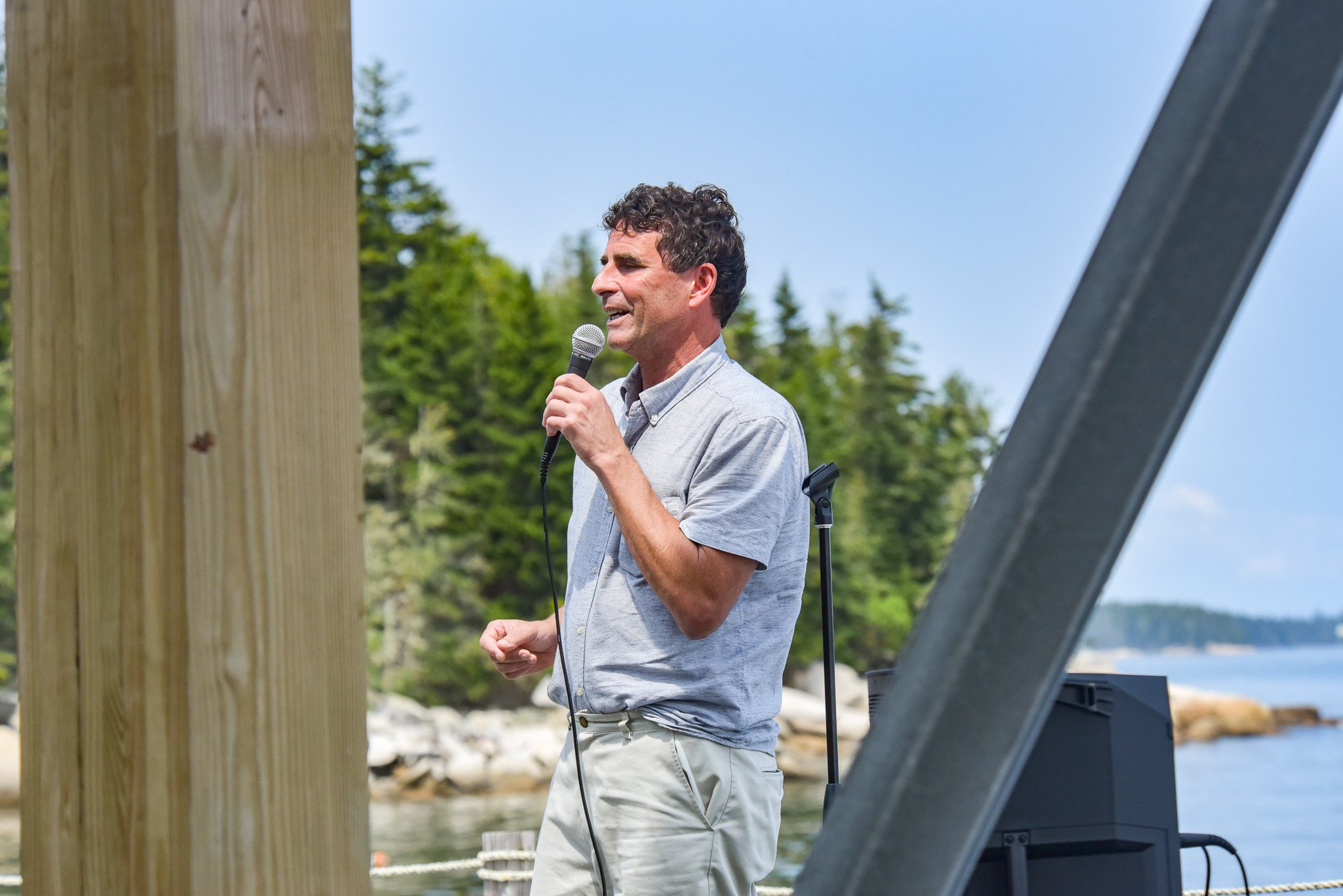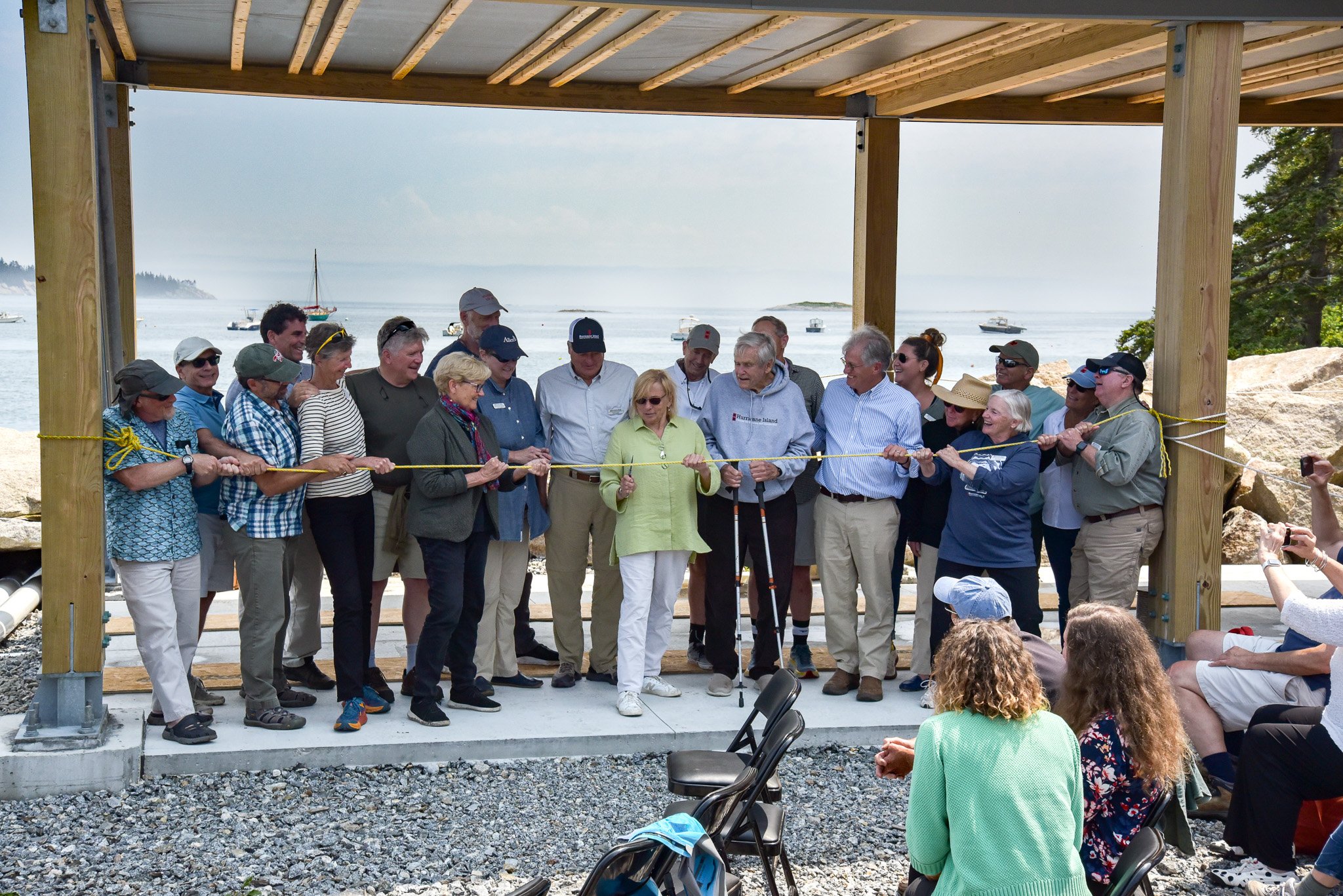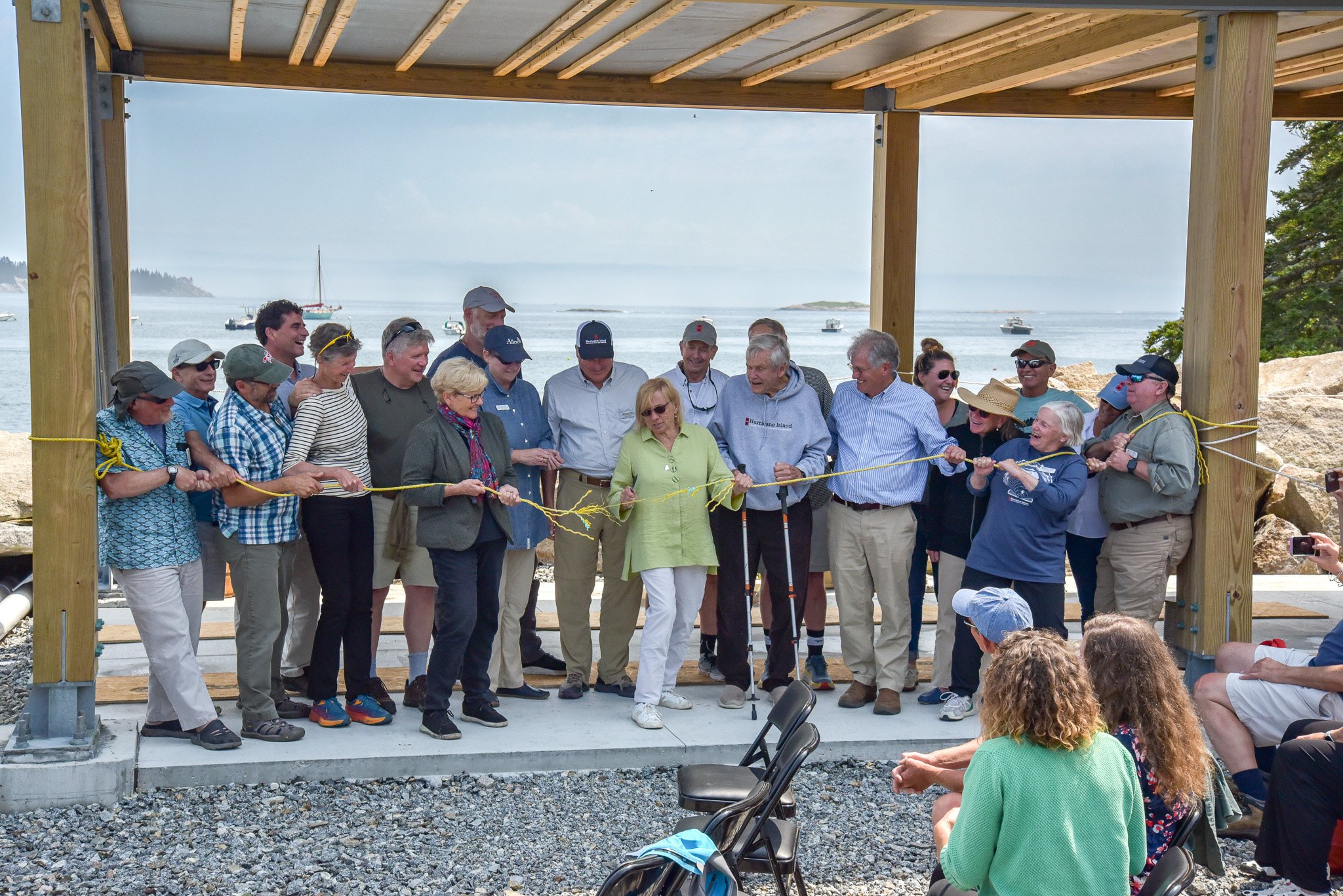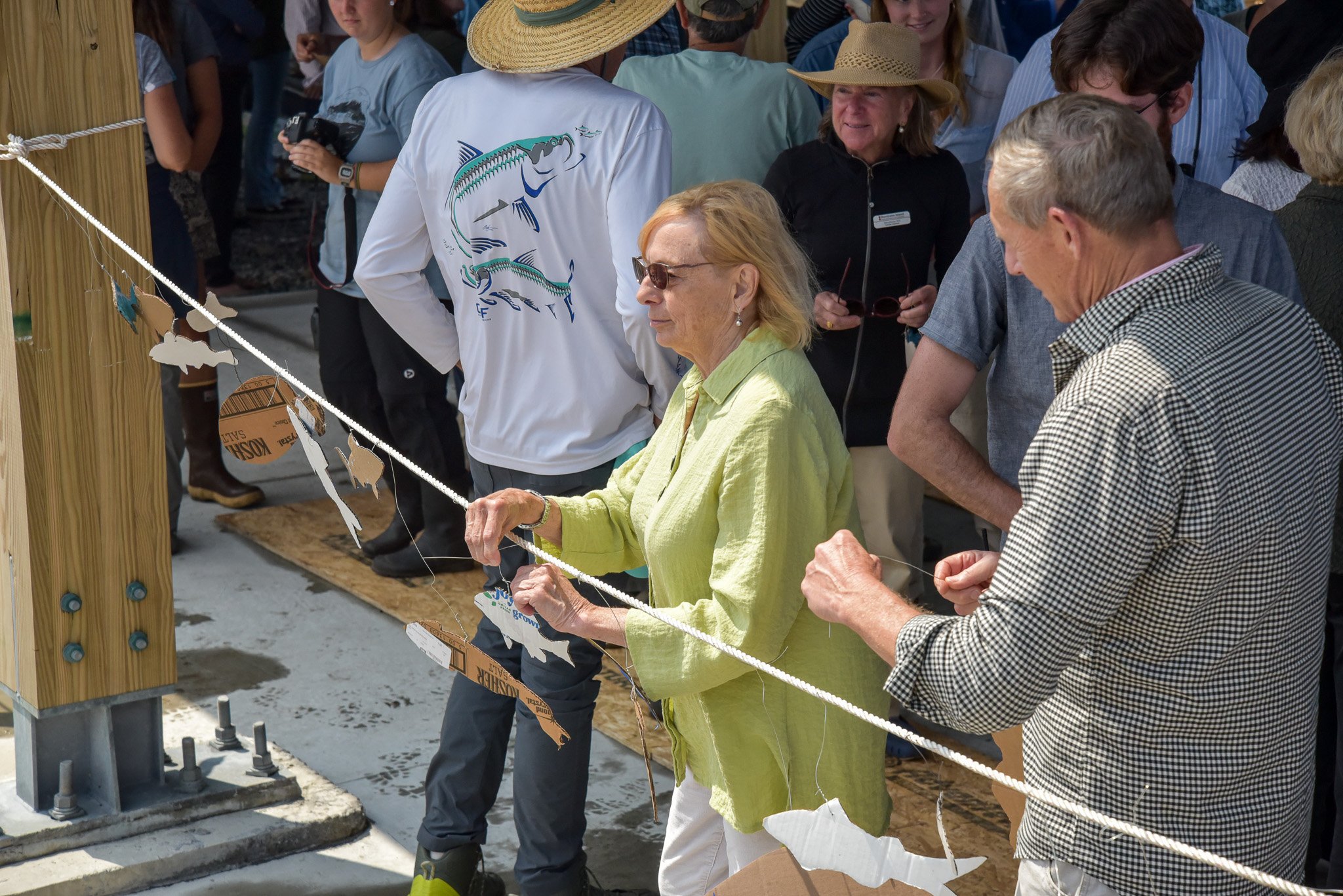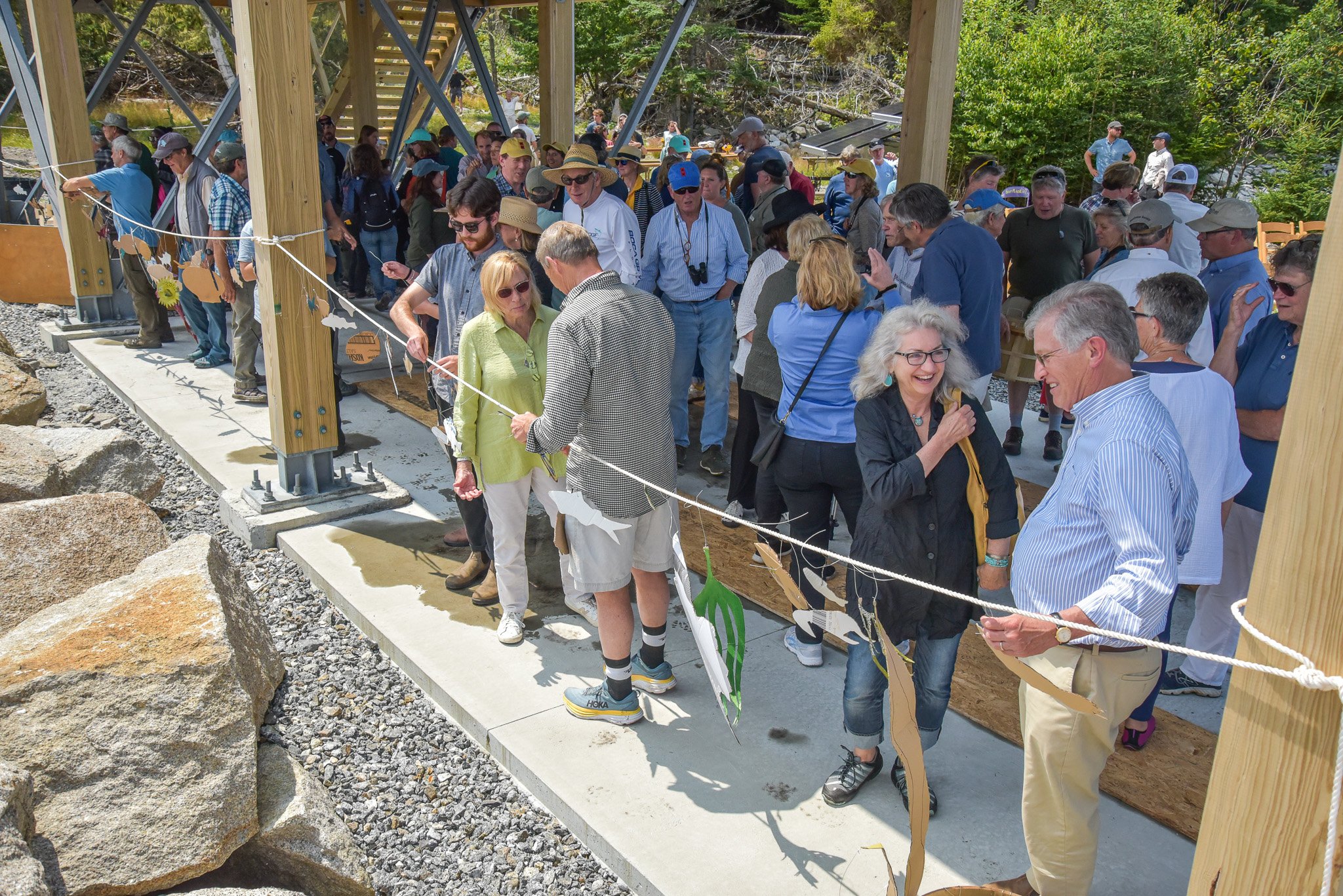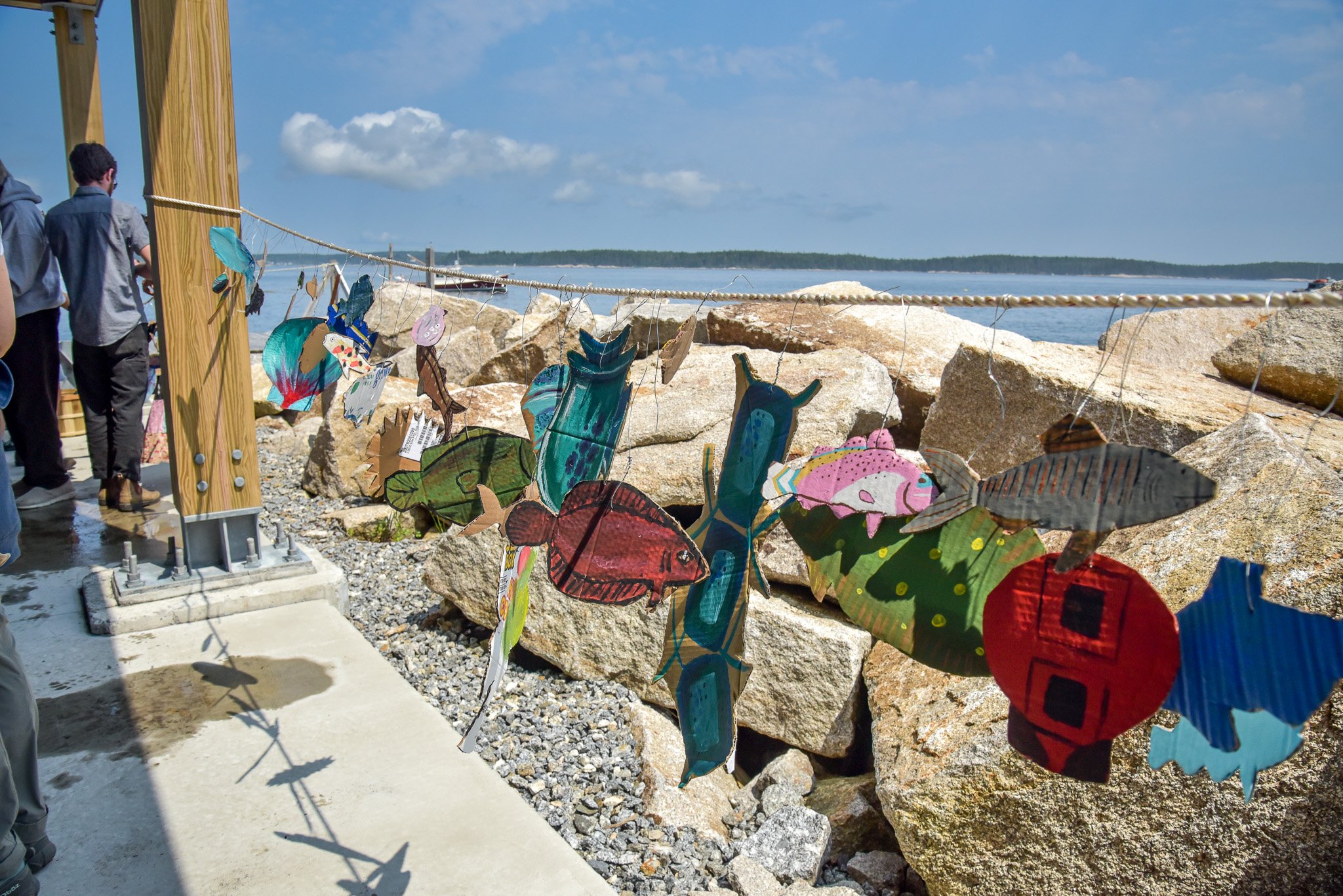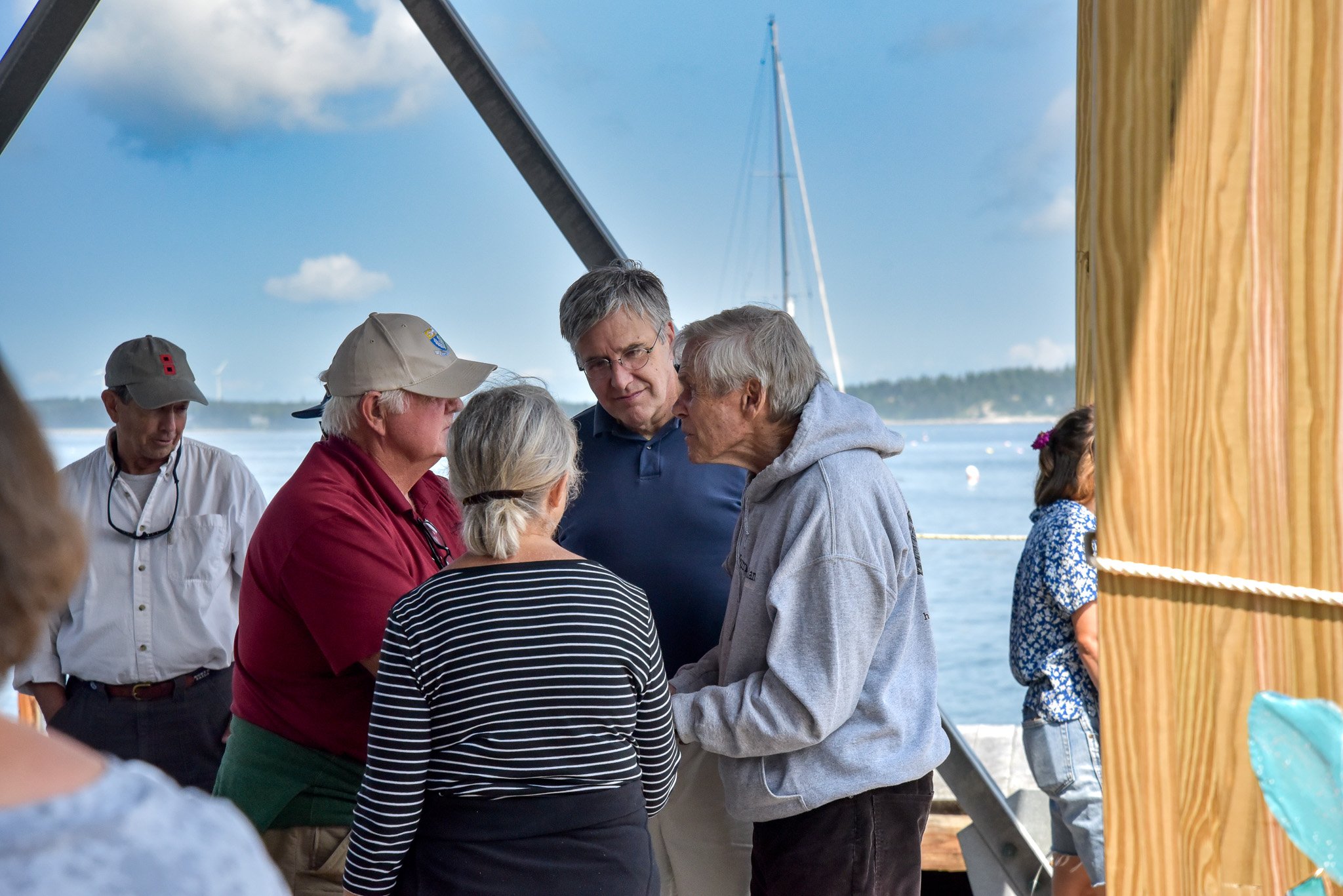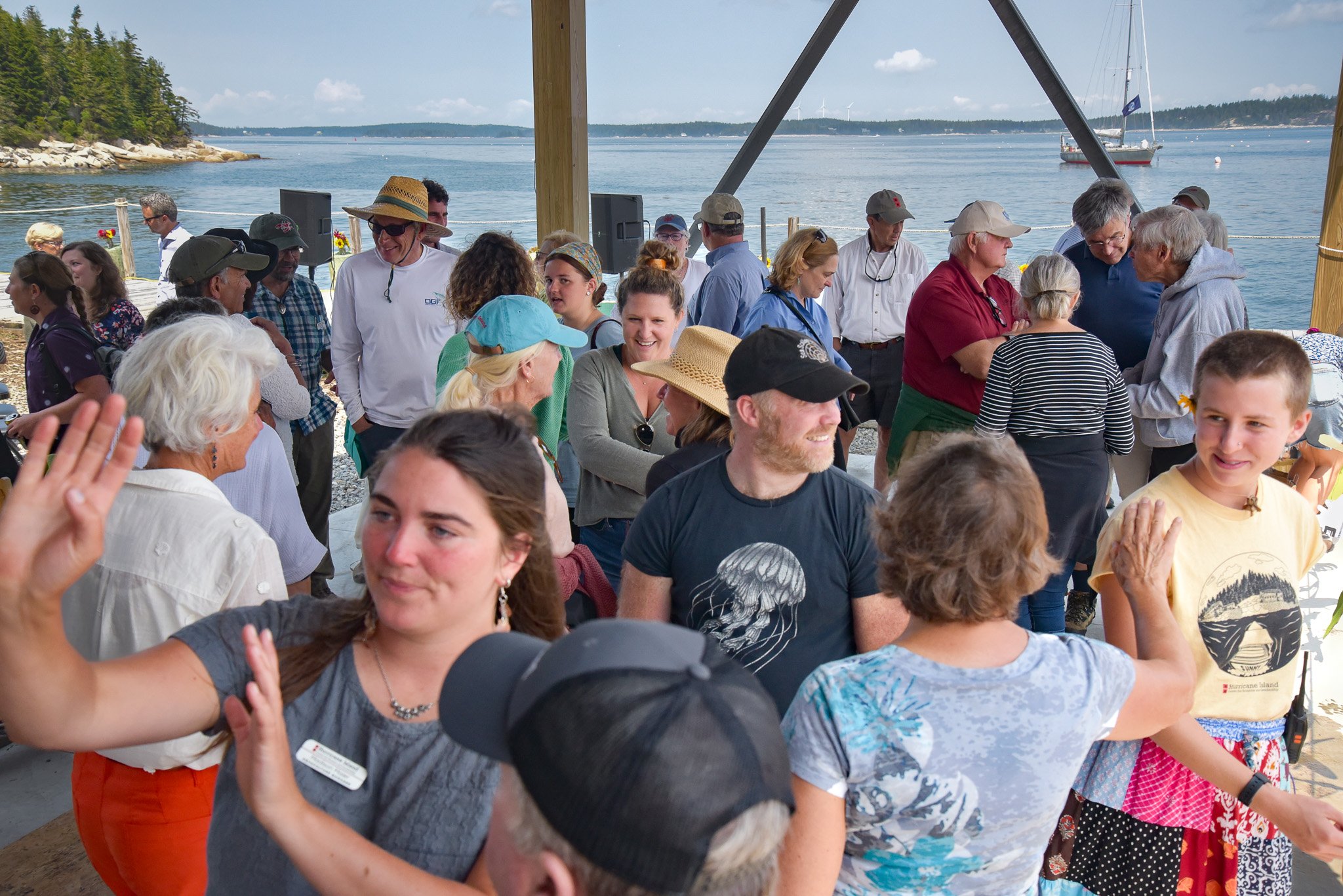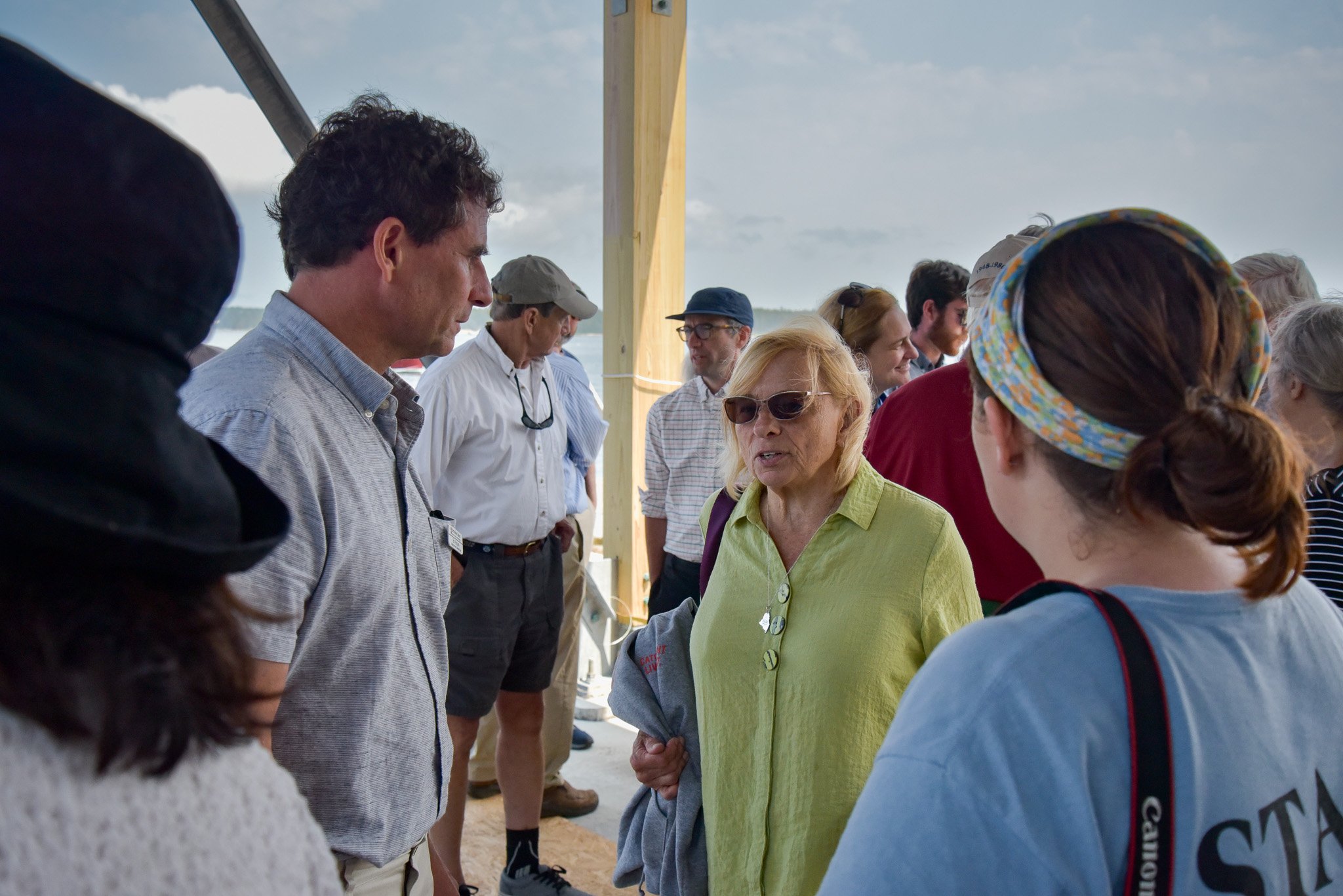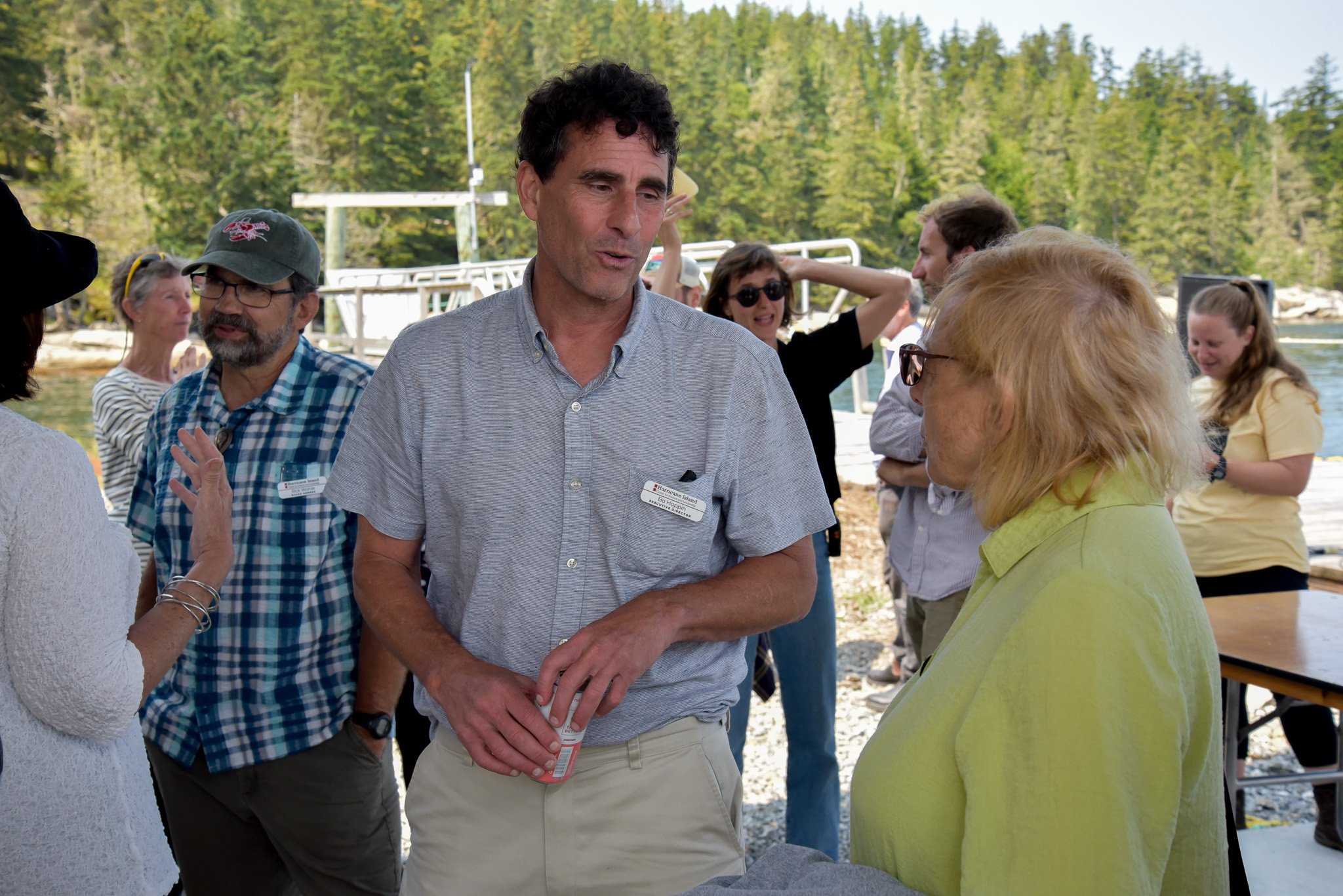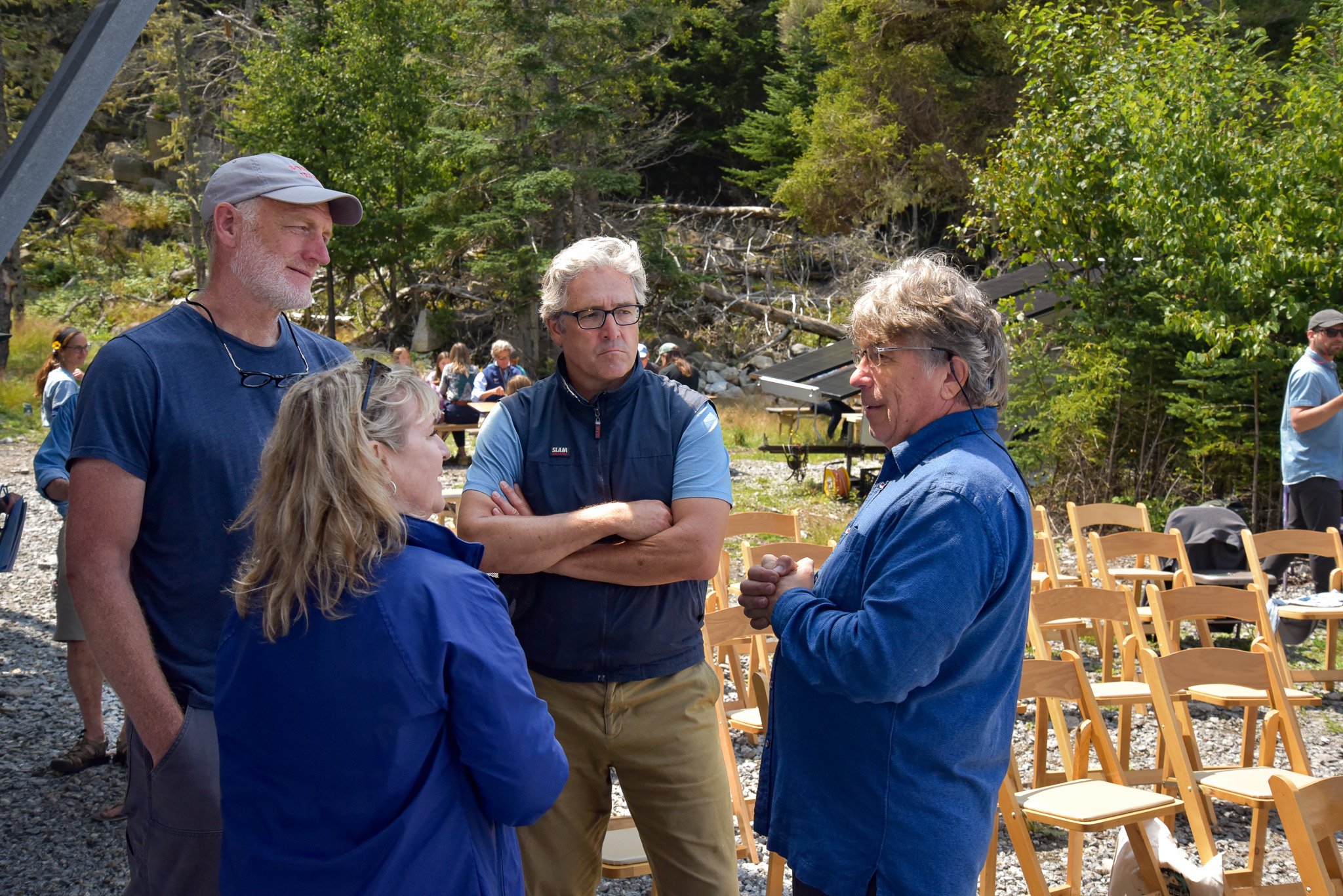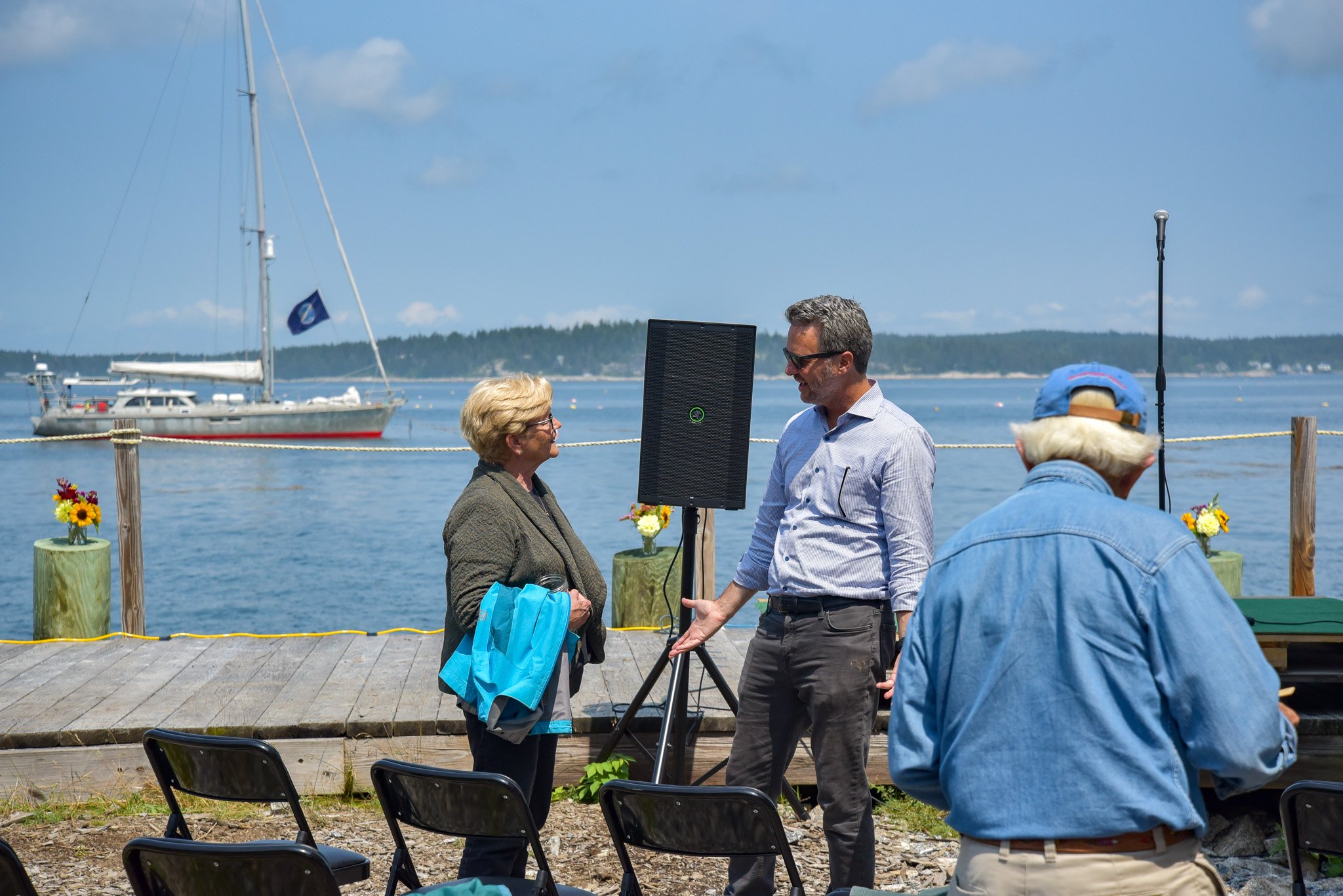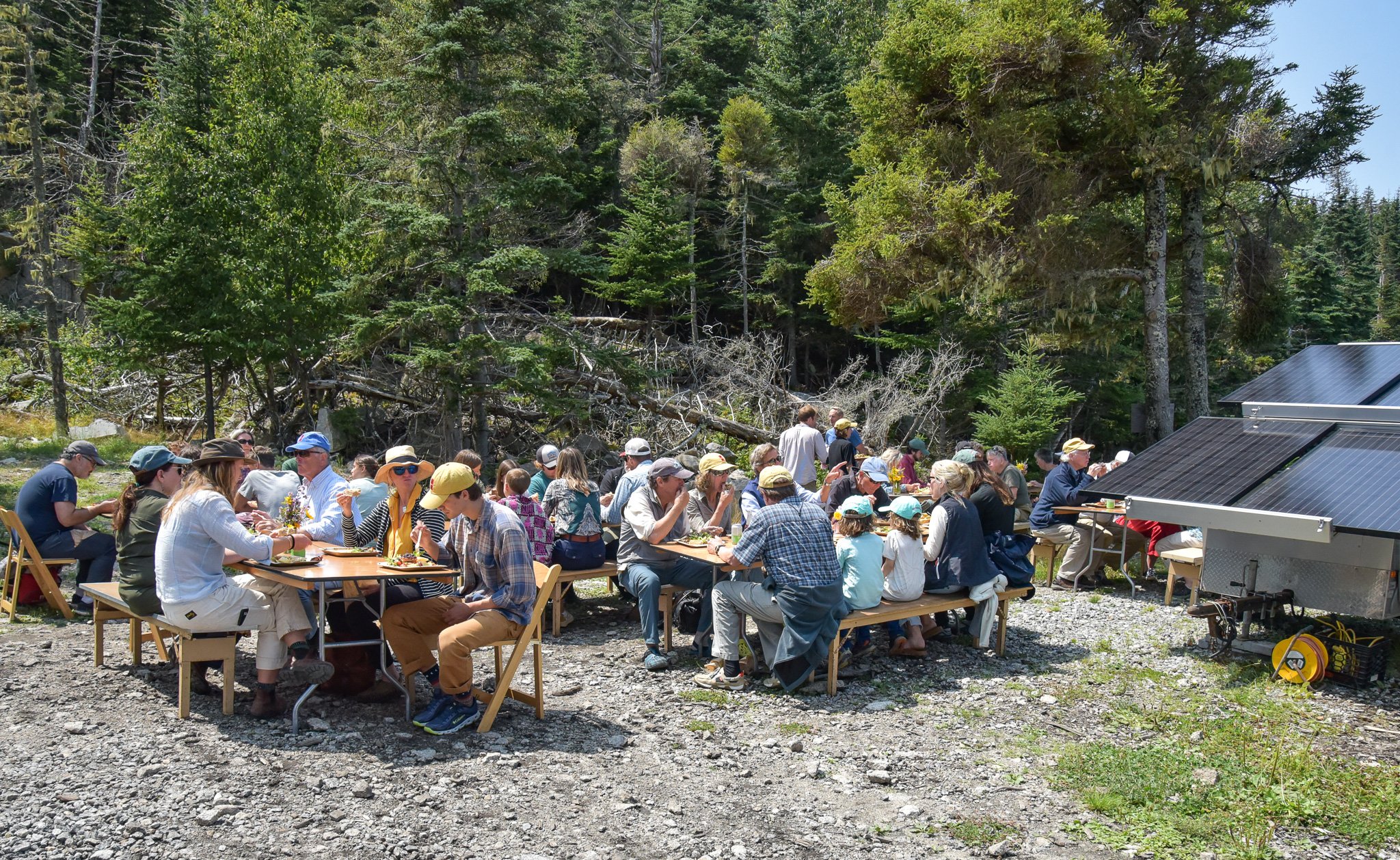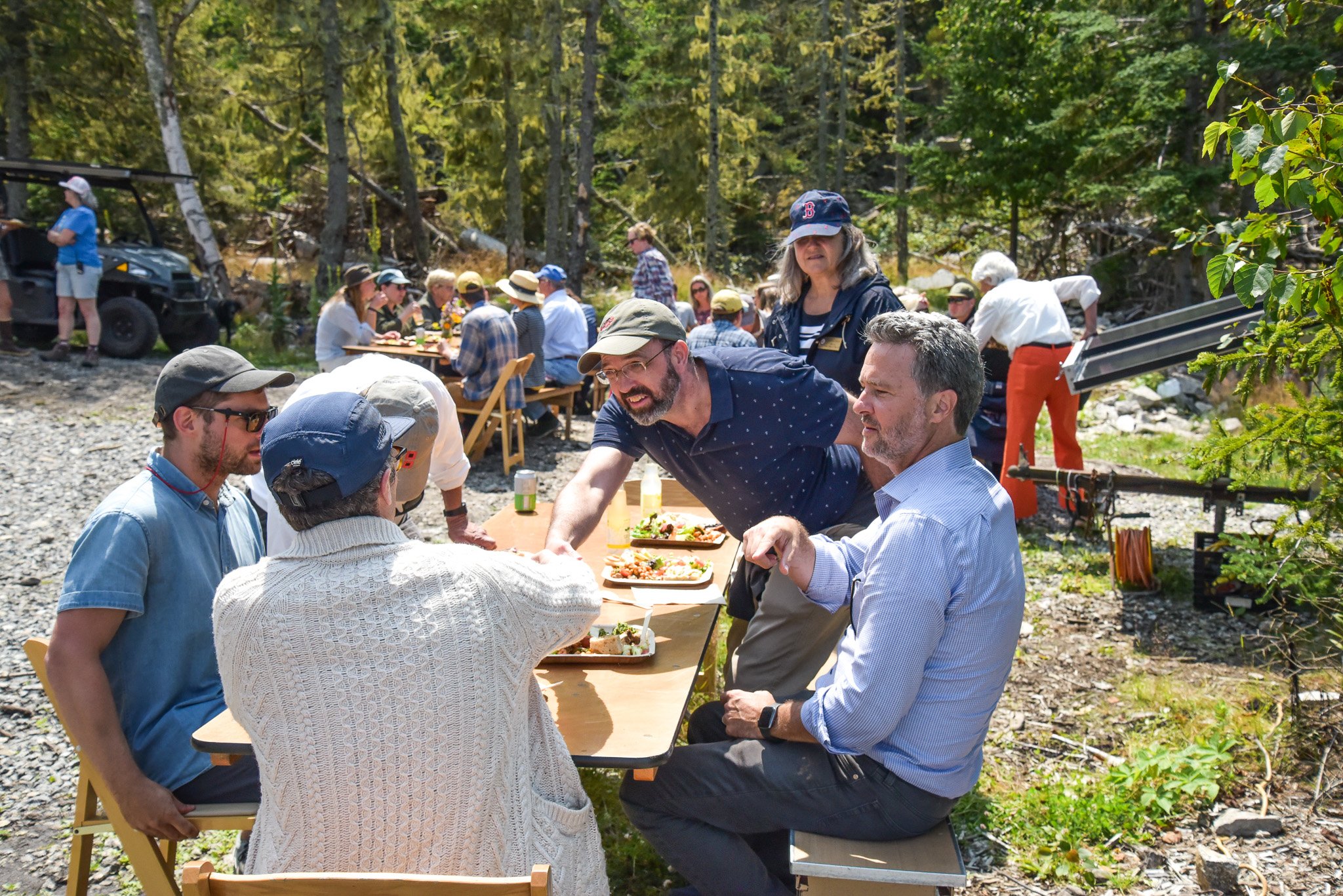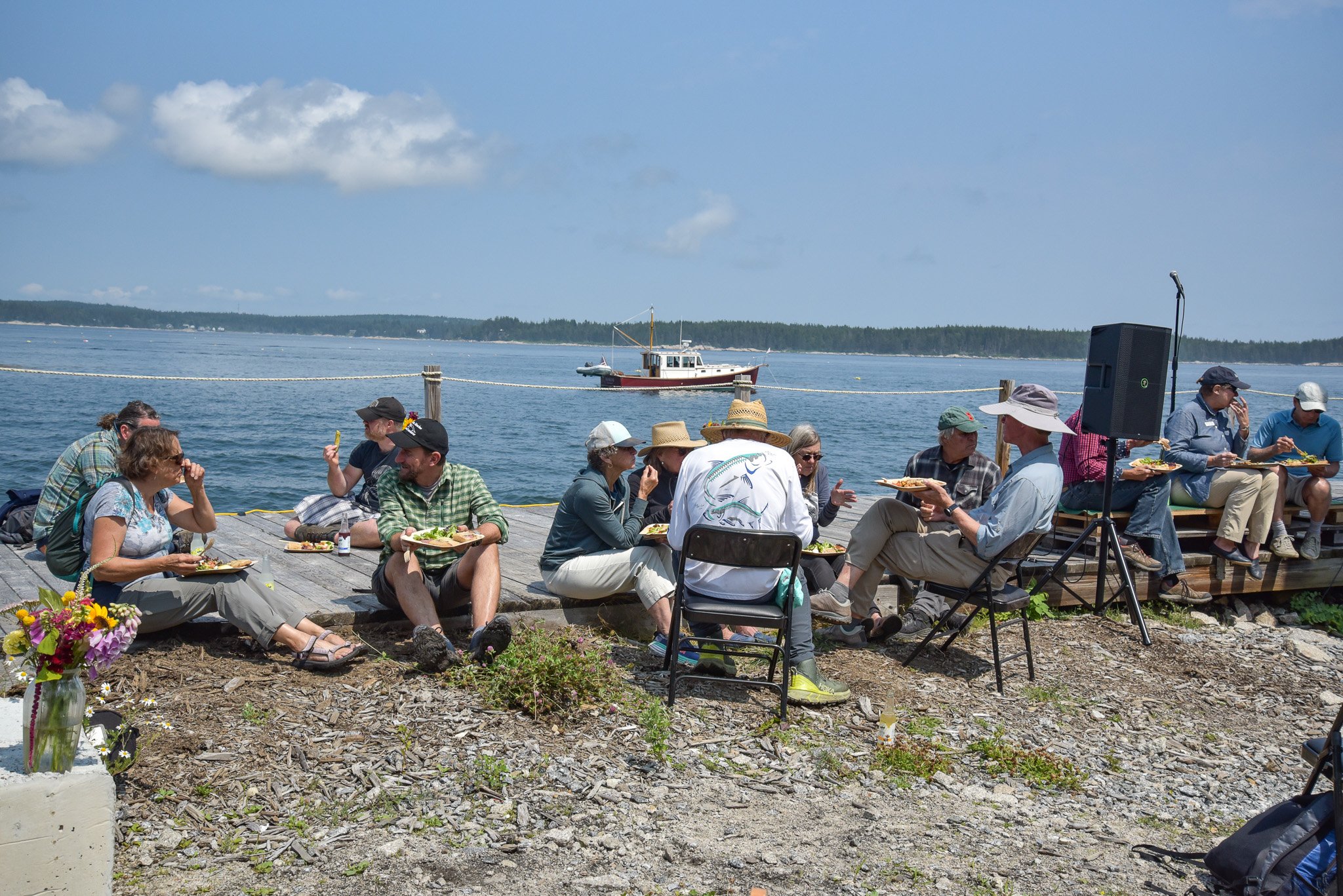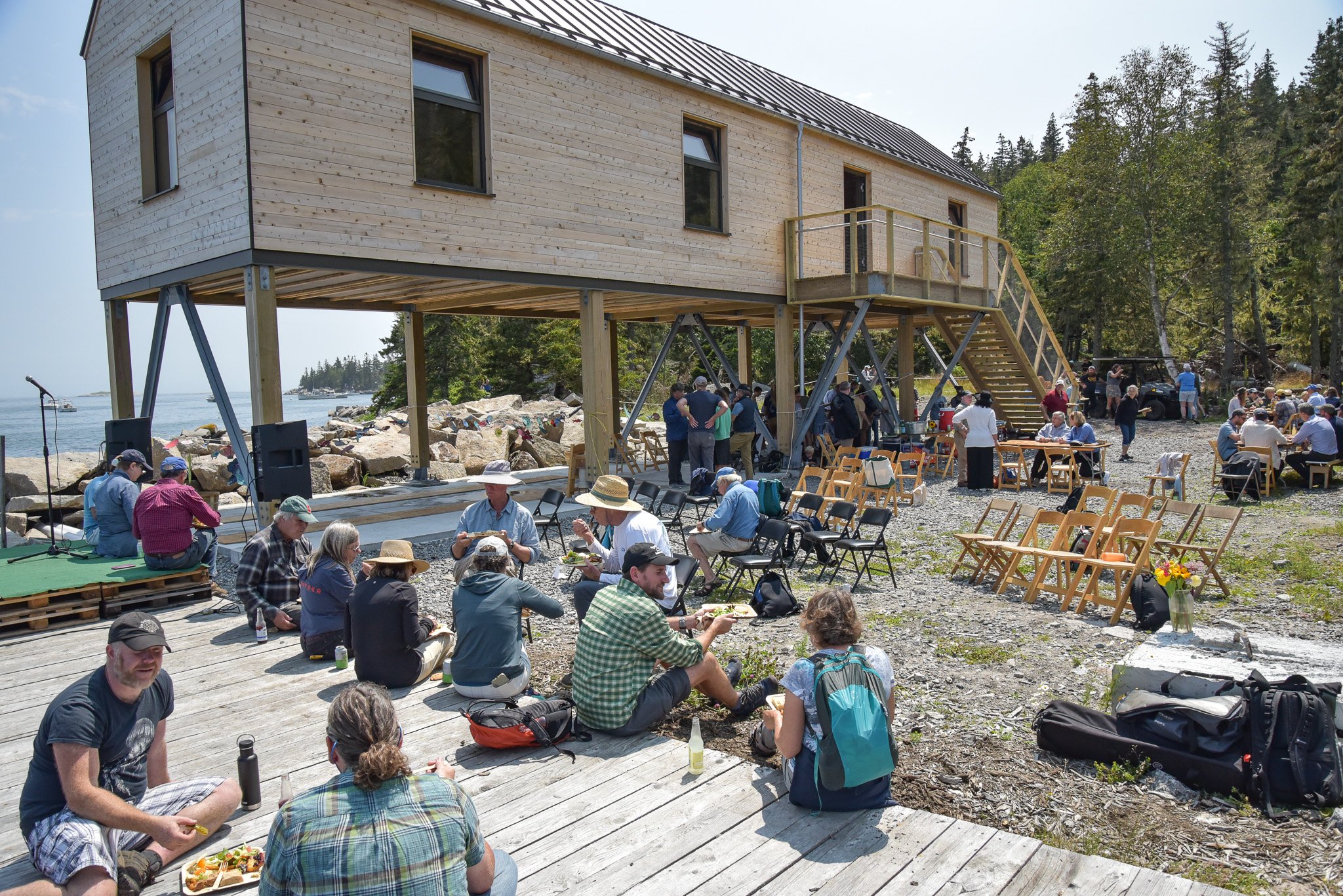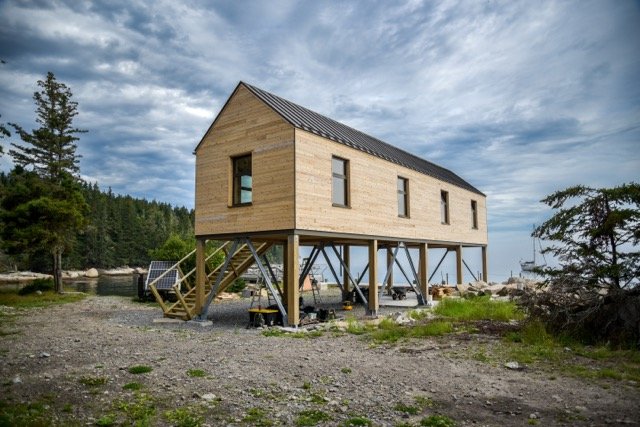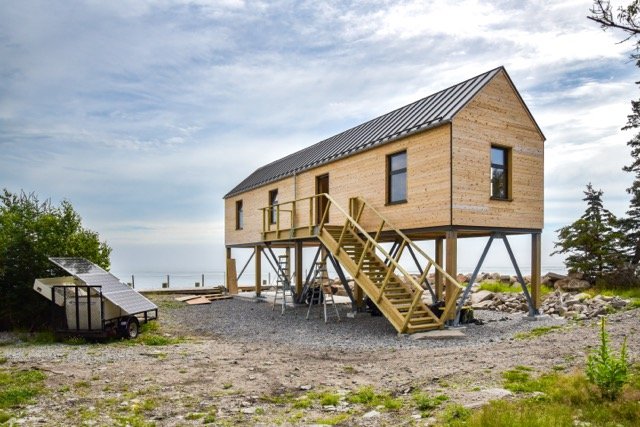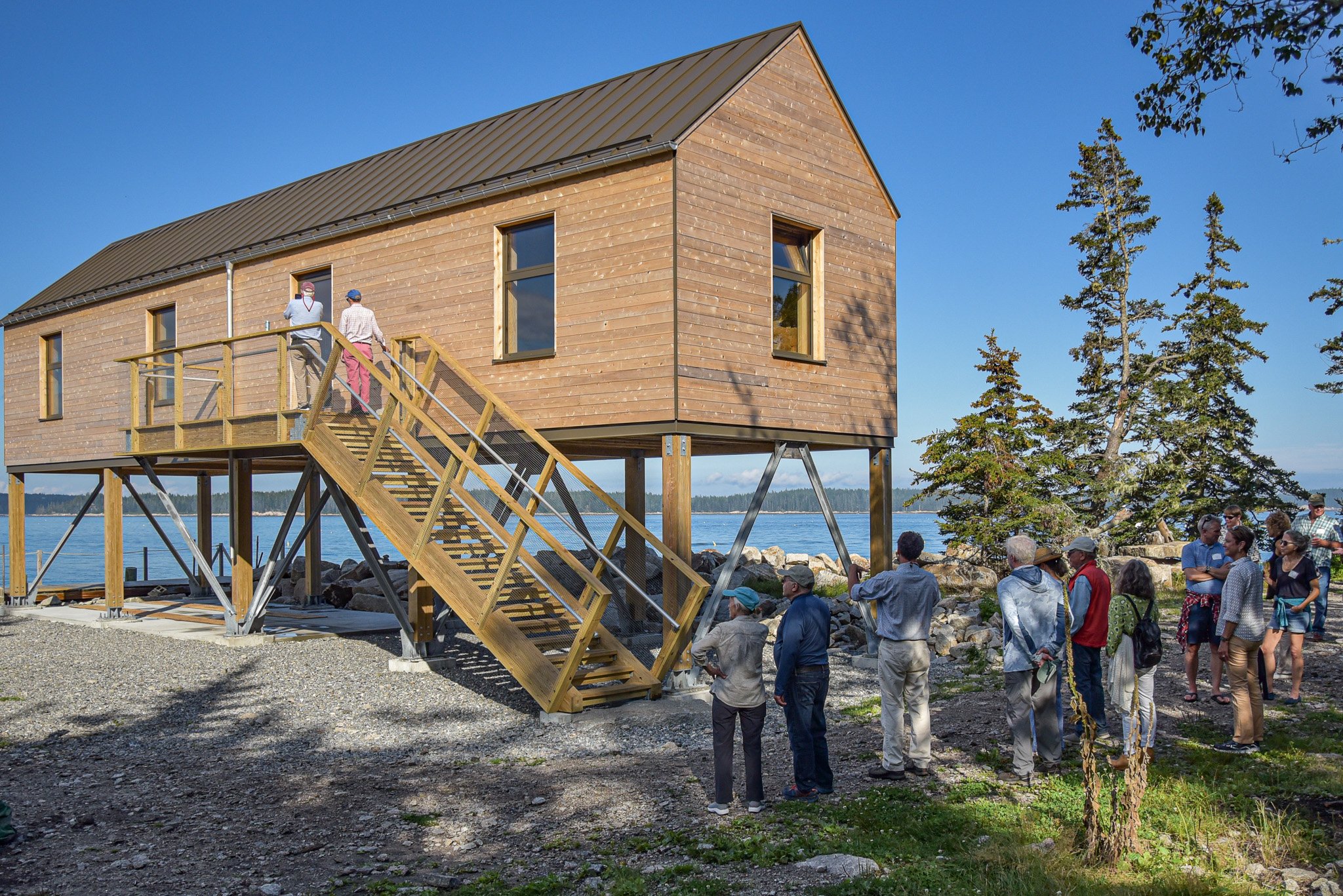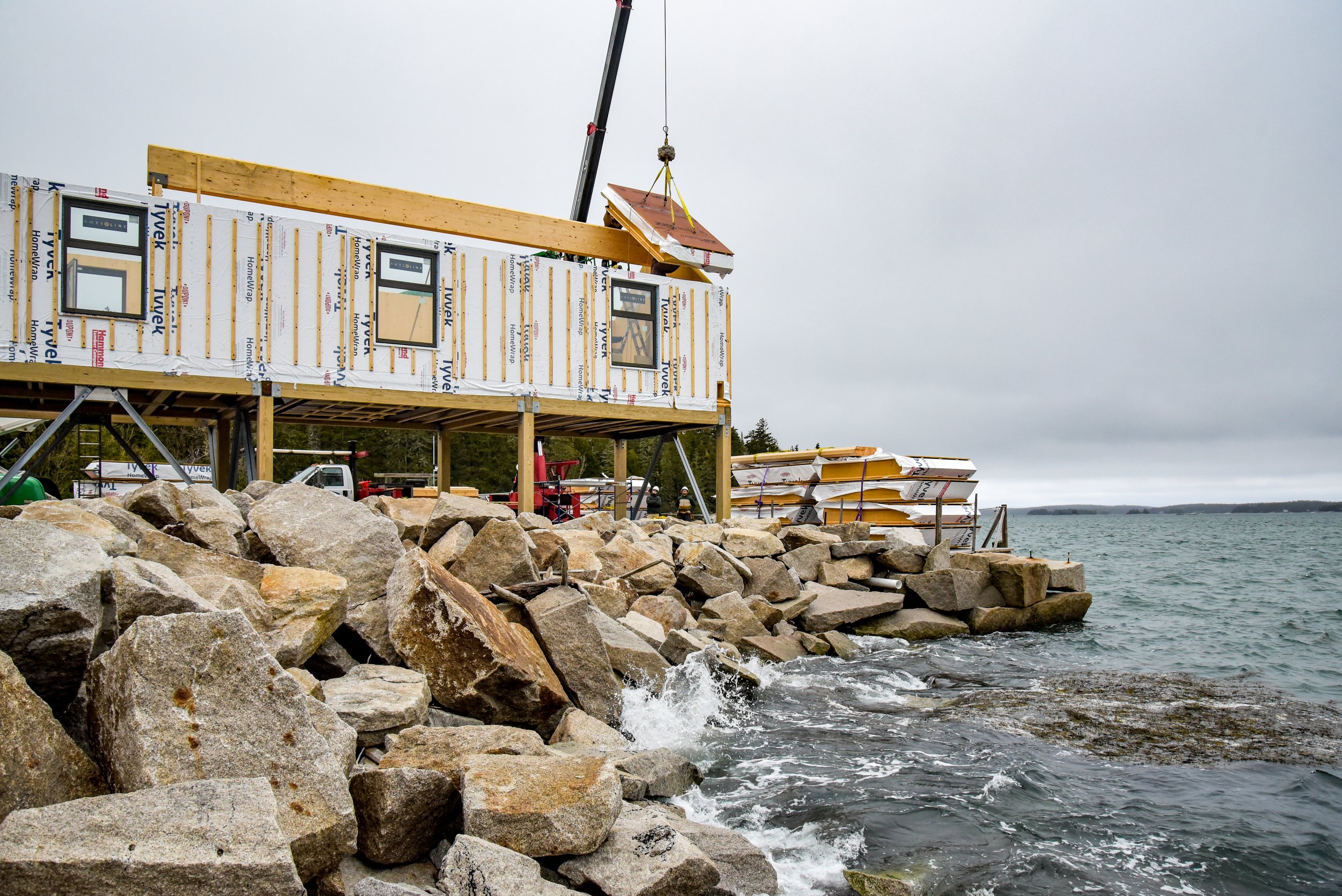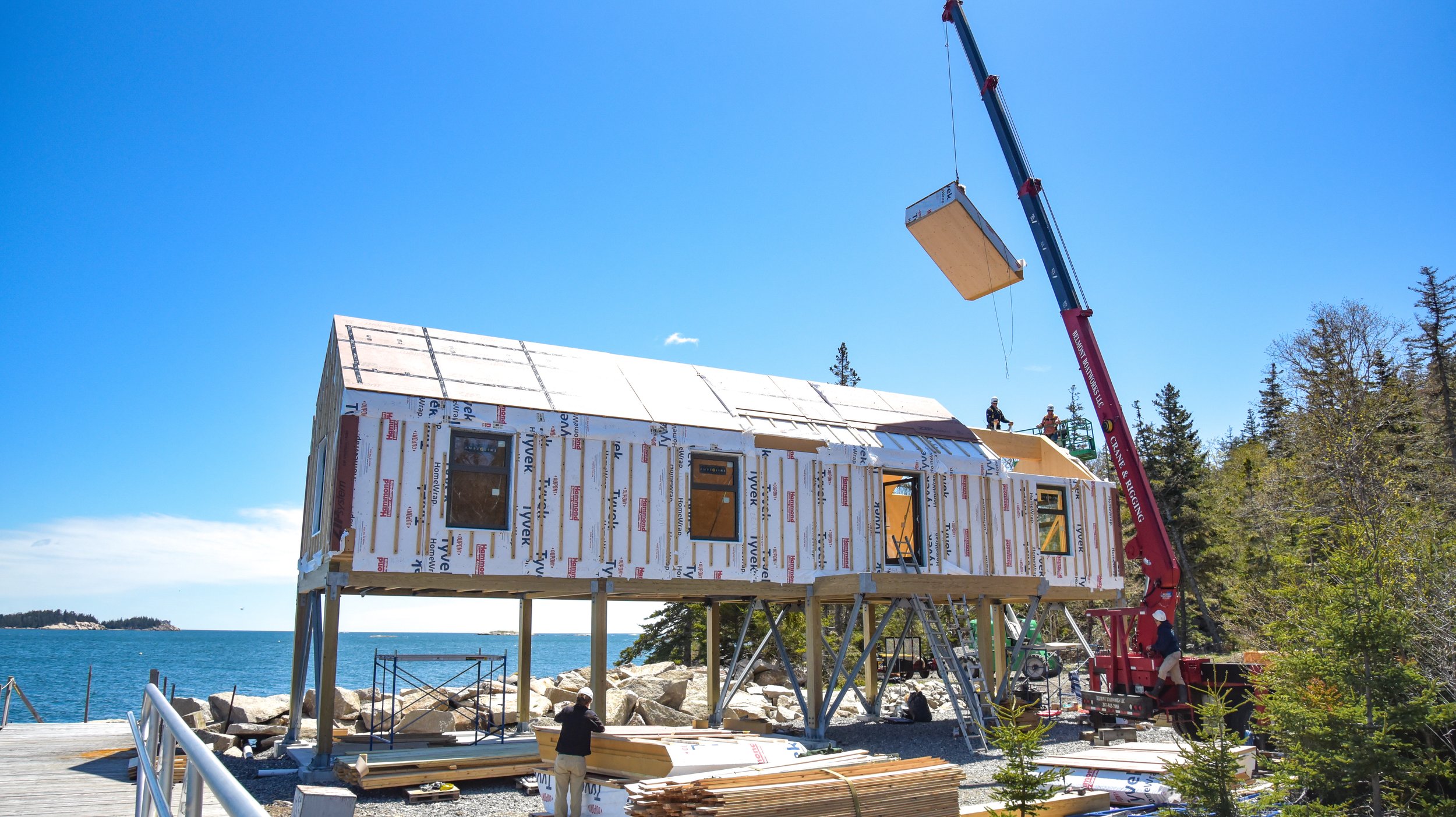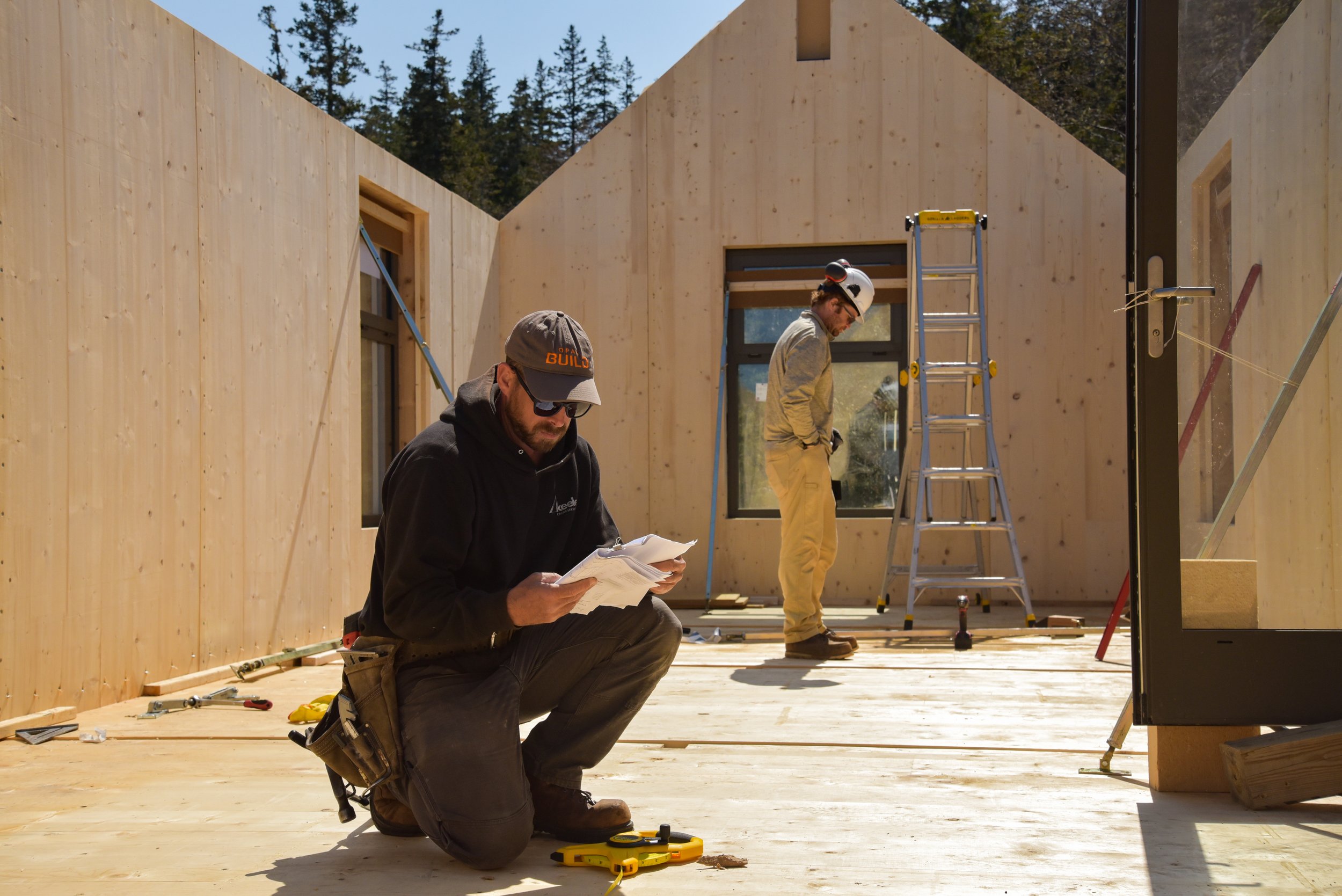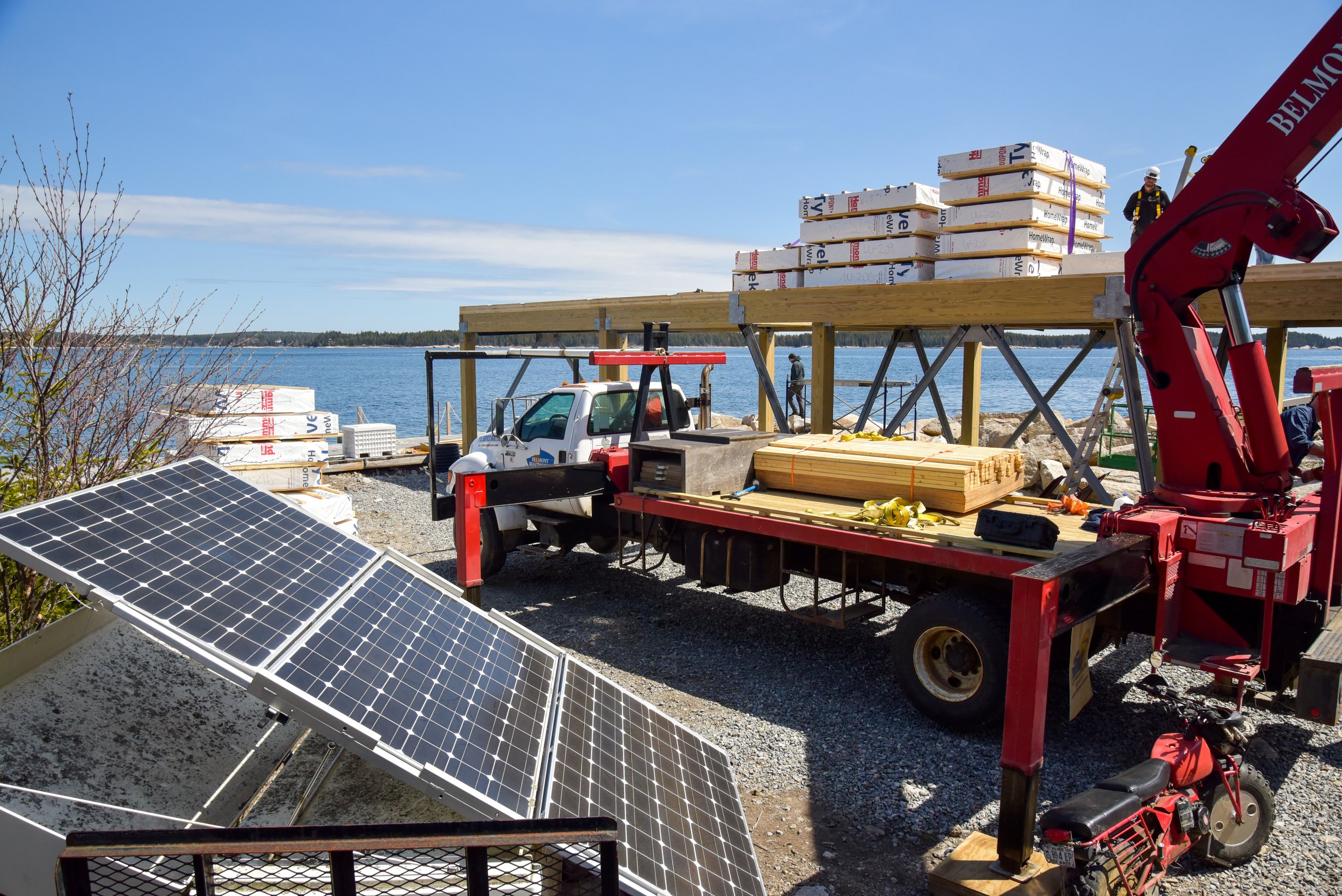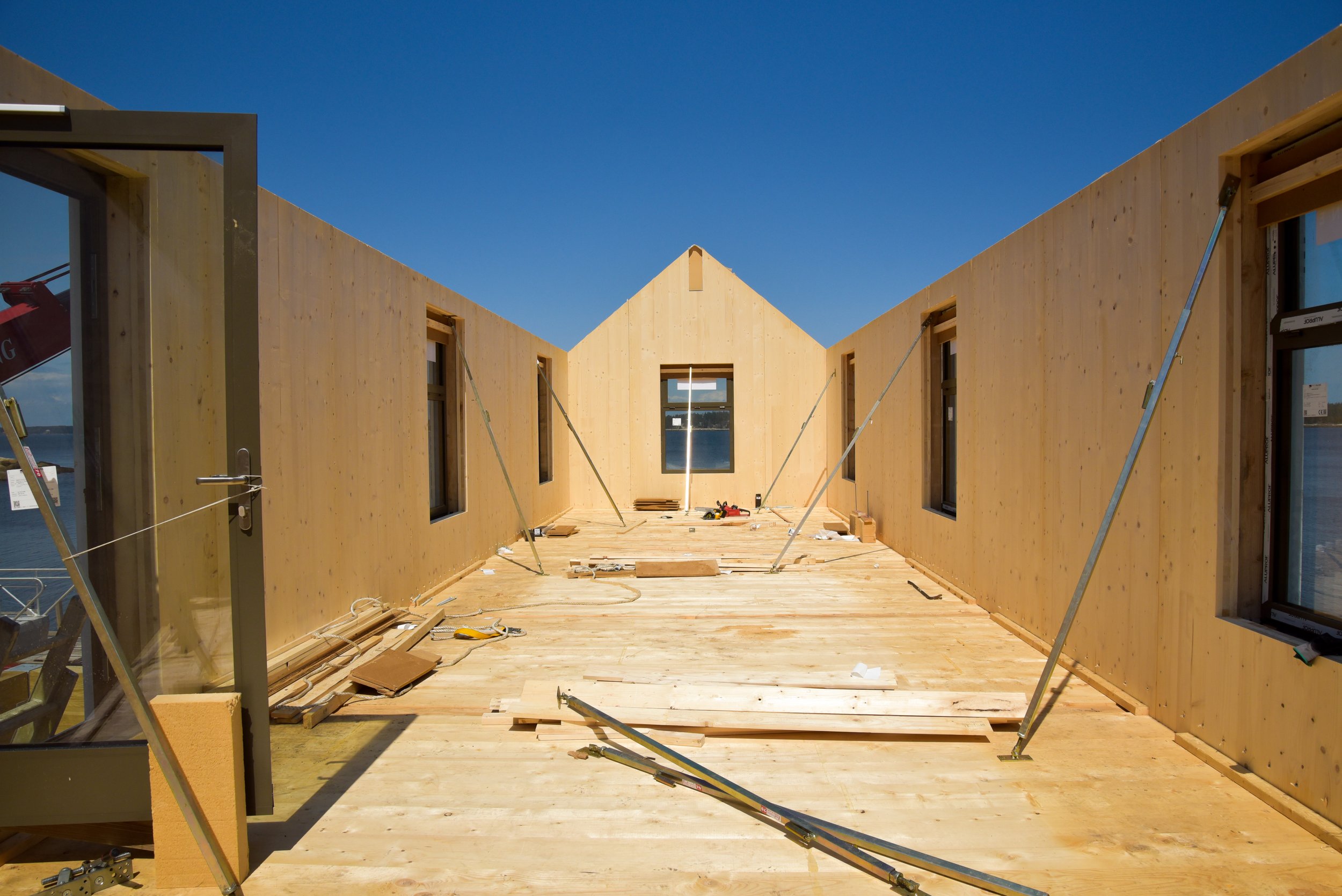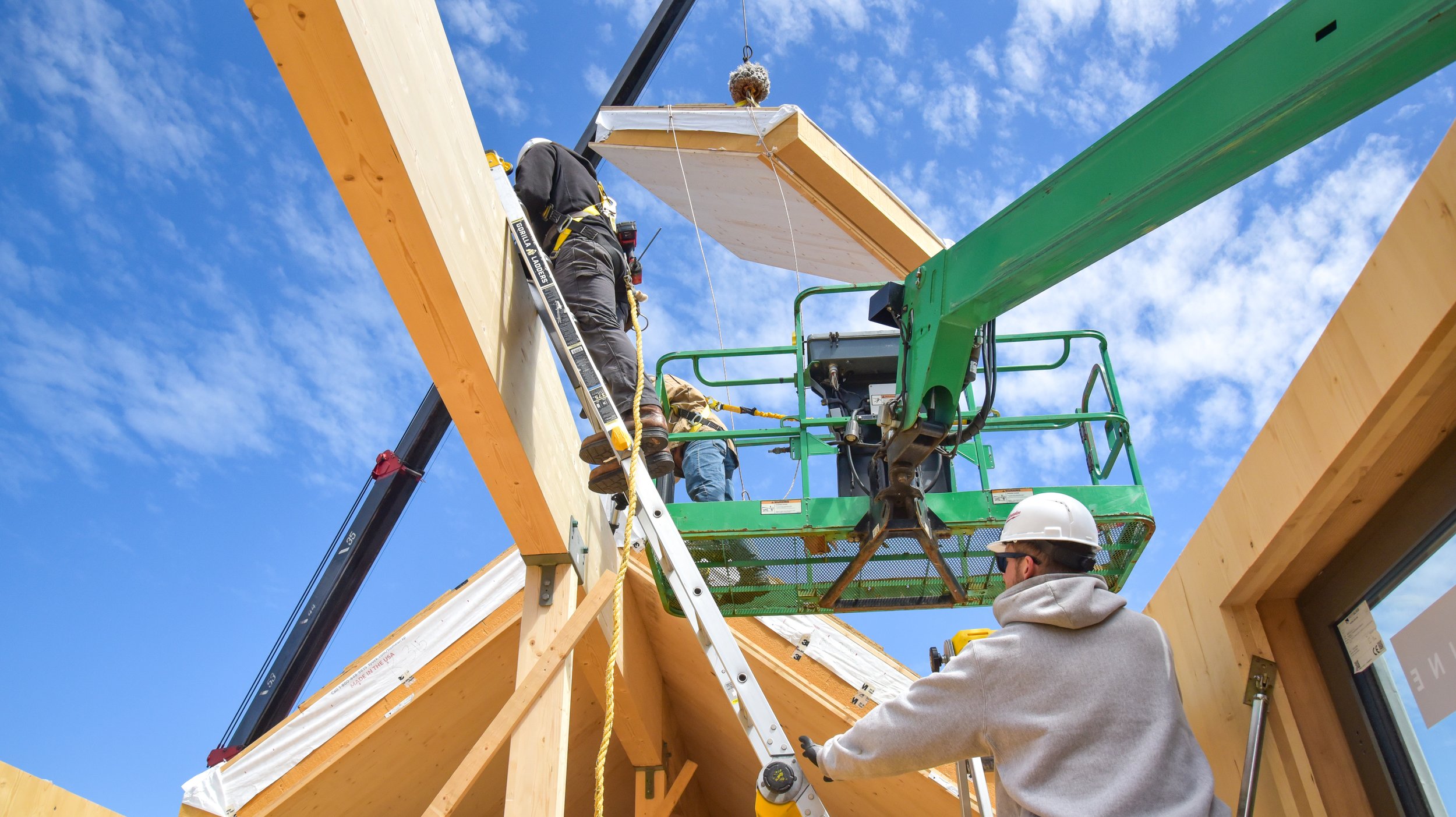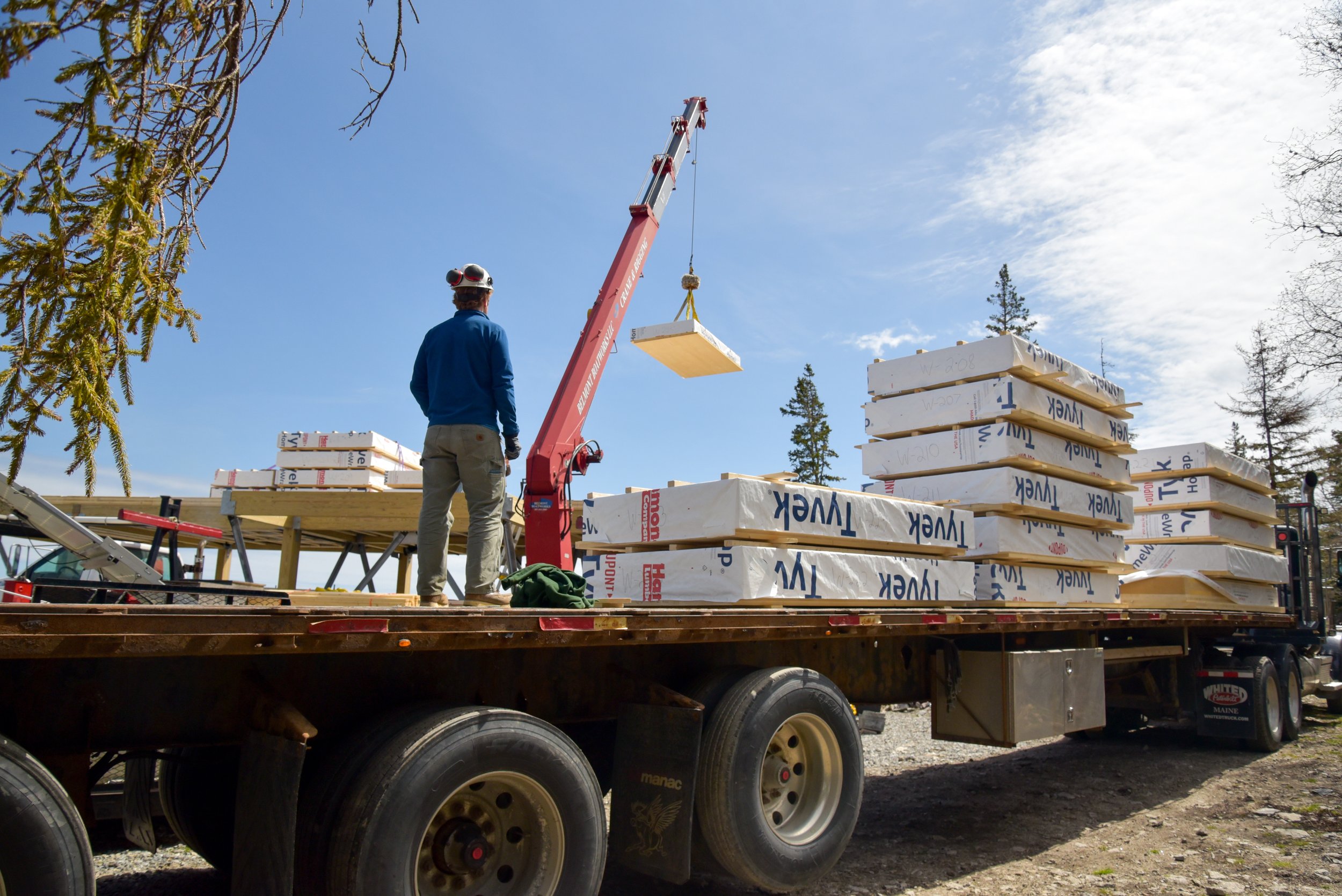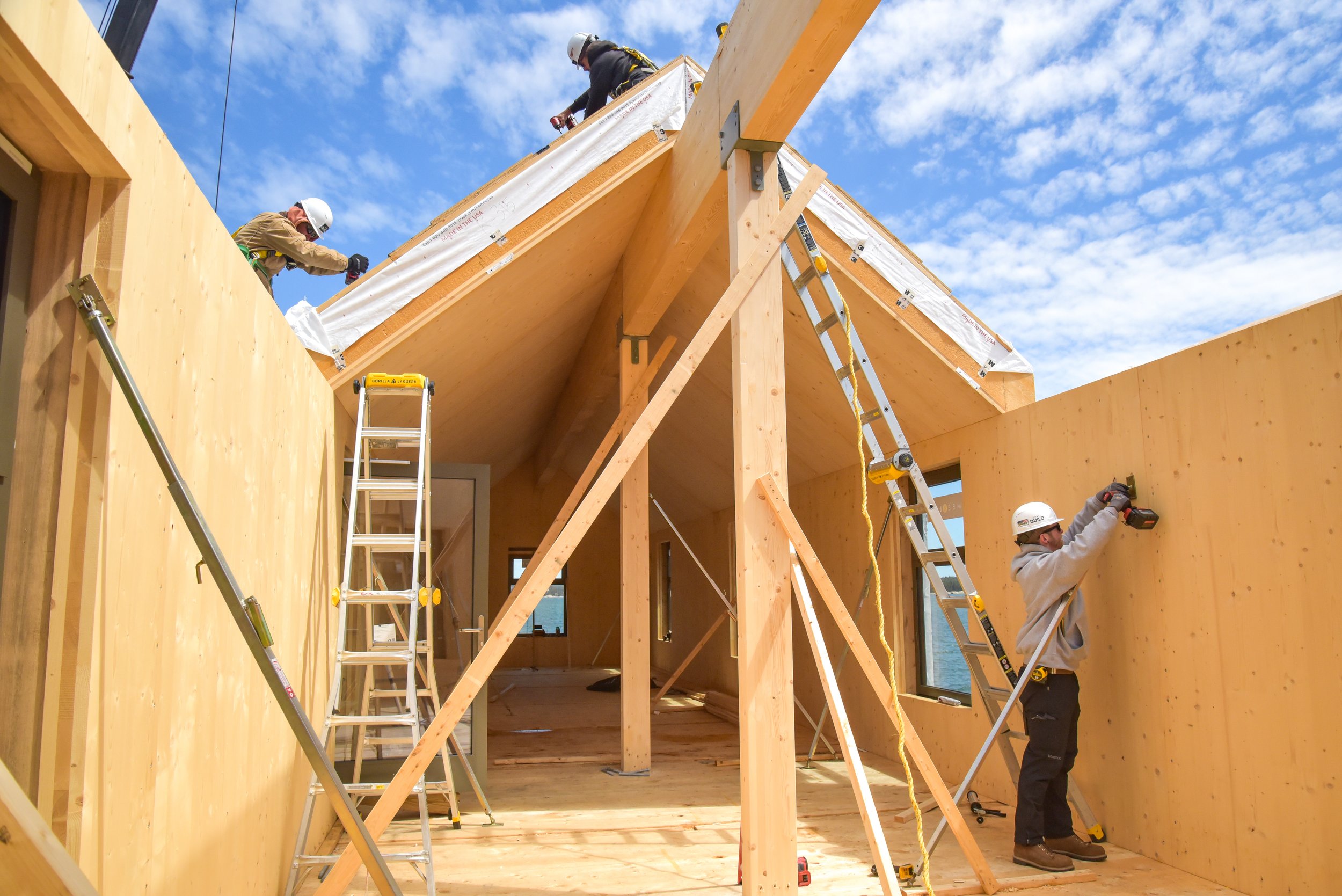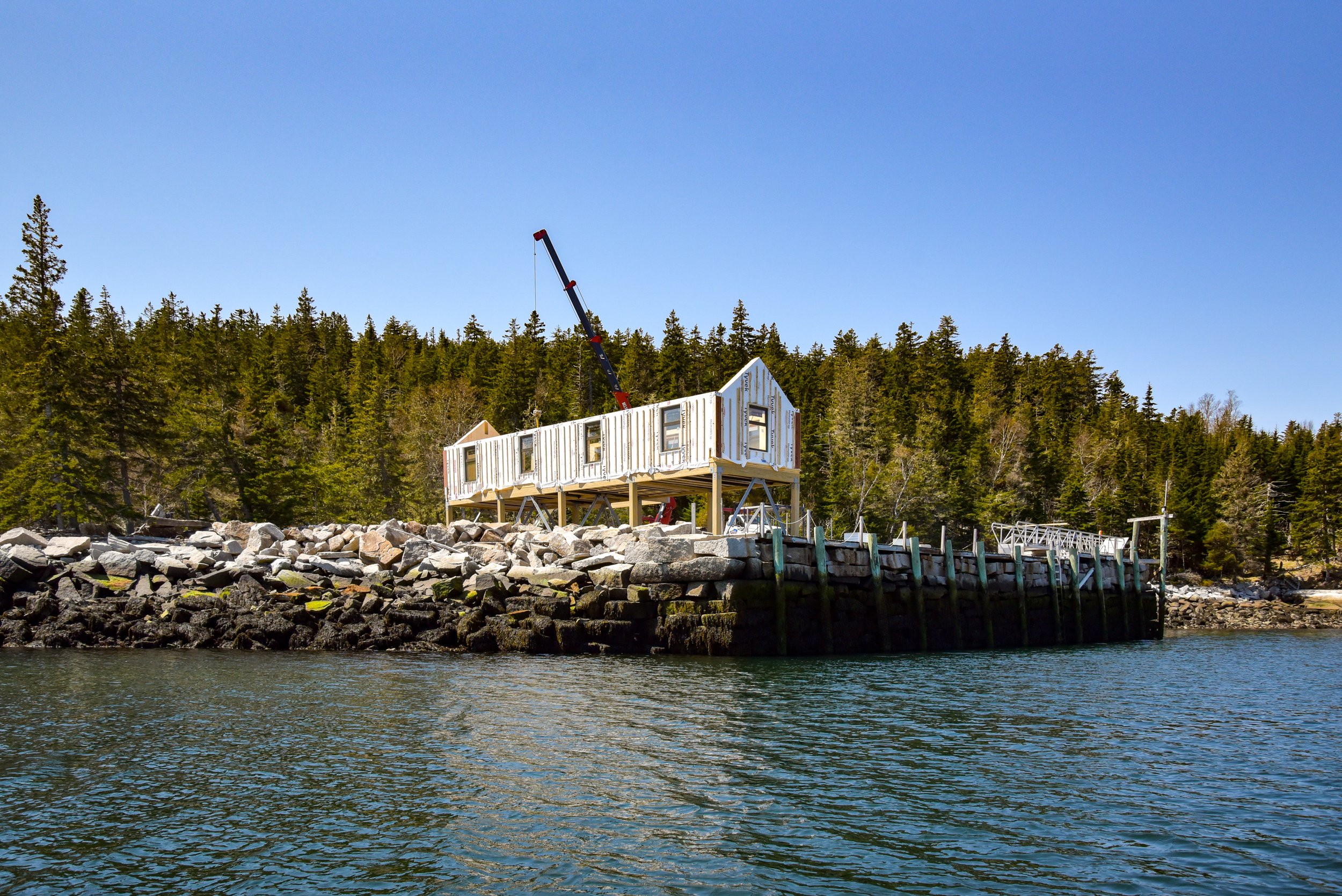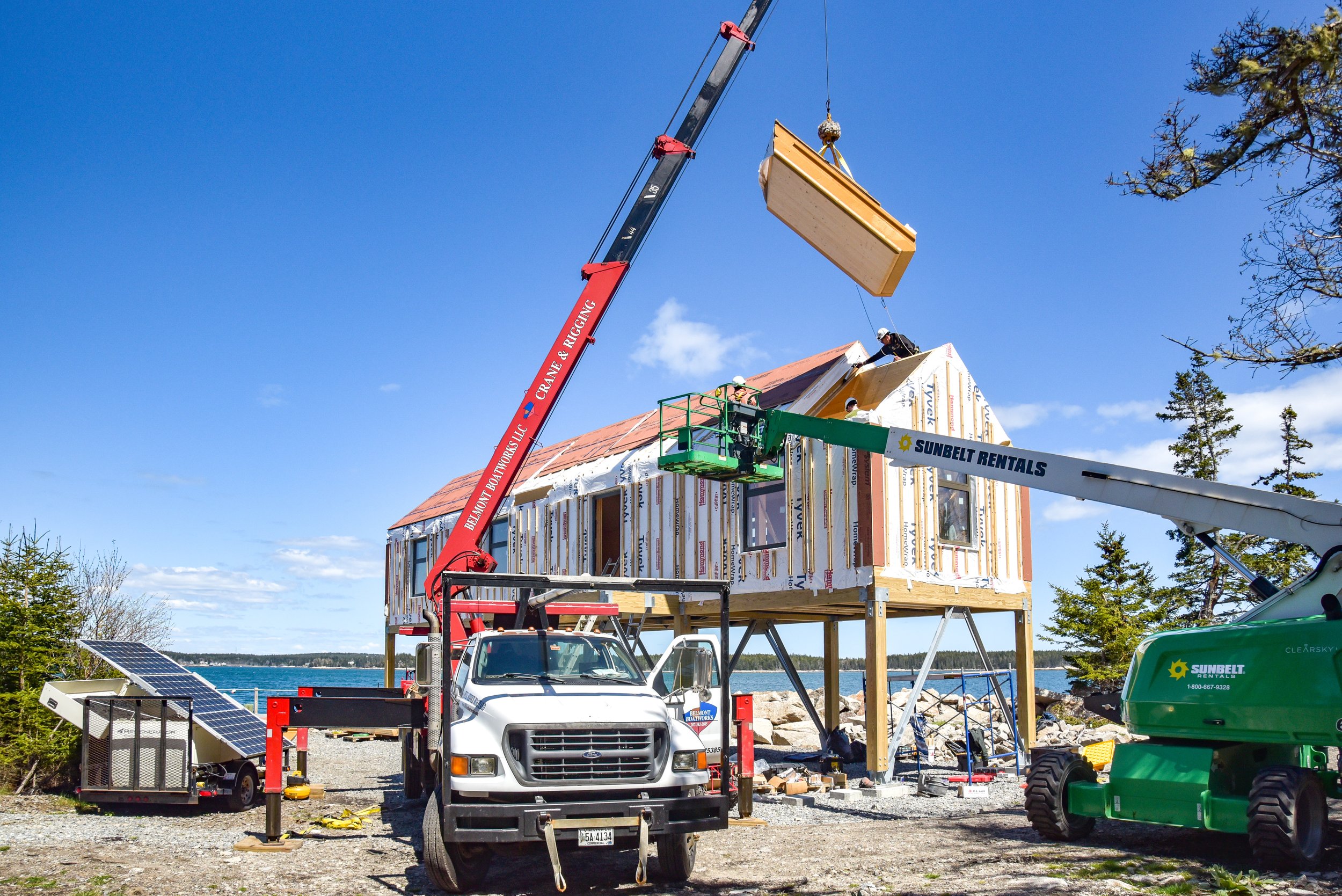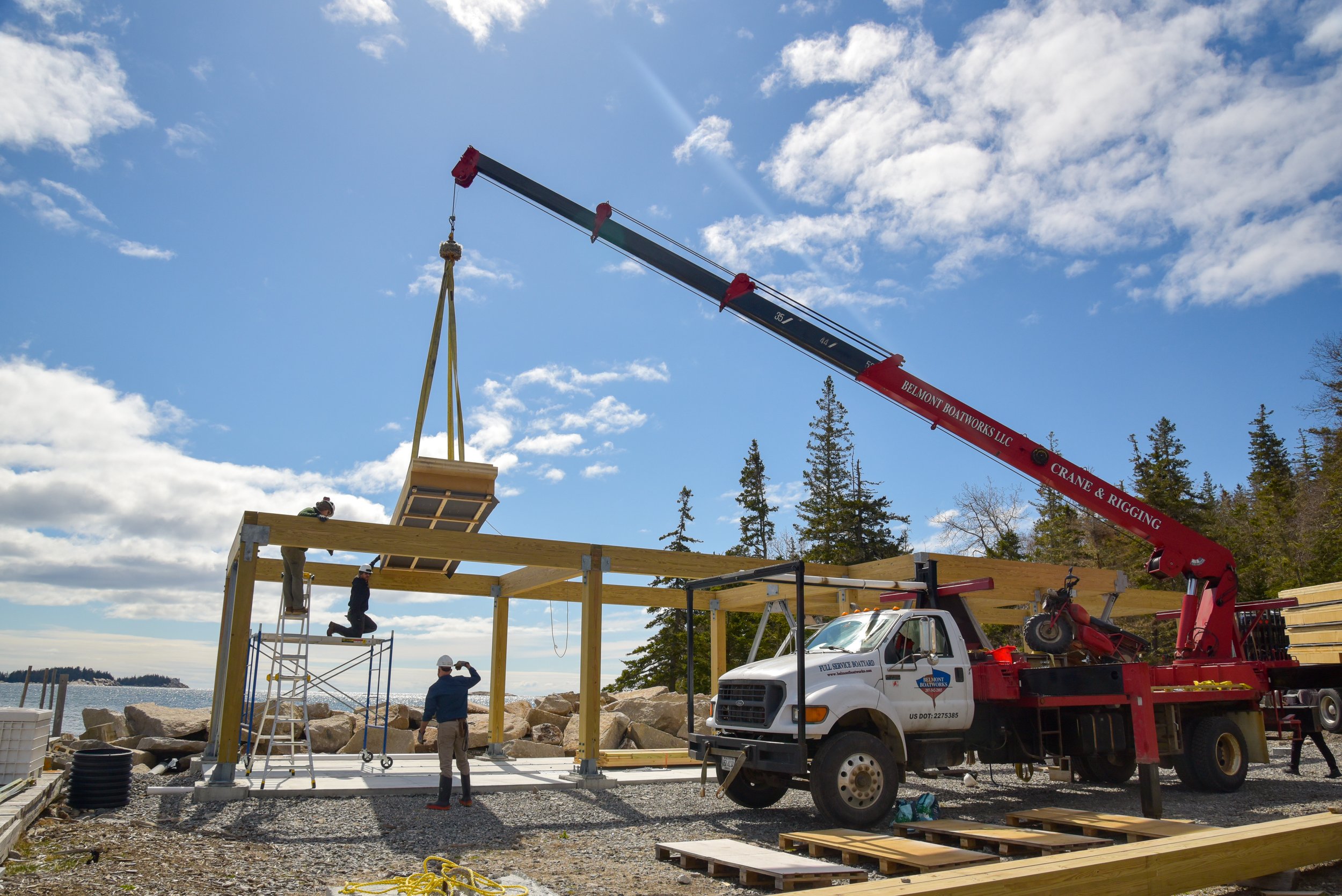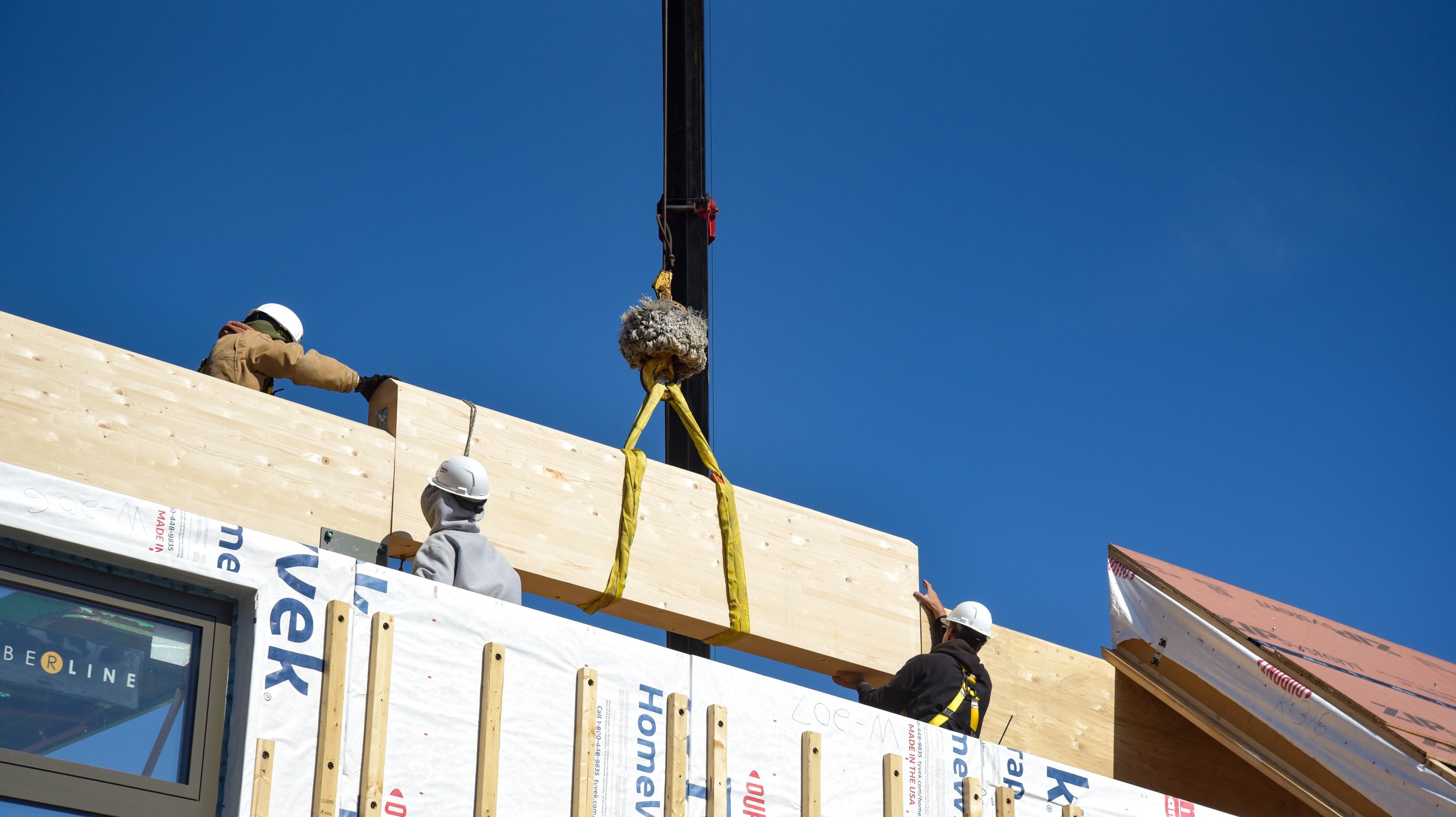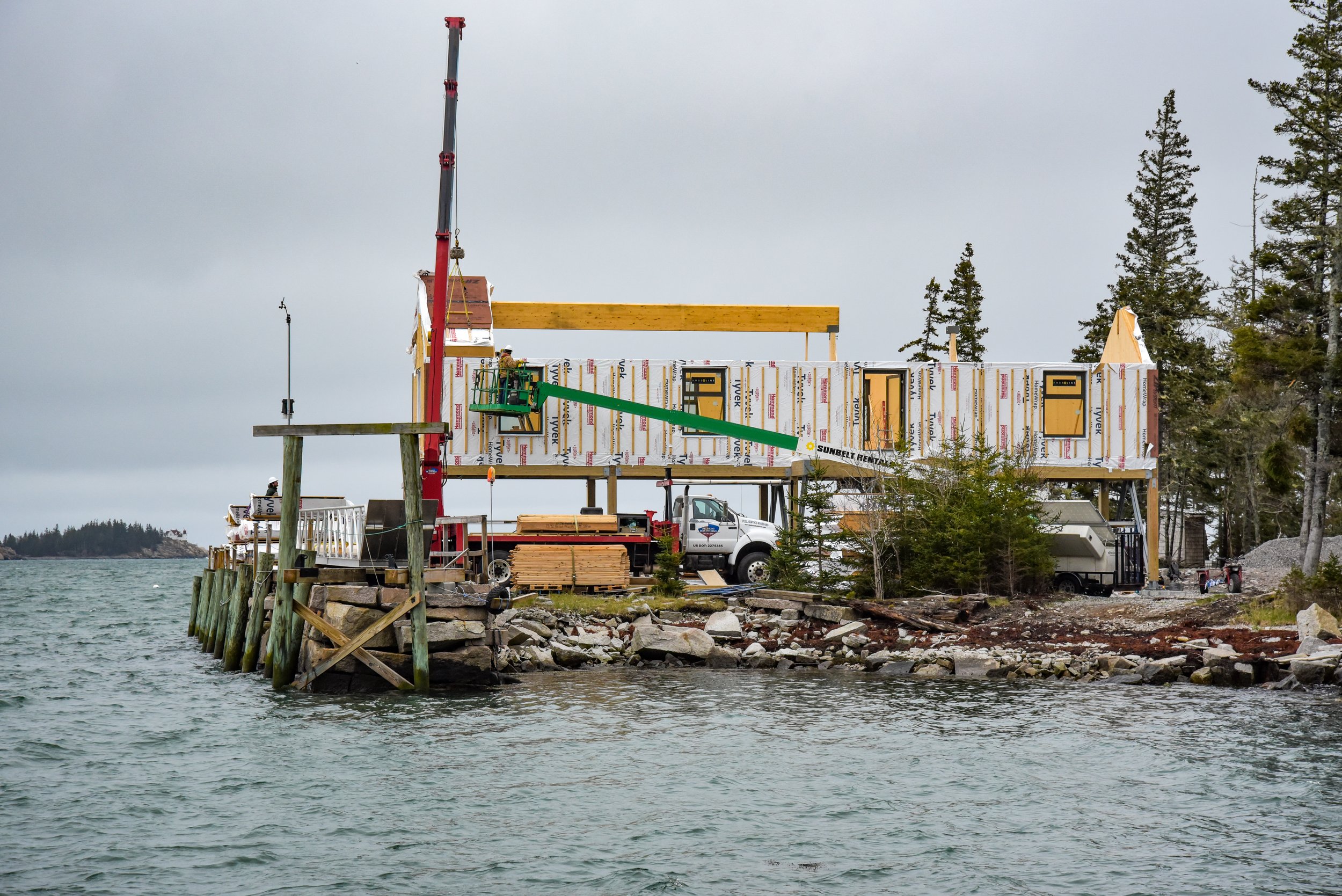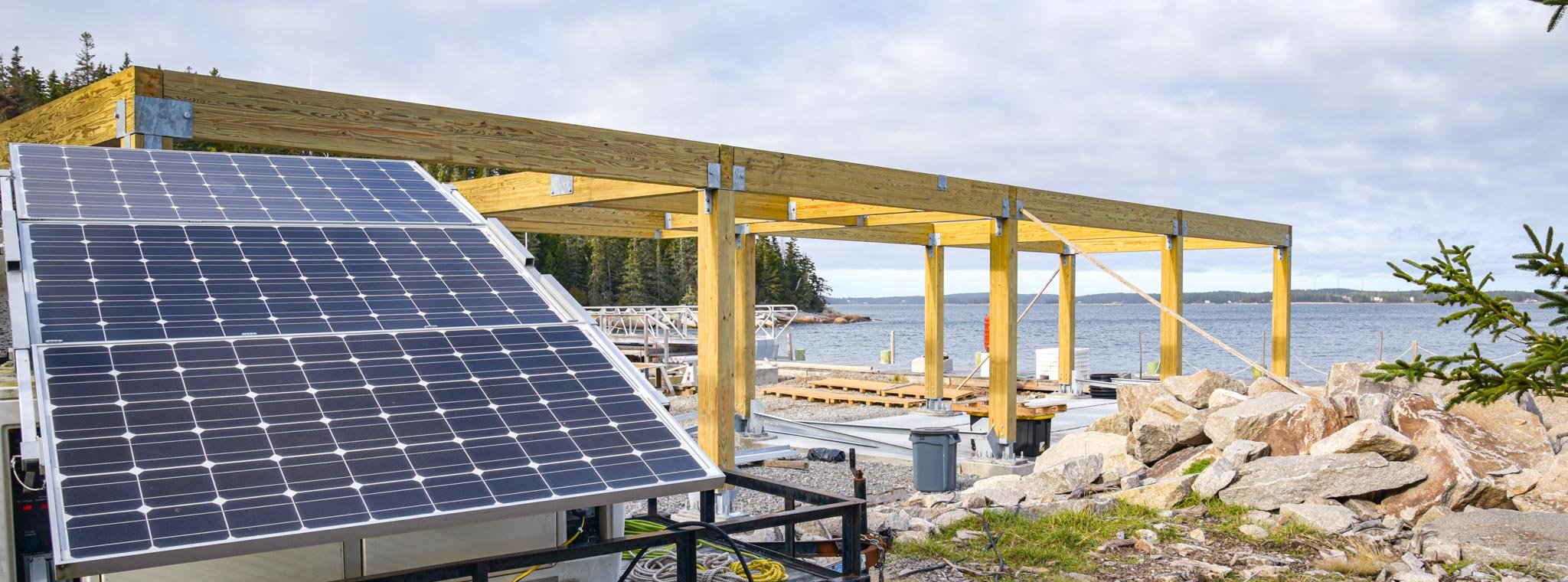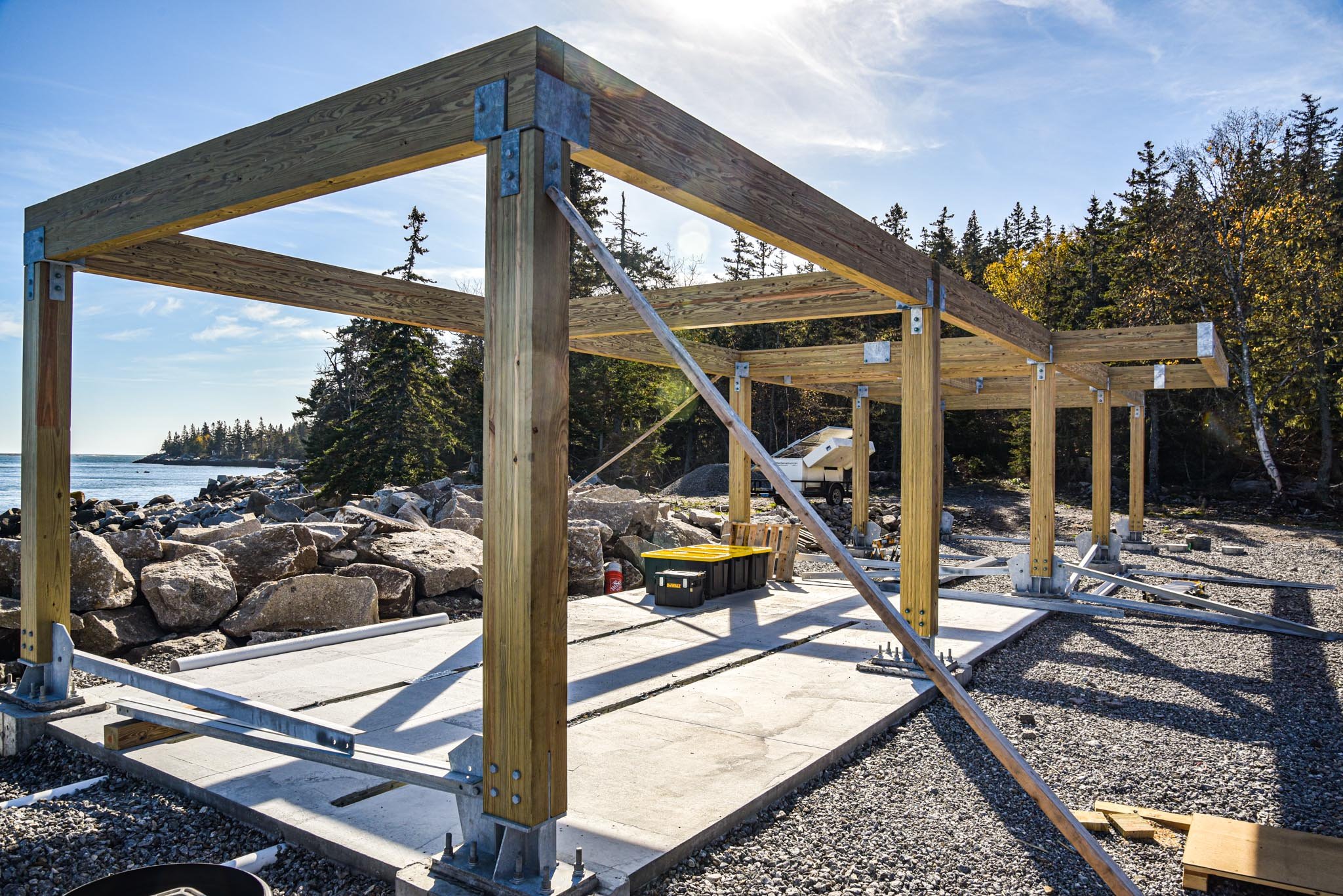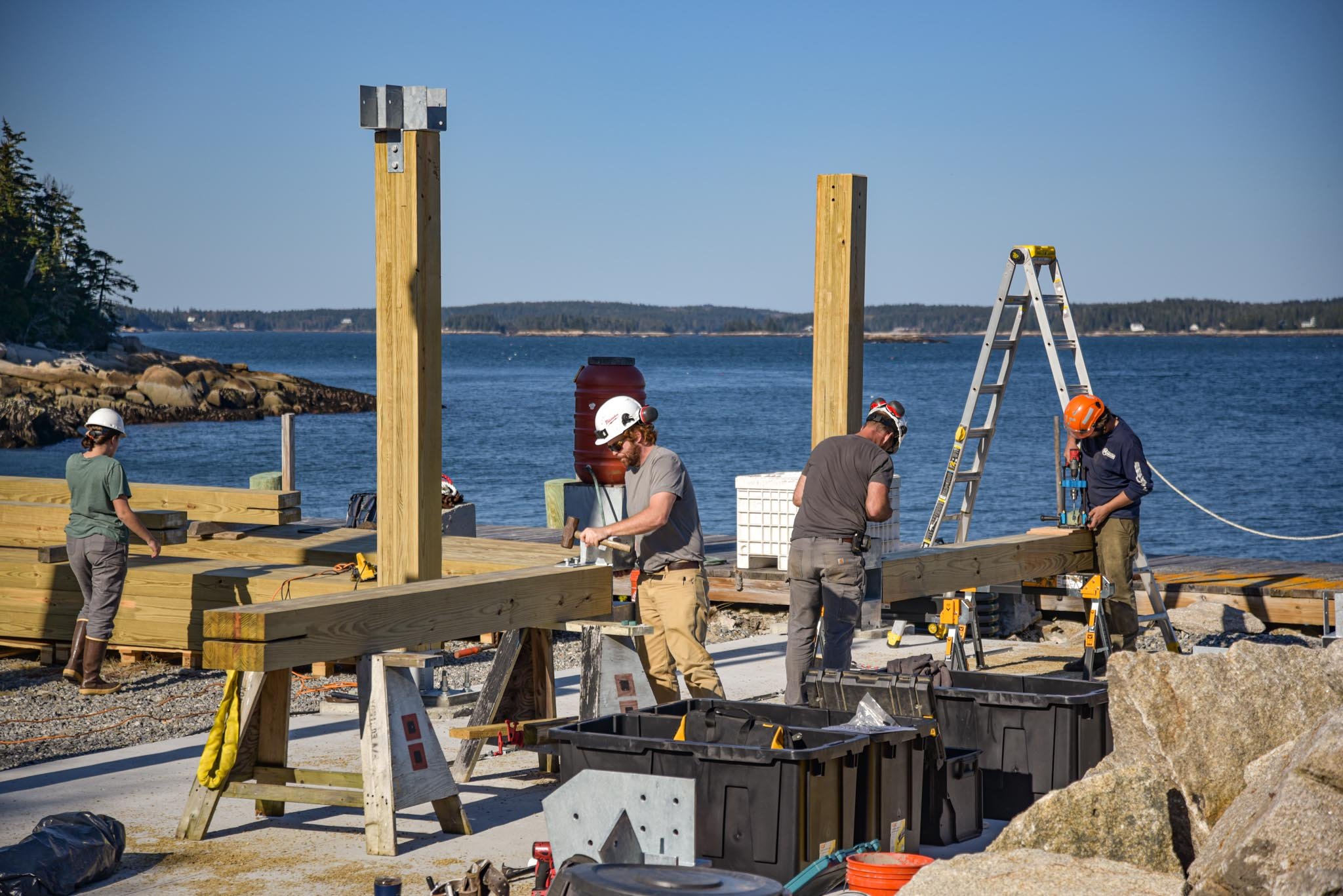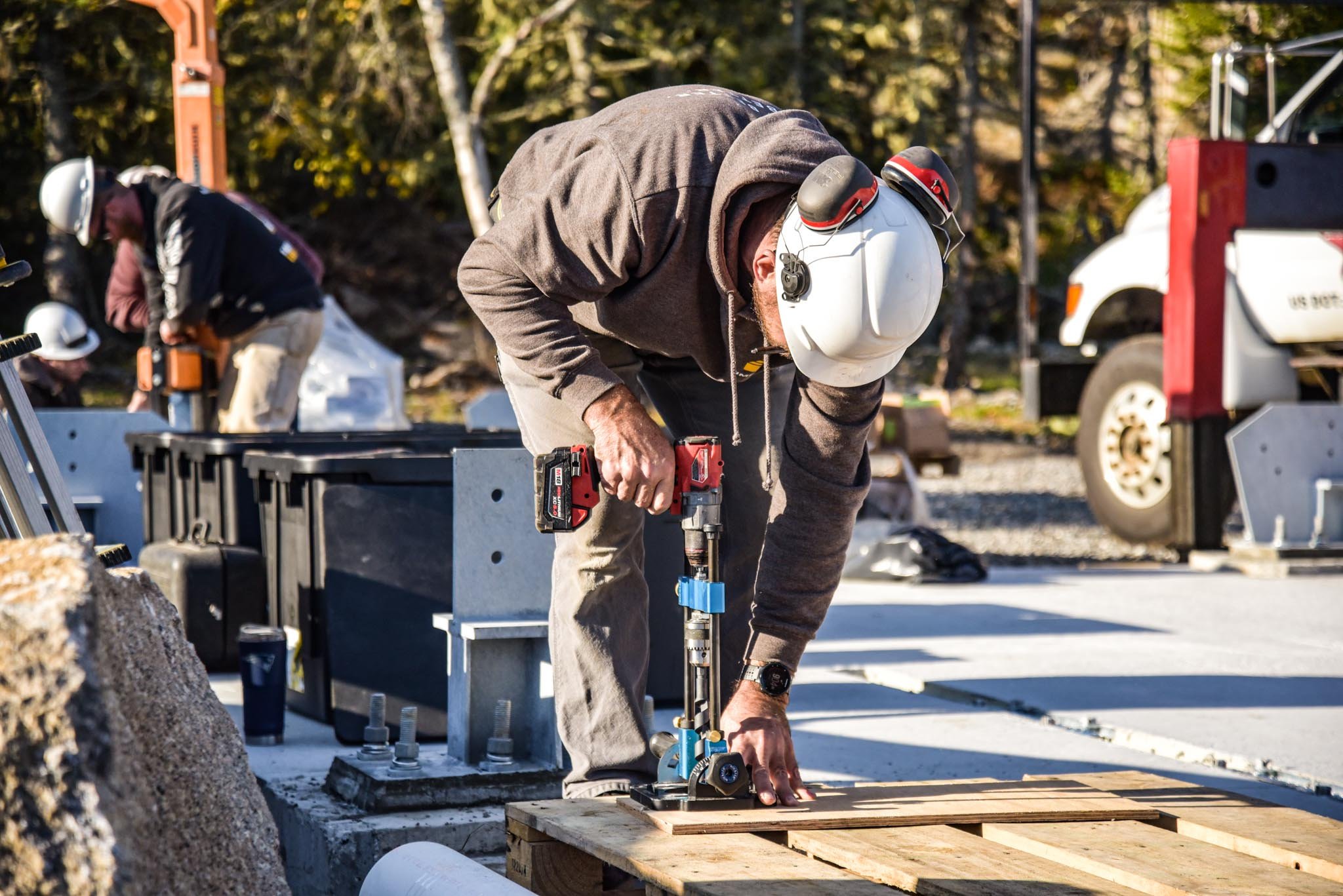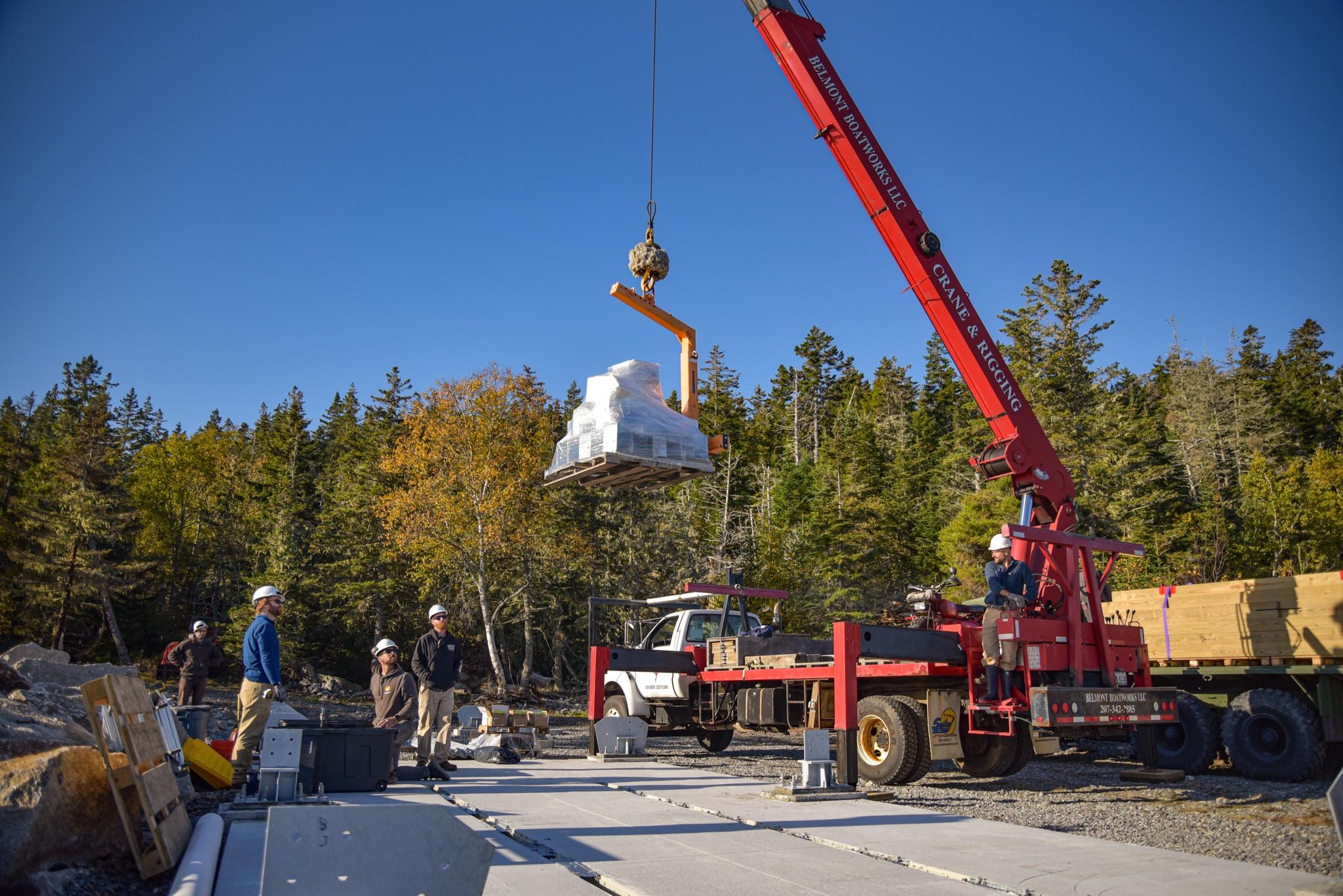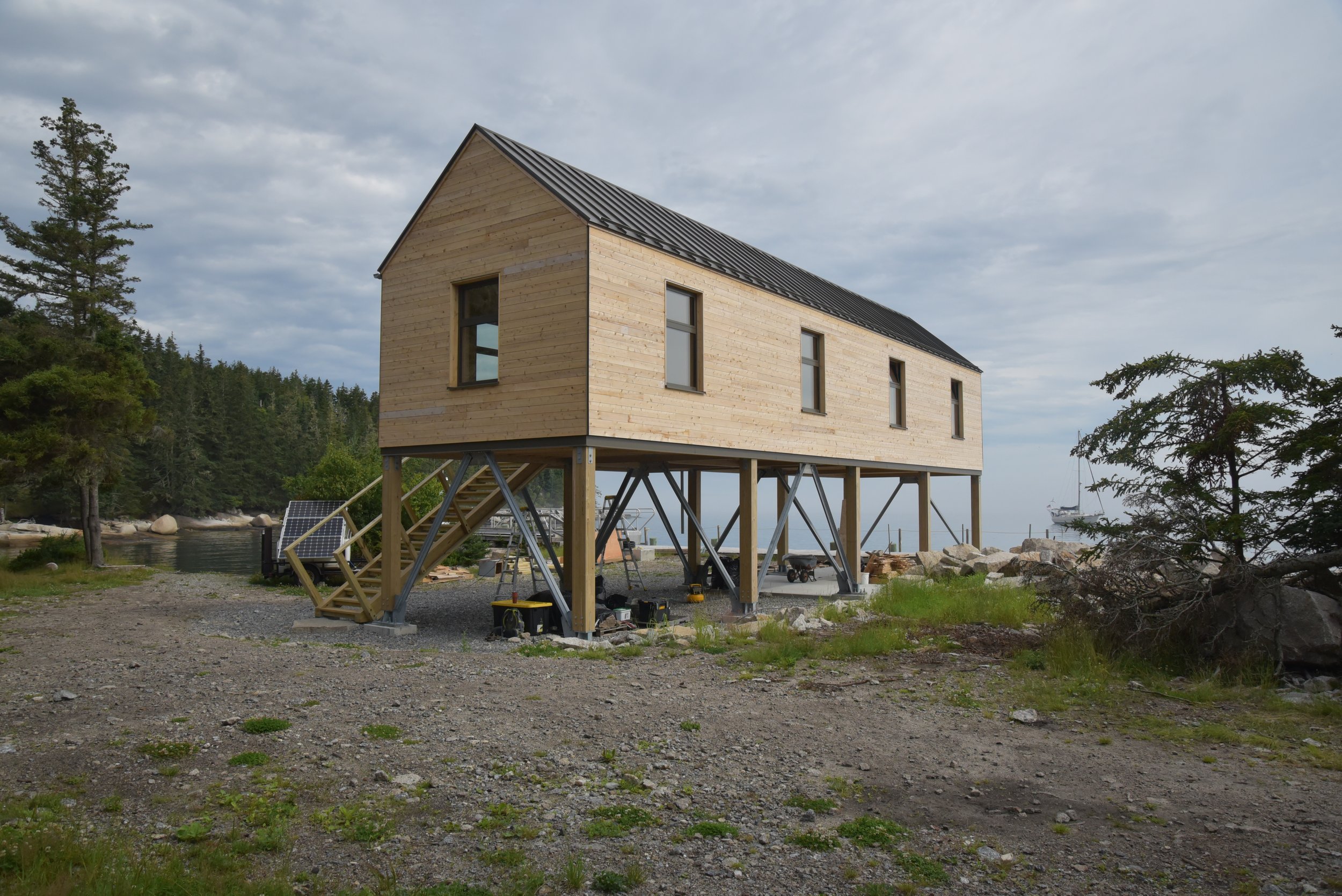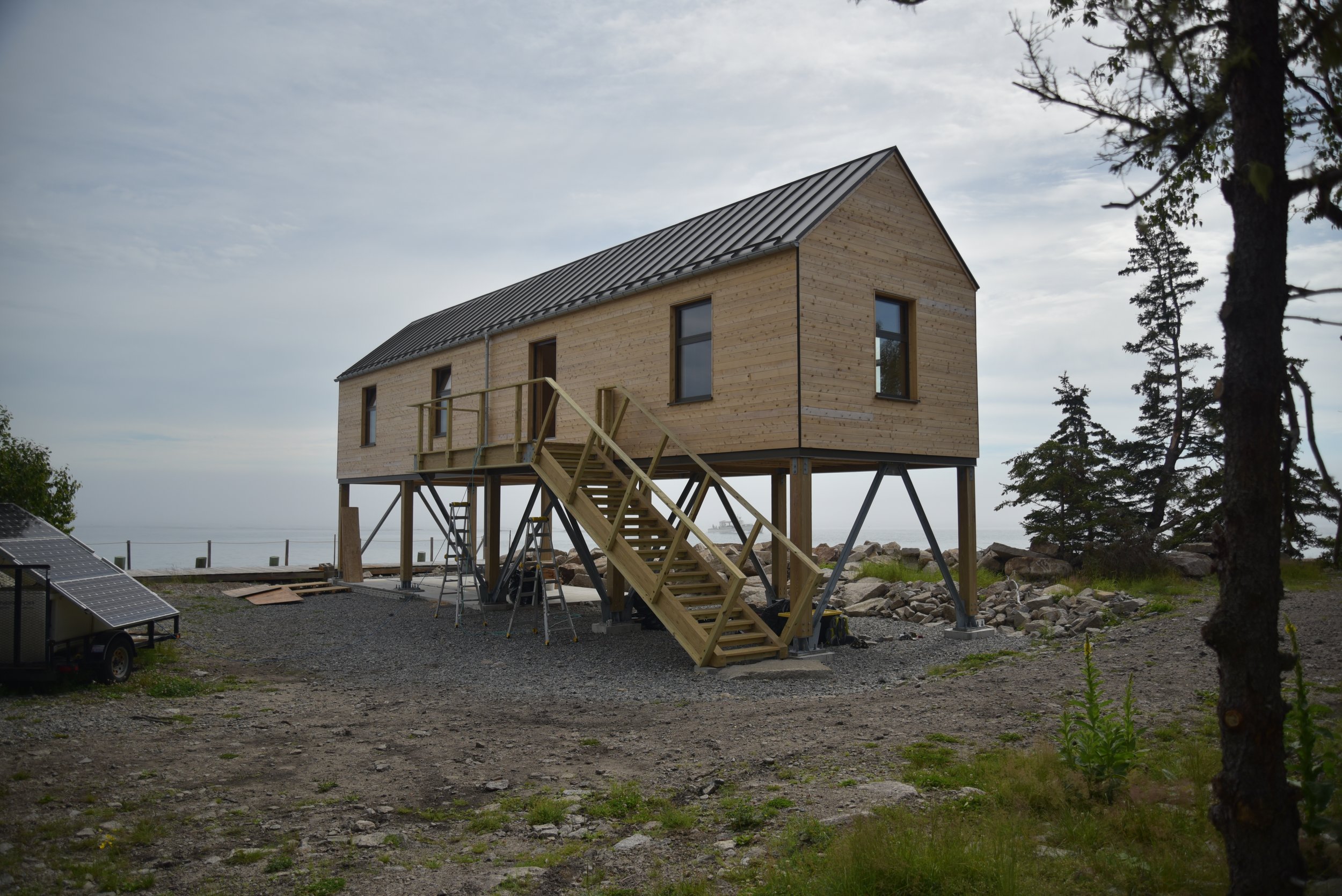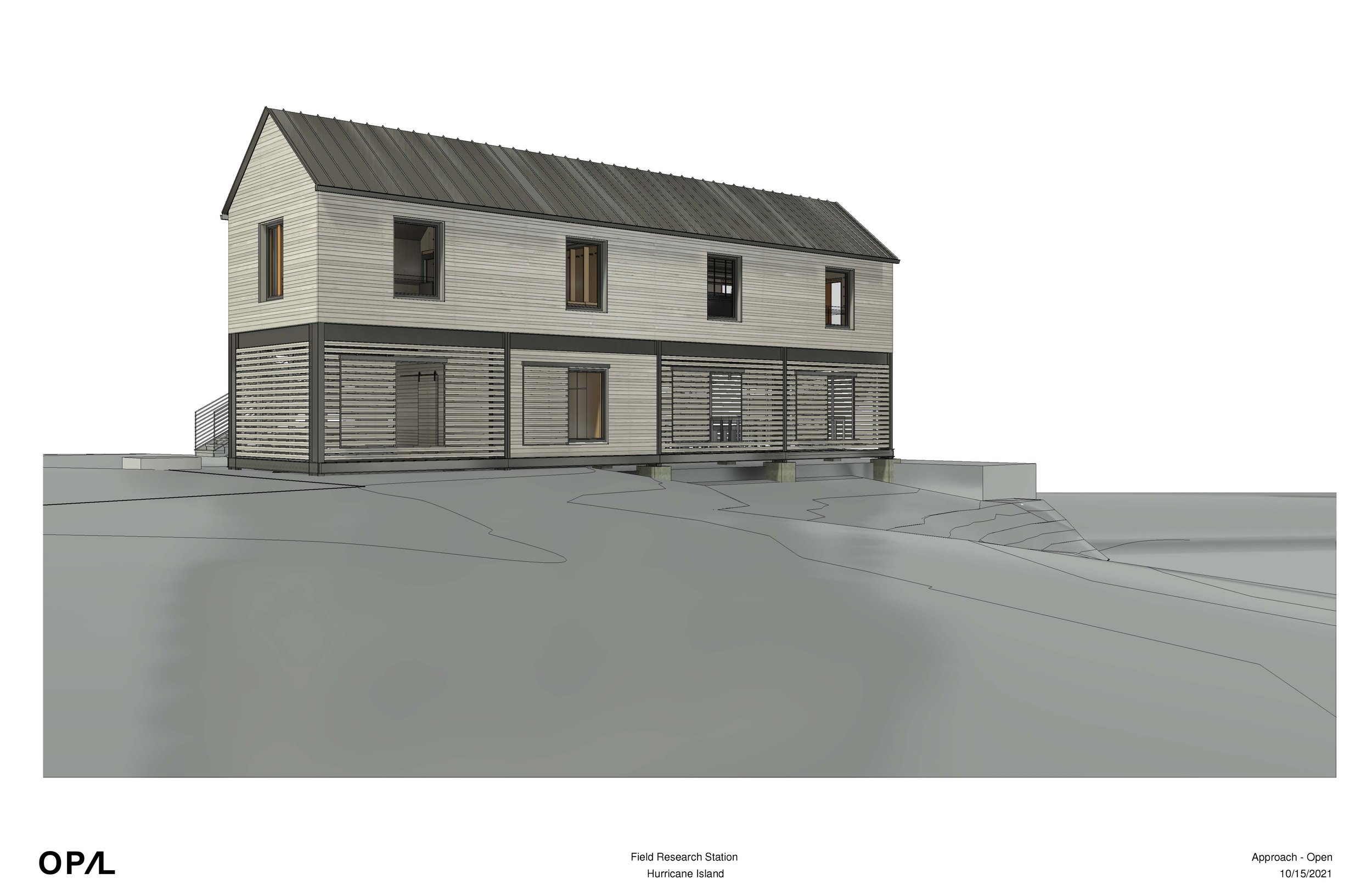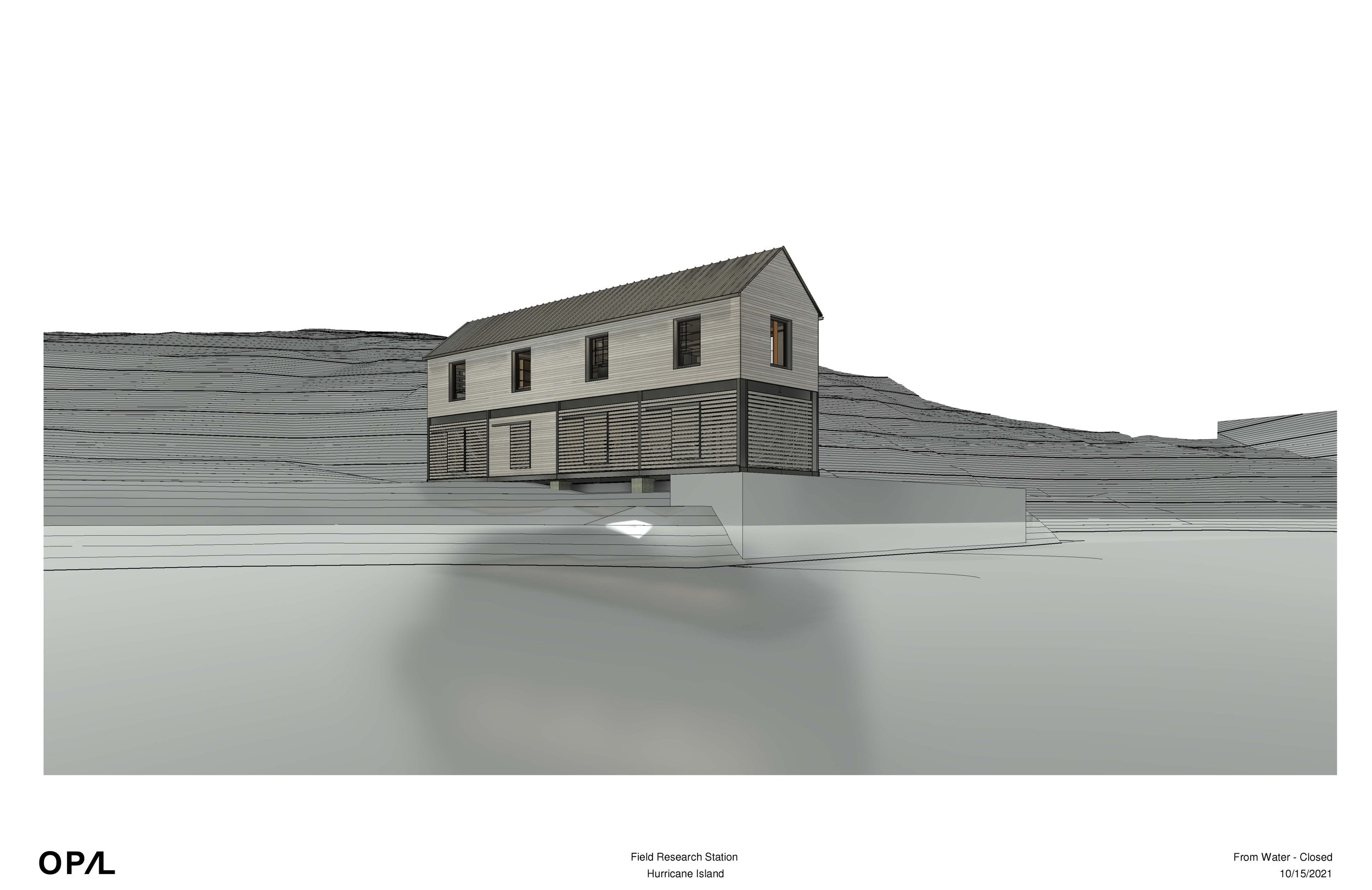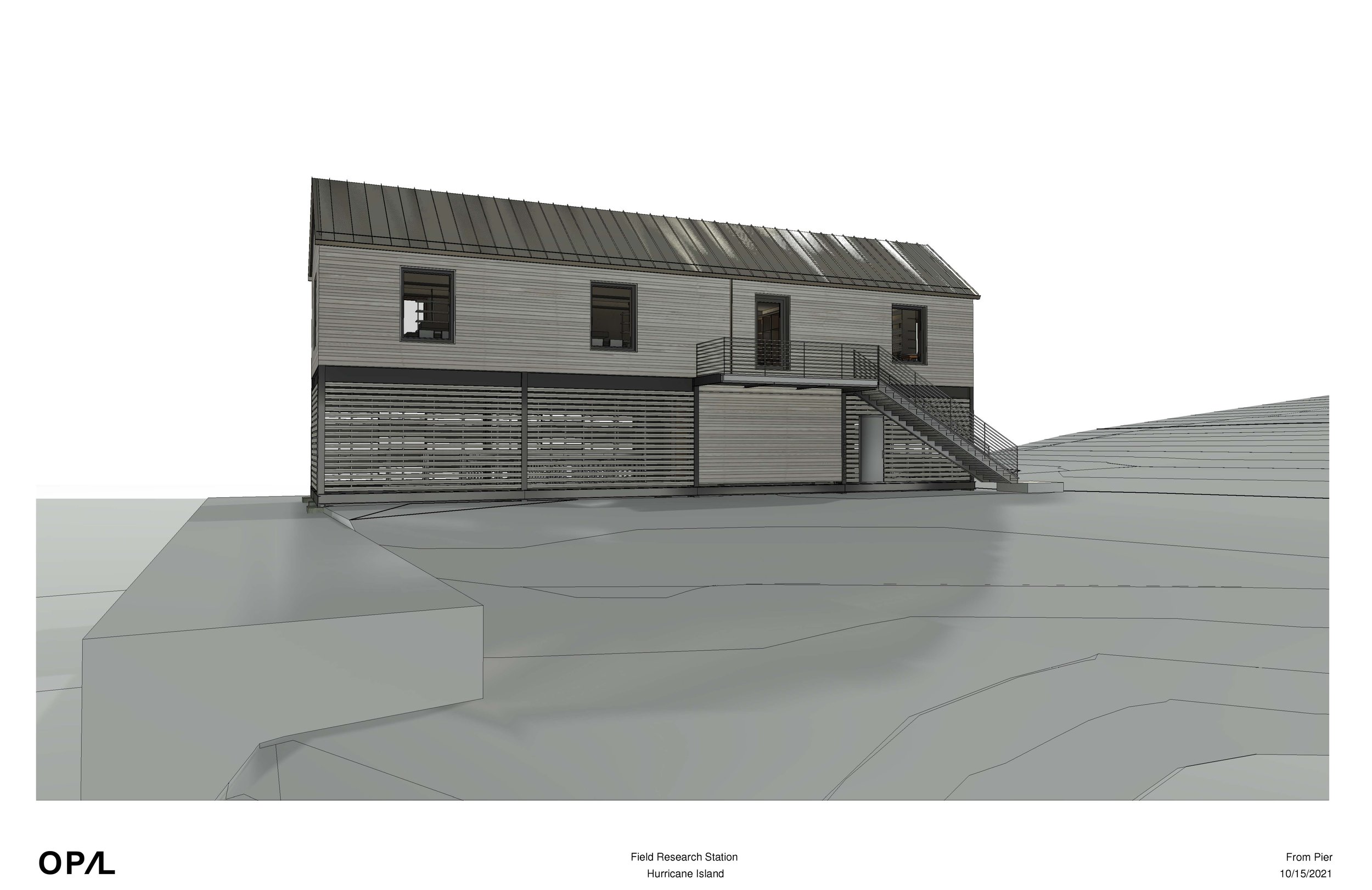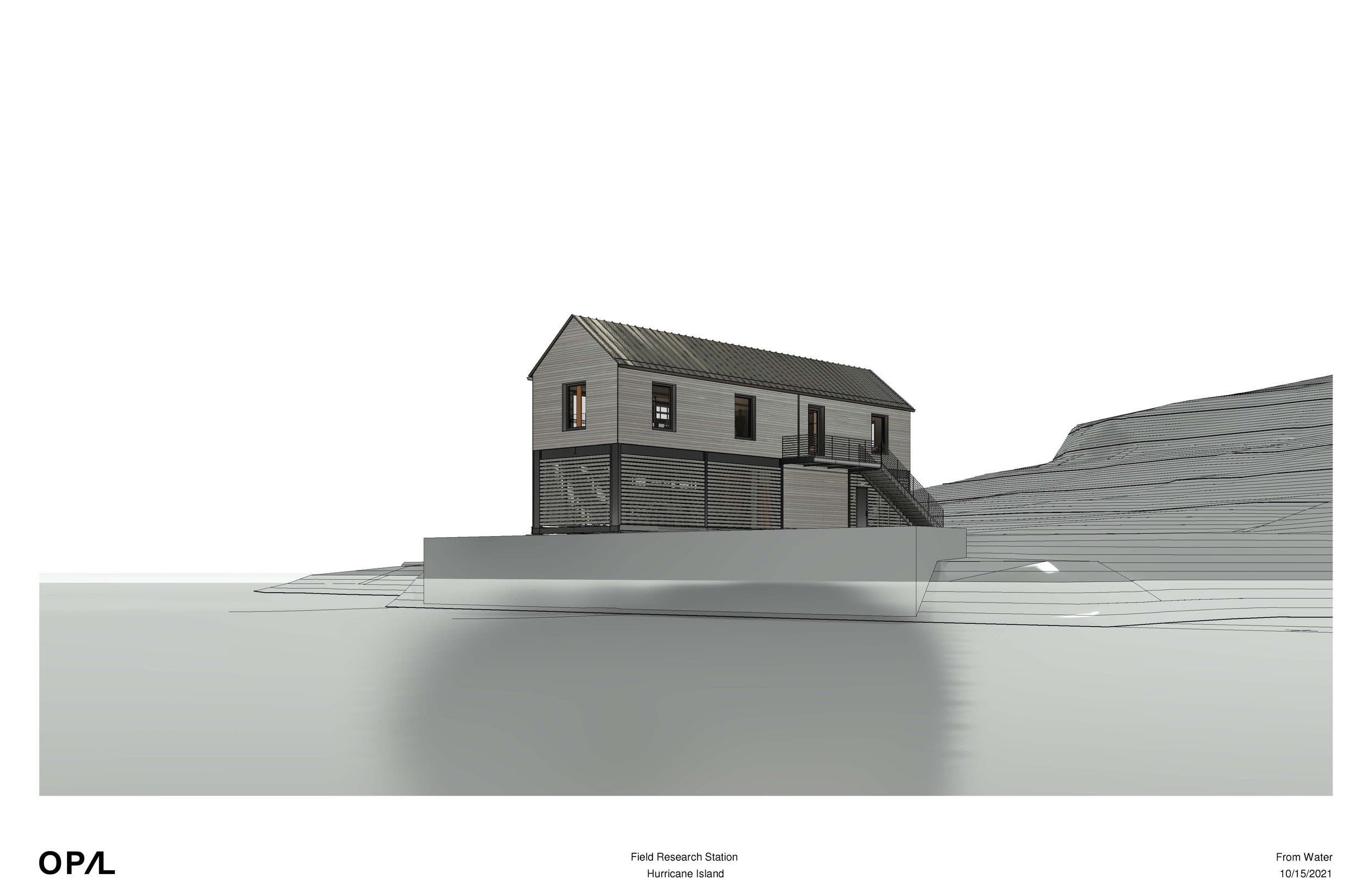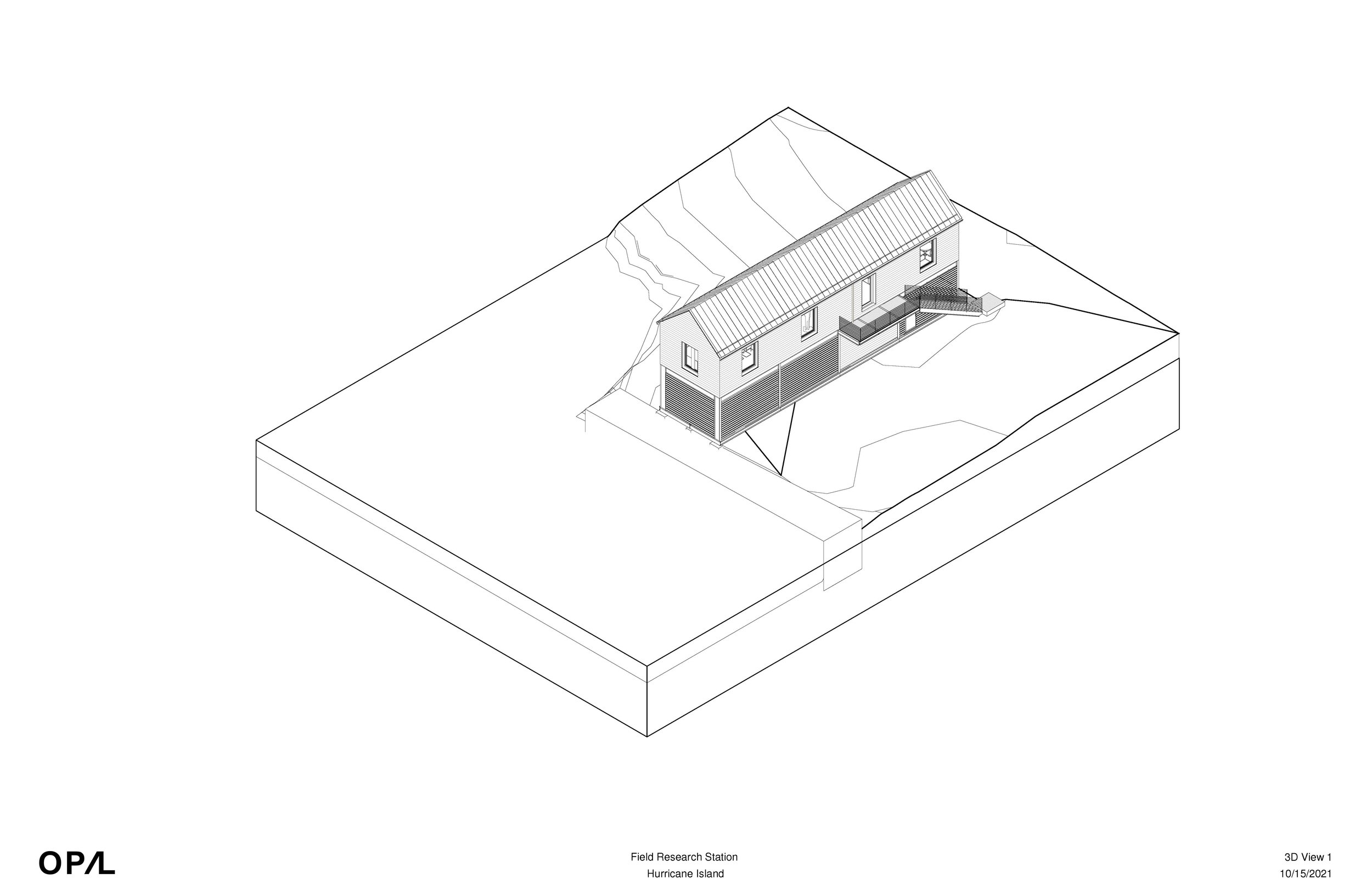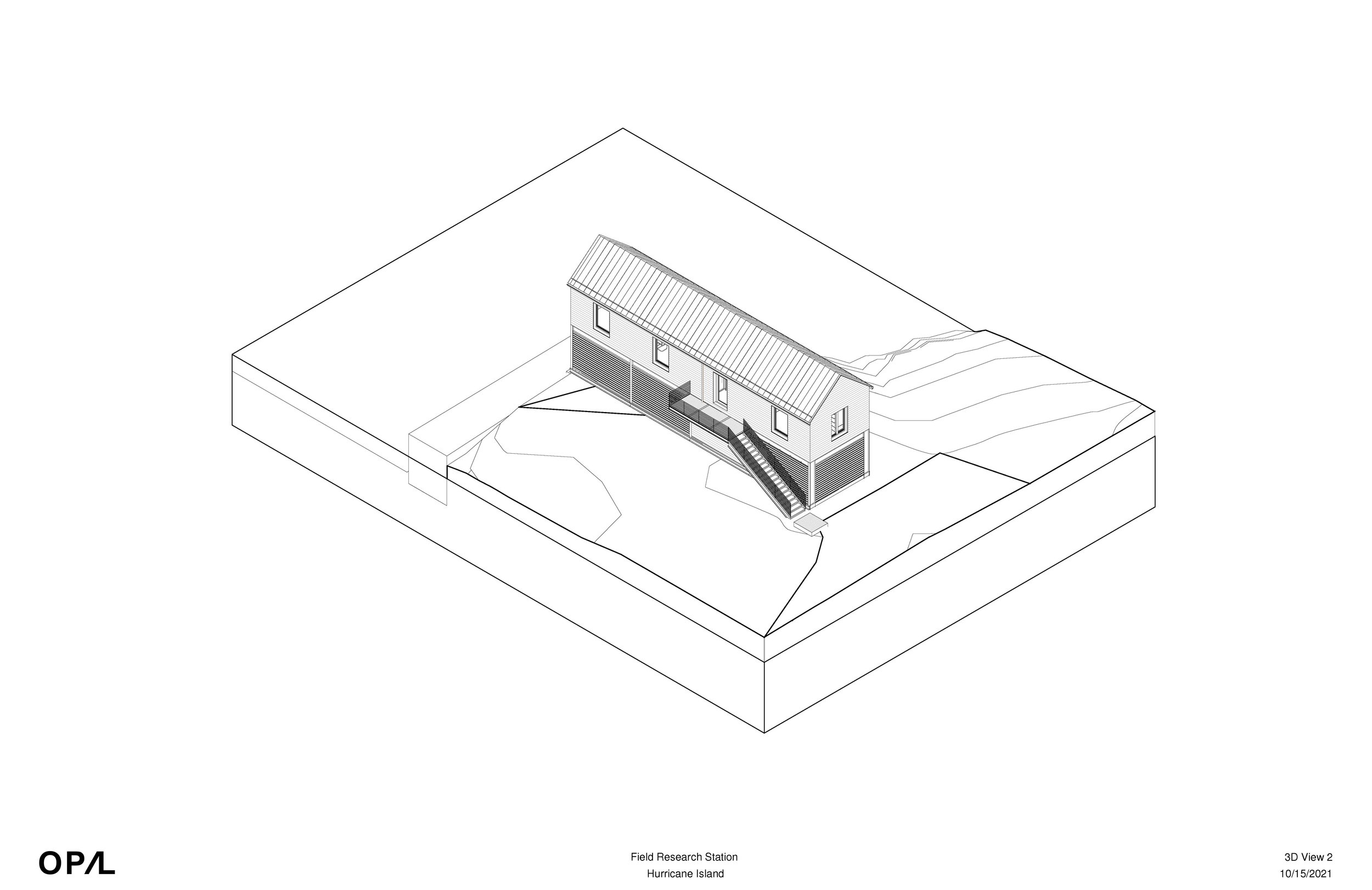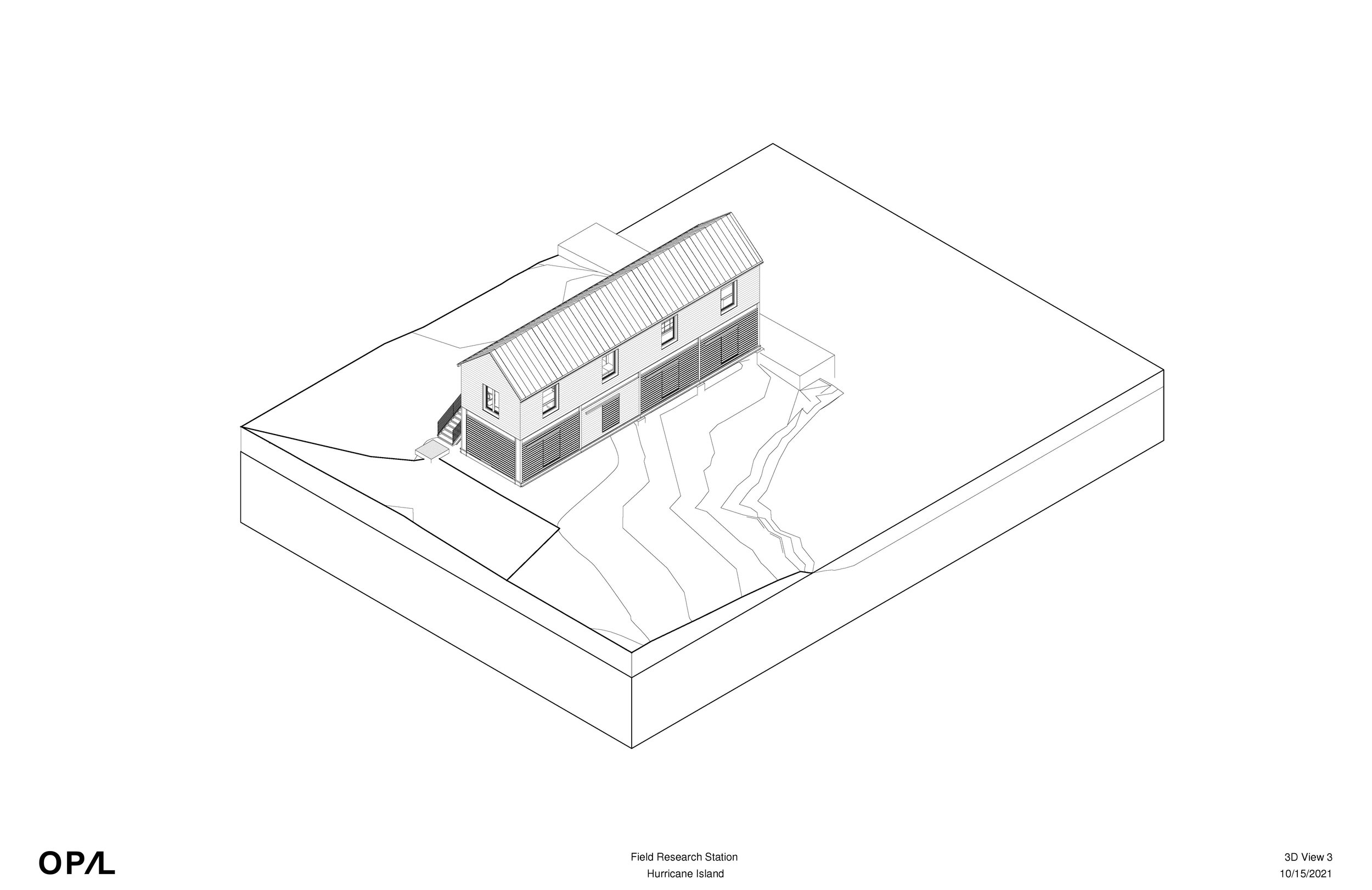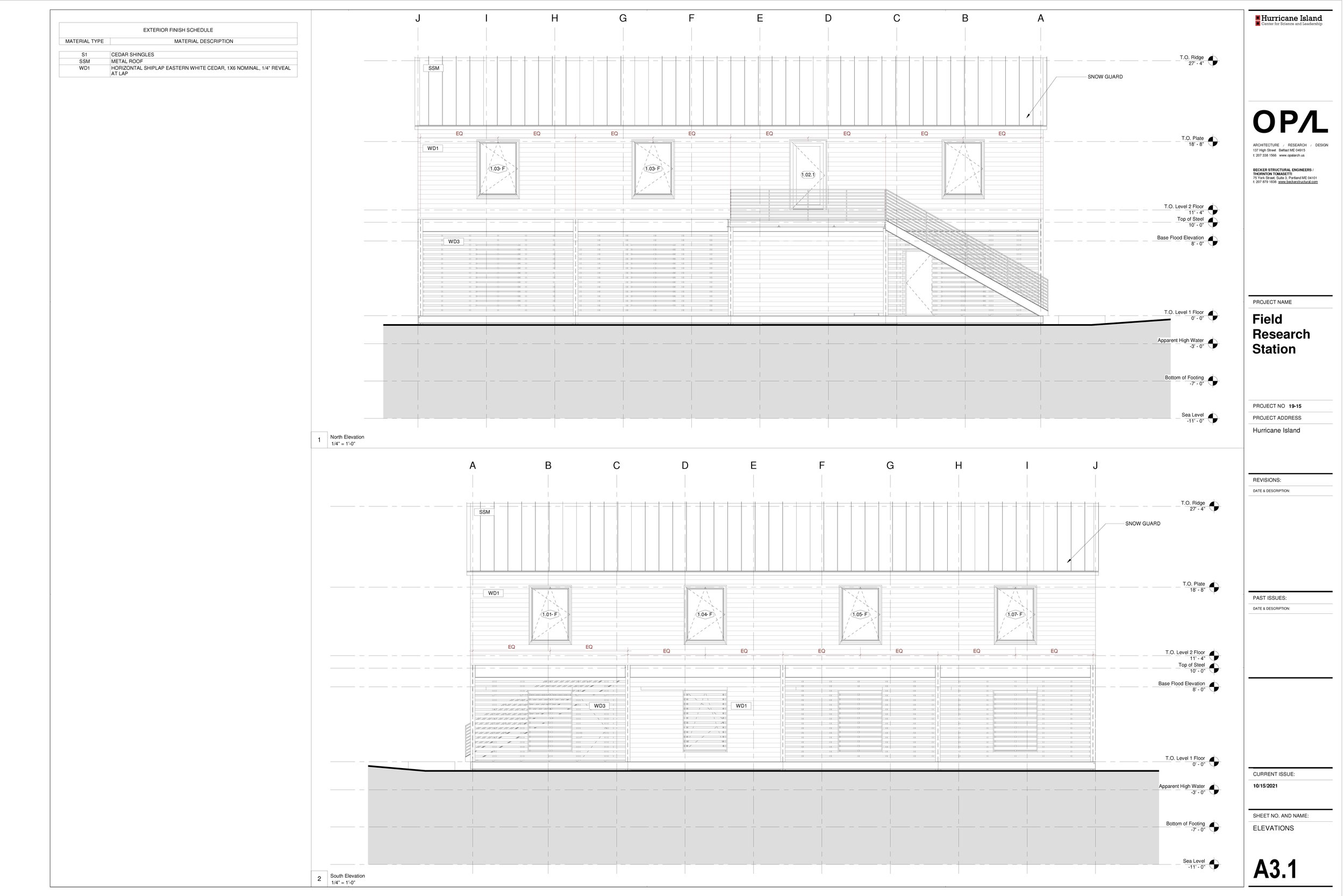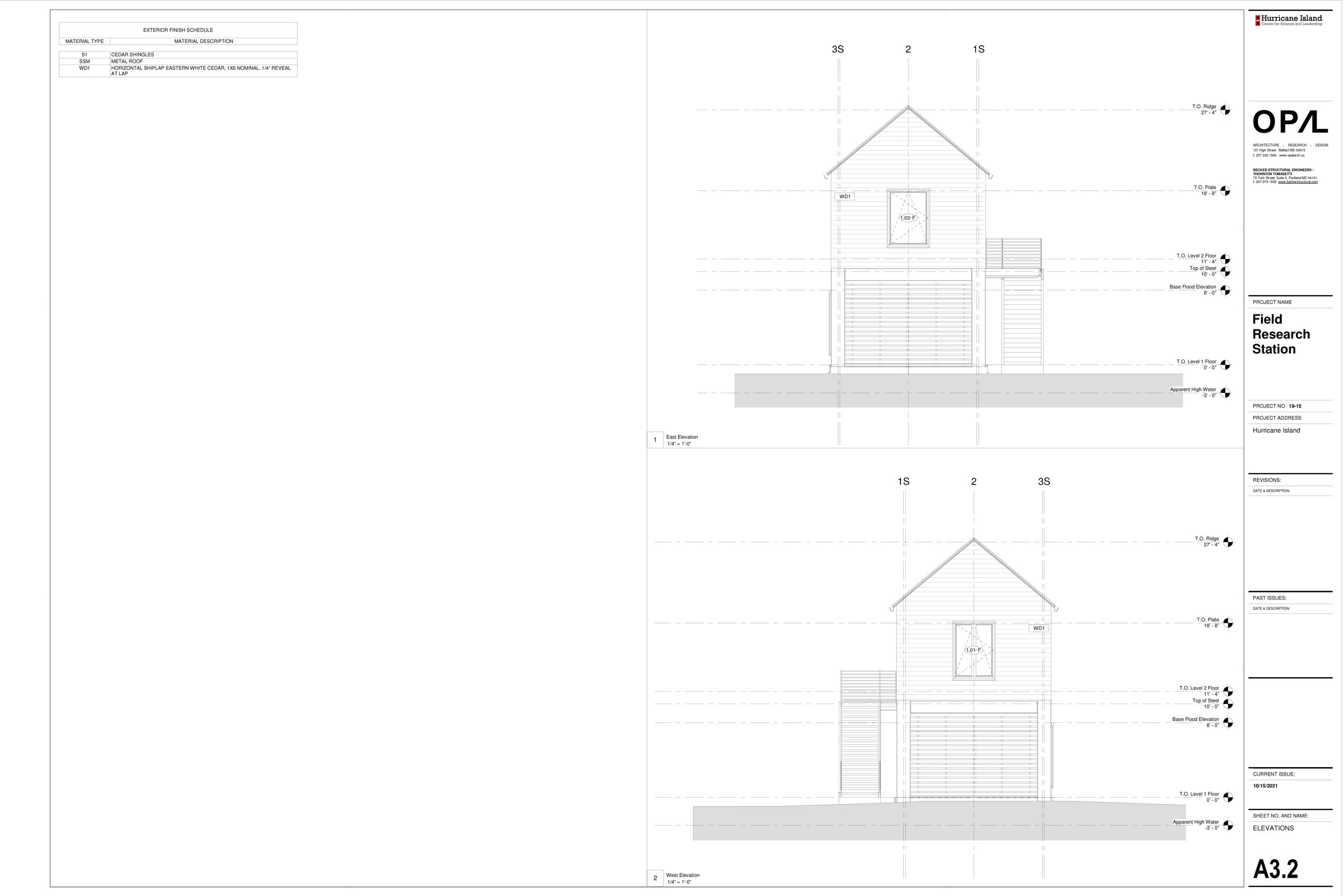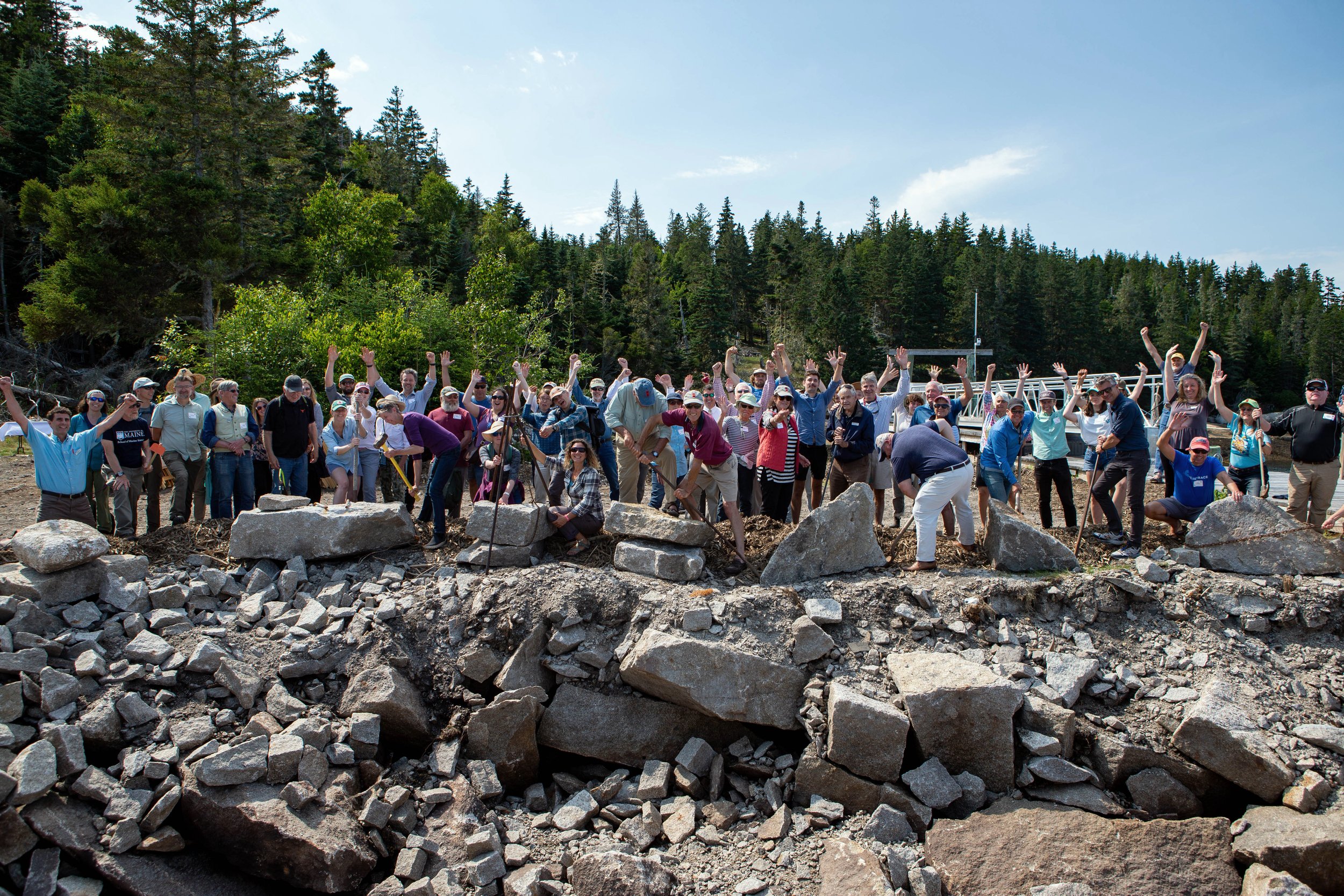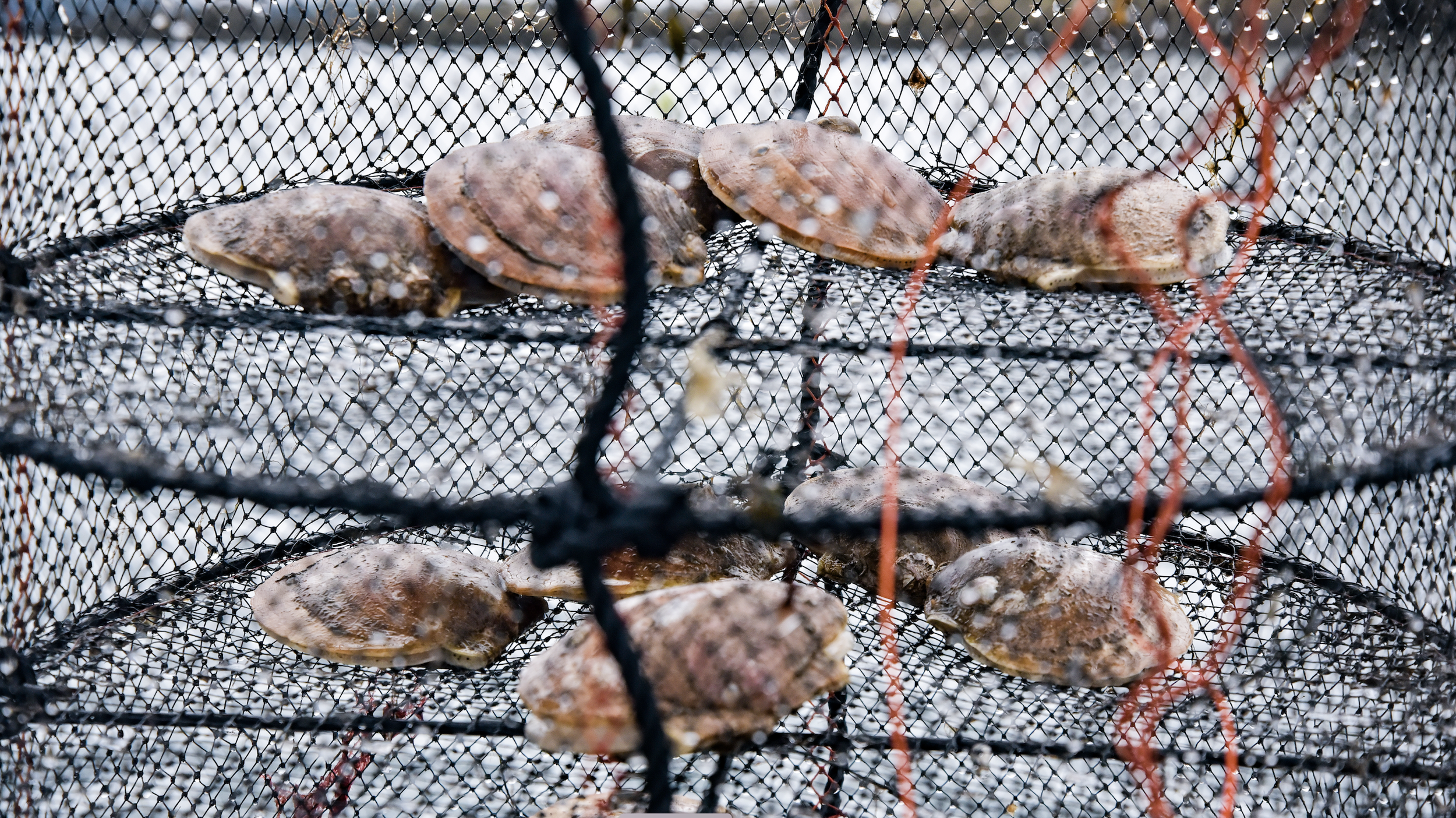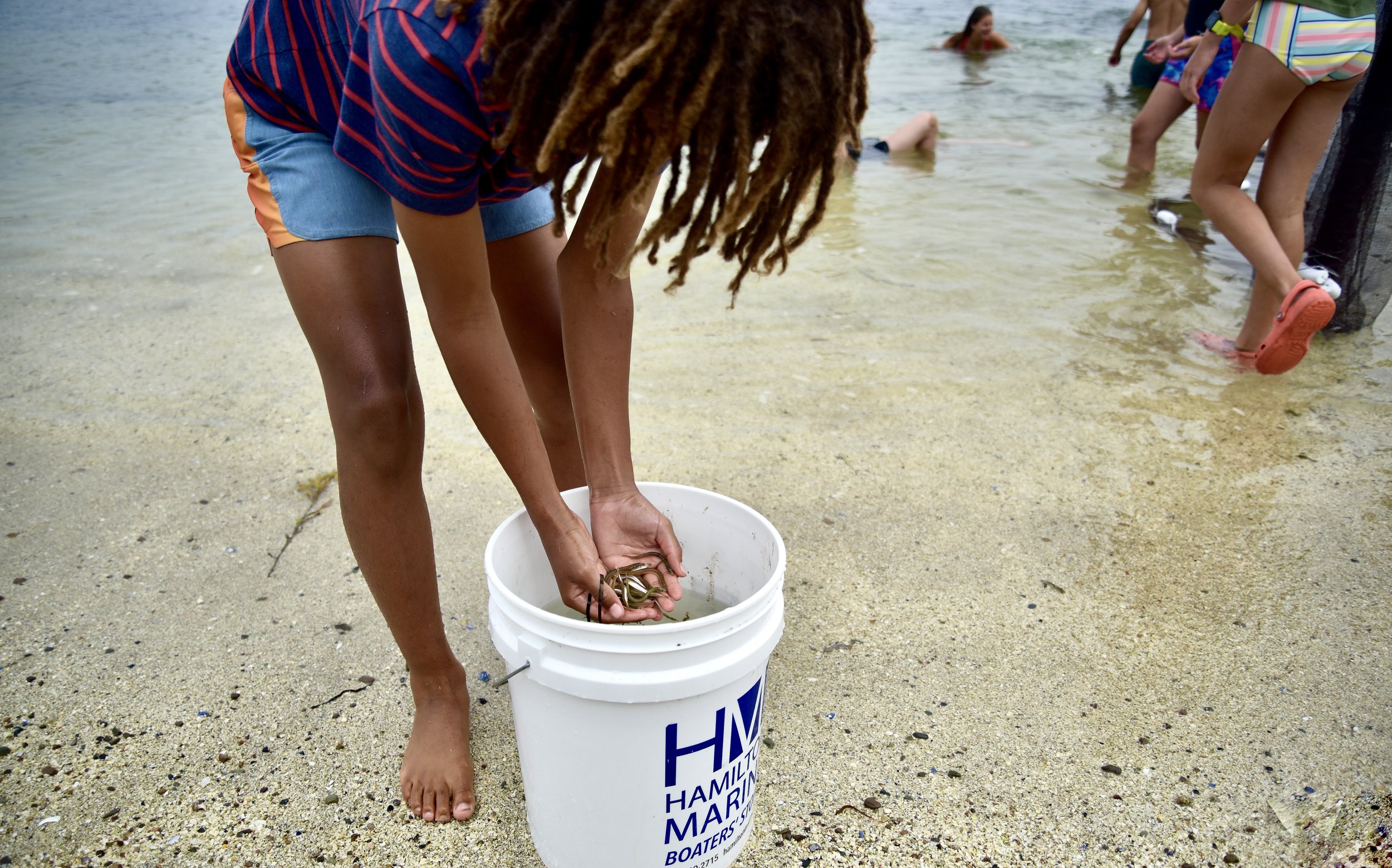“A Scientific Bonanza”
While speaking at the groundbreaking ceremony of the Hurricane Island Field Research Station, Marine Ecologist Bob Steneck, Ph.D. University of Maine School of Marine Sciences, enthusiastically projected this new facility to be a scientific bonanza!
The Hurricane Island Field Research Station will further our strategic goal to fully integrate science education and applied research. Hurricane Island, part of the Fox Islands Archipelago in Penobscot Bay, Maine is approximately 12 miles offshore from Rockland.
The 125-acre island is situated at the confluence of the Eastern Maine and Western Maine Coastal Currents, and the discharge from the Penobscot River to the north of the island forms a gradient of estuarine and marine habitat.
To the southwest, the western Maine coastal current causes water stratification and a zone of upwelling that affects the local ecology, and there is striking diversity in the bedrock geology to the west.
Ribbon Cutting
Over 100 attendees gathered to celebrate the completion of the passive house envelope which houses the Field Research Station. Speakers included Governor Janet Mills, Congresswoman Chellie Pingree, Maine Public Advocate Bill Harwood, Marine Biologists Bob Steneck & Richard Wahle, Hurricane Island Center for Science and Leadership Lead Scientist Phoebe Jekielek and Research Director Anya Hopple.
Construction Photos
The building came together through the collaborative efforts of the OPAL Build crew, Dan Miller of Belmont Boatworks, and Rockland Marine Corporation. Prefabricated panels were loaded onto trucks and driven onto the amphibious landing craft ISLAND TRANSPORTER and then unloaded and installed via the Belmont Boatworks crane.
Outfitting the Field Research Station
Our sustainable shore-based facility will serve as a visual epicenter for our mission, sustainable campus, and commitment to science research and education on Hurricane Island. It will increase capacity for year round research in Penobscot Bay. The facility will contain:
A Flowing Seawater Lab:
Resident and visiting researchers, students, and teachers can sort and examine collections, keep organisms alive for study and experiments, and house & use monitoring and analytical equipment;
A Dry Room:
This space will be maintained as a dry area for microscopes, scales, a small field library, and computers for data entry, analysis, and access to spatially and topically relevant scientific literature.
A Teaching Space:
Researchers and educators will have a space to teach concepts and methods, share results, and offer a classroom component to field operations for classes up to 20 students.
A Fleet:
Our fleet will be available for research that takes you beyond the shores of Hurricane with the ability to deploy and retrieve equipment, conduct at-sea data collection, support dive operations
“The waters immediately surrounding Hurricane Island are a hotspot for larval lobster settlement, with one of the highest rates of all sites sampled in Penobscot Bay. Hurricane is uniquely well positioned for research related to Maine’s $310 million dollar lobster fishery.”
Timeline
2014 - The Board identifies the need for and considers the feasiblity of constructing an Offshore Marine Field Research Station.
2017 - Funding is secured and construction is undertaken to reinforce the pilings and pier at the Valley Cove site.
2019 - Hurricane Island receives a $250K Challenge gift to initaite the design and construction of the Hurricane Island Field Research Station.
2019 - The Challenge Gift is met with generous matching funding secured from individuals and foundations.
2019 - 2020 - The OPAL team is contracted to design the new facility.
June 2021- Old “Bosun’s Locker” shingled structure is demolished.
July-October 2021 - Site work continued
May-June 2022 - Footings and foundation poured
June 2022 - OPAL Build begins constructing modular high efficiency panels off site.
October 2022 - OPAL Build erects posts and beams with brackets fabricated at Lyman Morse
April-May 2023 - OPAL Build delivers panels to Hurricane Island and assembles them into the Field Research Station, completing the passive house envelope
May-July 2023 OPAL completes the exterior siding, metal roof is installed by Gawler & Daughters, interior finish work and staircase added
August 2023 Ribbon Cutting Ceremony with Governor Janet Mills, Congresswoman Chellie Pingree, Maine Public Advocate Bill Harwood, Marine Biologists Bob Steneck & Richard Wahle
Groundbreaking
After securing the appropriate permits, finalizing construction plans, and demolishing the dilapidated preexisting structure, we broke ground on the field research station in early July 2021. A wide host of supporters and friends gathered to celebrate with us on July 22, 2021.
Partners


